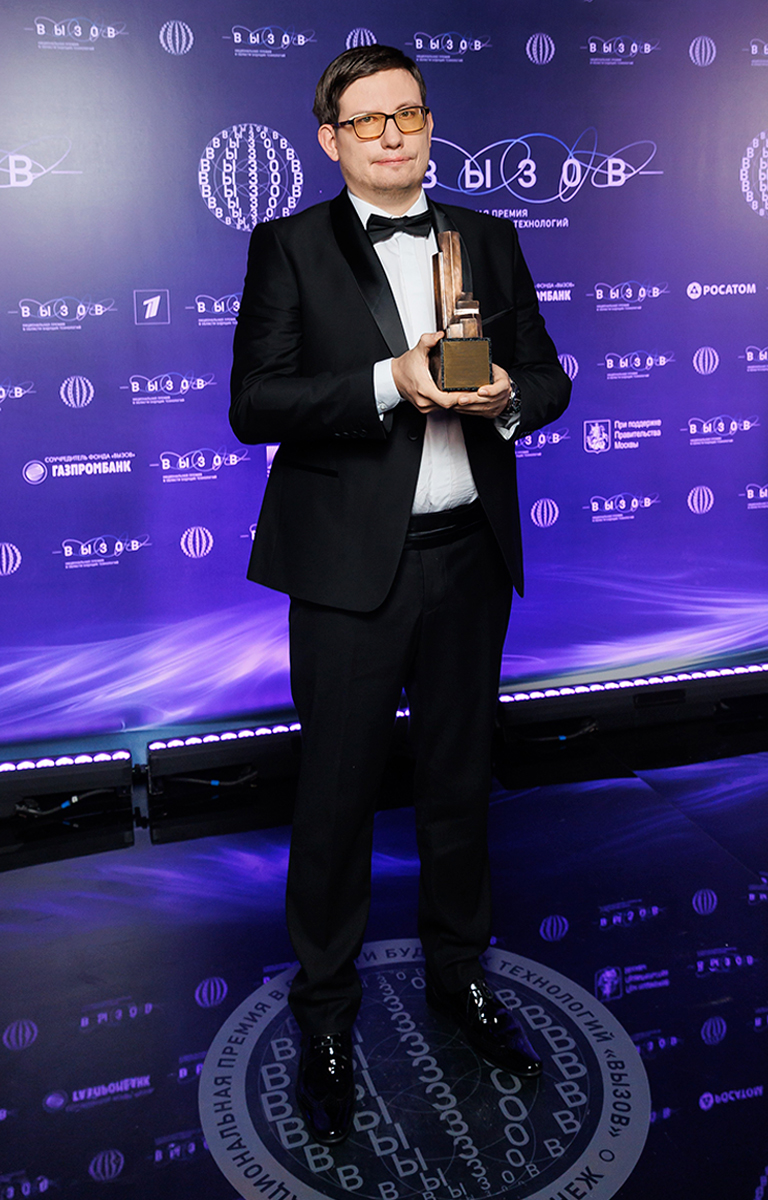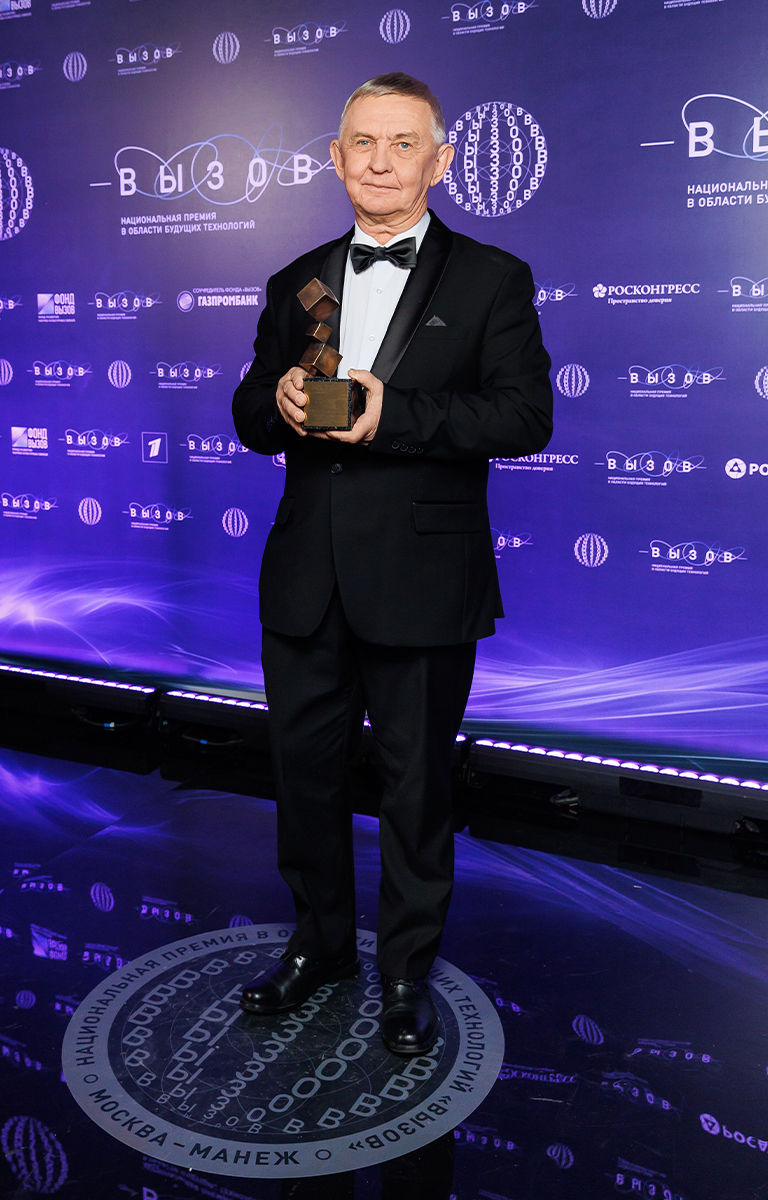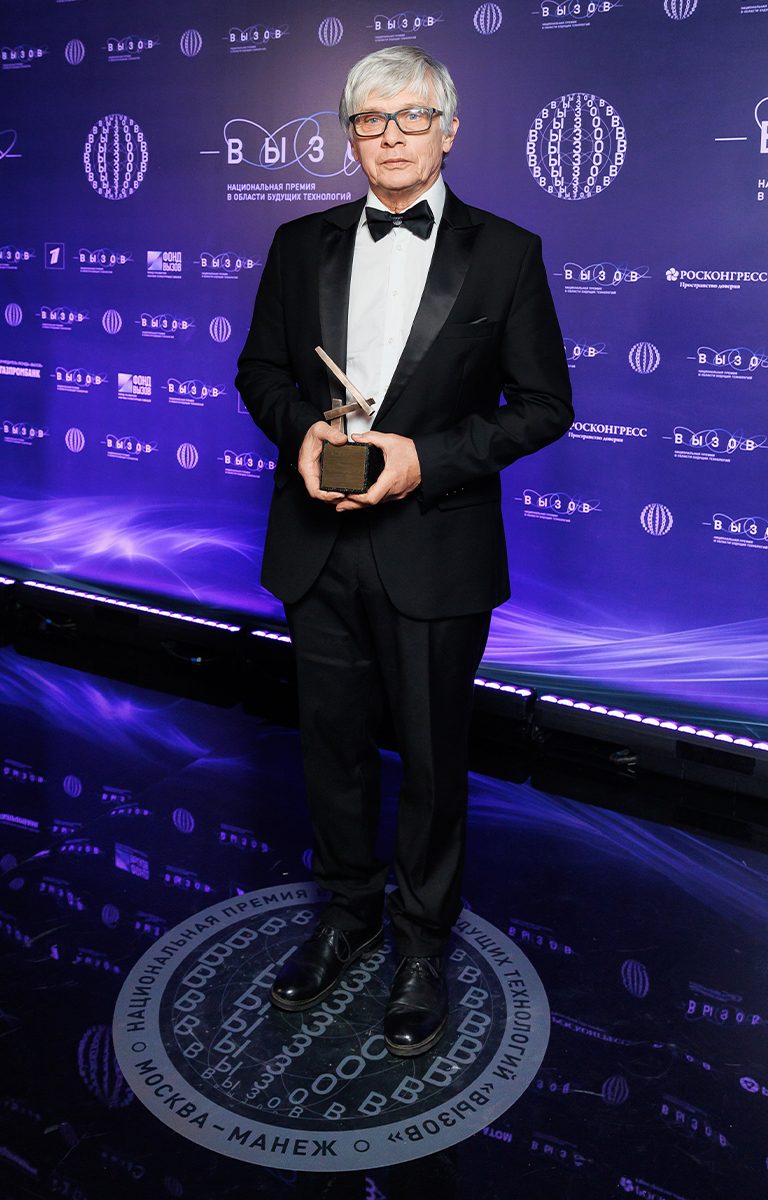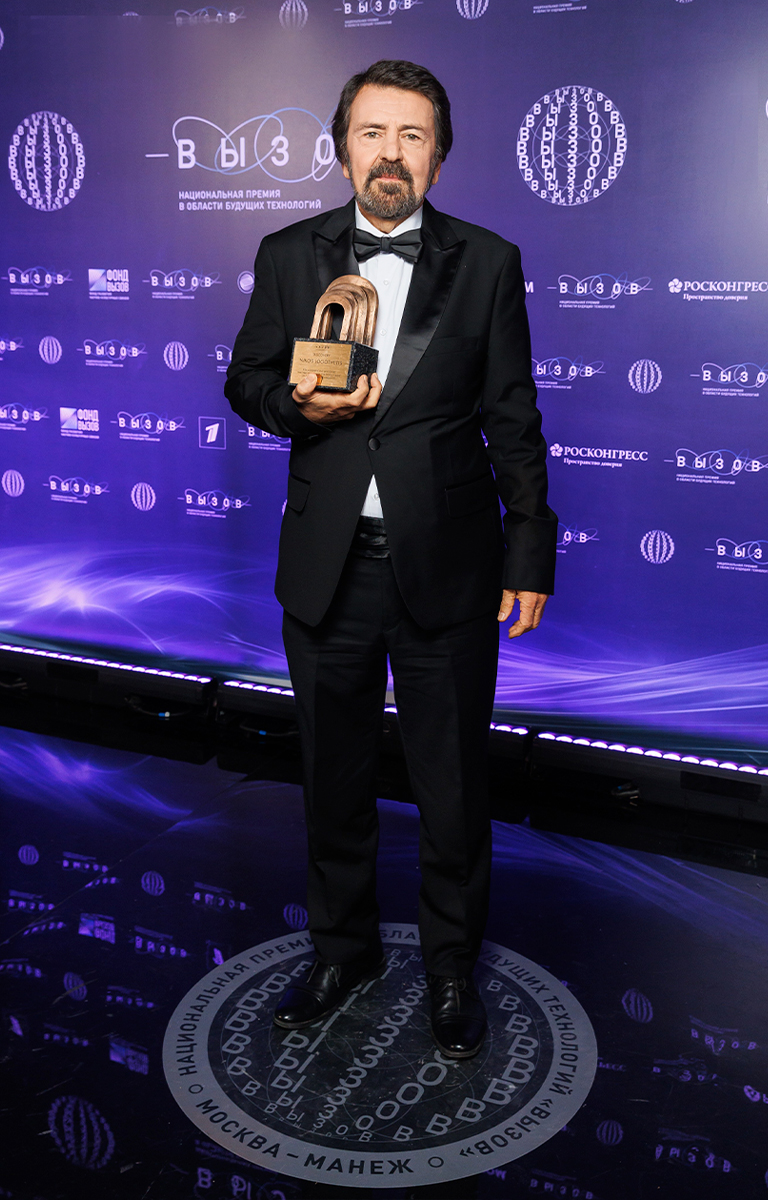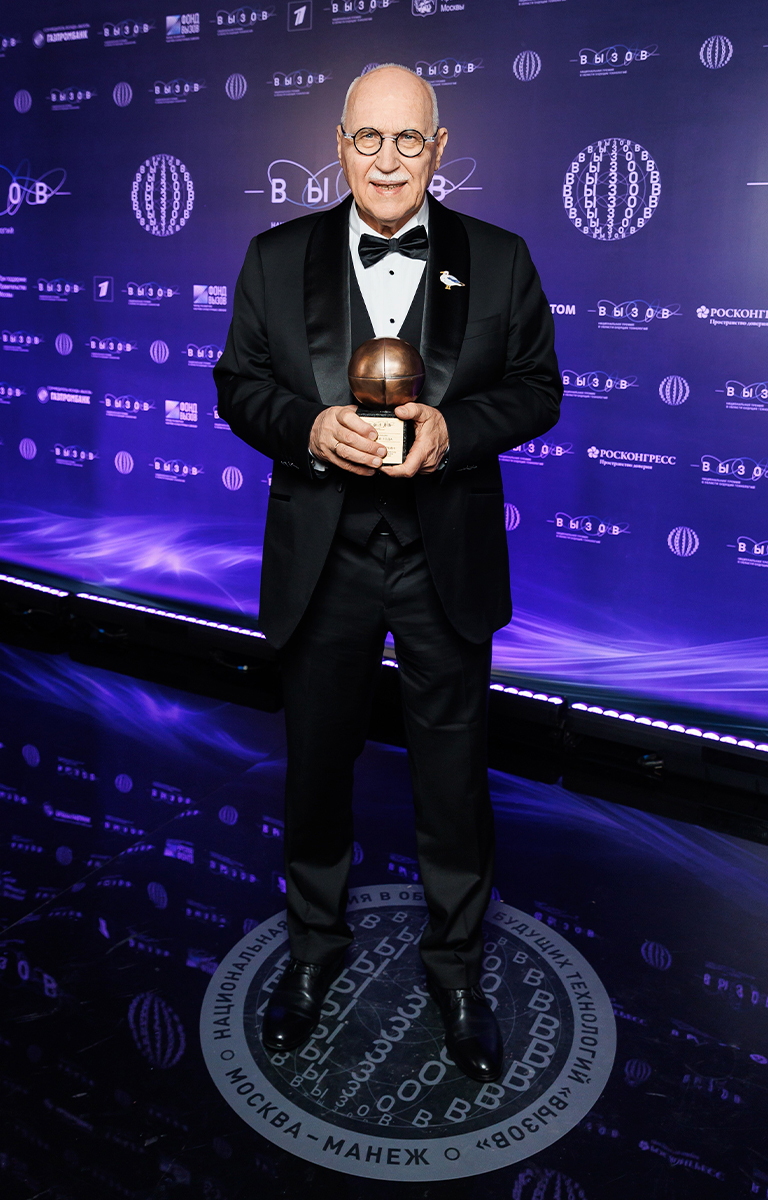VYZOV PRIZE FOR FUTURE TECHNOLOGIES
Categories
The Vyzov Prize is given out annually. Only projects no older than ten years are eligible for category.

for a scientific achievement that has influenced the dynamics of science and technology development (awarded to participants who have not reached the age of 35 at the time of application)

for a significant invention or the creation of a new technology

for a scientific research that has solved an important scientific or technological problem

for a significant discovery that has influenced the development of science and technology

for outstanding cumulative personal contributions and changing the landscape of science and technology
VYZOV PRIZE CEREMONY 2024 / 2023. THE FIRST OSCAR IN SCIENCE
-
CALL FOR APPLICATIONS 2025
21 february – 21 may 2025Accepting submissions from applicants (scientists, inventors, engineers, research teams)
Future
- scientists and scientific teams (of no more than three persons), who are adults and under to 35 years old at the time of nomination;
- for scientific works that demonstrate a clear connection between the scientific result obtained (presented, for example, in the form of a scientific article or a series of scientific articles) and the potential to create a technological solution based on it in the future (the horizon of possible implementation of future technologies is 3-10 years);
- for scientific results that are performed in the Russian Federation and contribute to the development of national science.
Engineering Solution
- scientists, engineers, and technologists, as well as teams (of no more than three persons), who are adults and without age restrictions;
- for a significant invention or the creation of a new technology, where there is a clear possibility to use the developed engineering solution (such as in the form of a patent for an invention or utility model) to create or develop a future technology (the horizon of possible implementation of future technologies is 3-10 years);
- for engineering results that are performed in the Russian Federation and contribute to the development of national science, existing and tested at the time of application.
Breakthrough
- scientists and scientific teams (of no more than three persons), who are adults and without age restrictions;
- for a scientific research (presented, for example, in the form of a scientific article or a series of scientific articles) that solves an important scientific or technological problem and that can be creating a future technology (the horizon of possible implementation of future technologies is 3-10 years);
- for scientific research that are performed in the Russian Federation and contribute to the development of national science.
Discovery
- foreign scientists (and/or citizens of the Russian Federation who are non-residents of the Russian Federation) and scientific teams (of no more than three persons), who are adults and without age restrictions;
- for a significant scientific discovery (presented, for example, in the form of a scientific article or a series of scientific articles) that has influenced the development of science and technology, and in which a connection can be established with the possibility of creating future technology (the horizon of possible implementation of future technologies is 3-10 years);
- for scientific discoveries made abroad that contribute to the development of global science.
scientist of the year
- for outstanding cumulative personal contributions to the development of fundamental science that have changed the landscape of science and technology;
- the contribution means scientific works (scientific papers, patents) containing a fundamental or technological breakthrough (i.e. based on these works, future technologies have been created or could be created in the horizon of 3-10 years).
- for scientific results that were performed in the Russian Federation and contribute to the development of national science.
Award
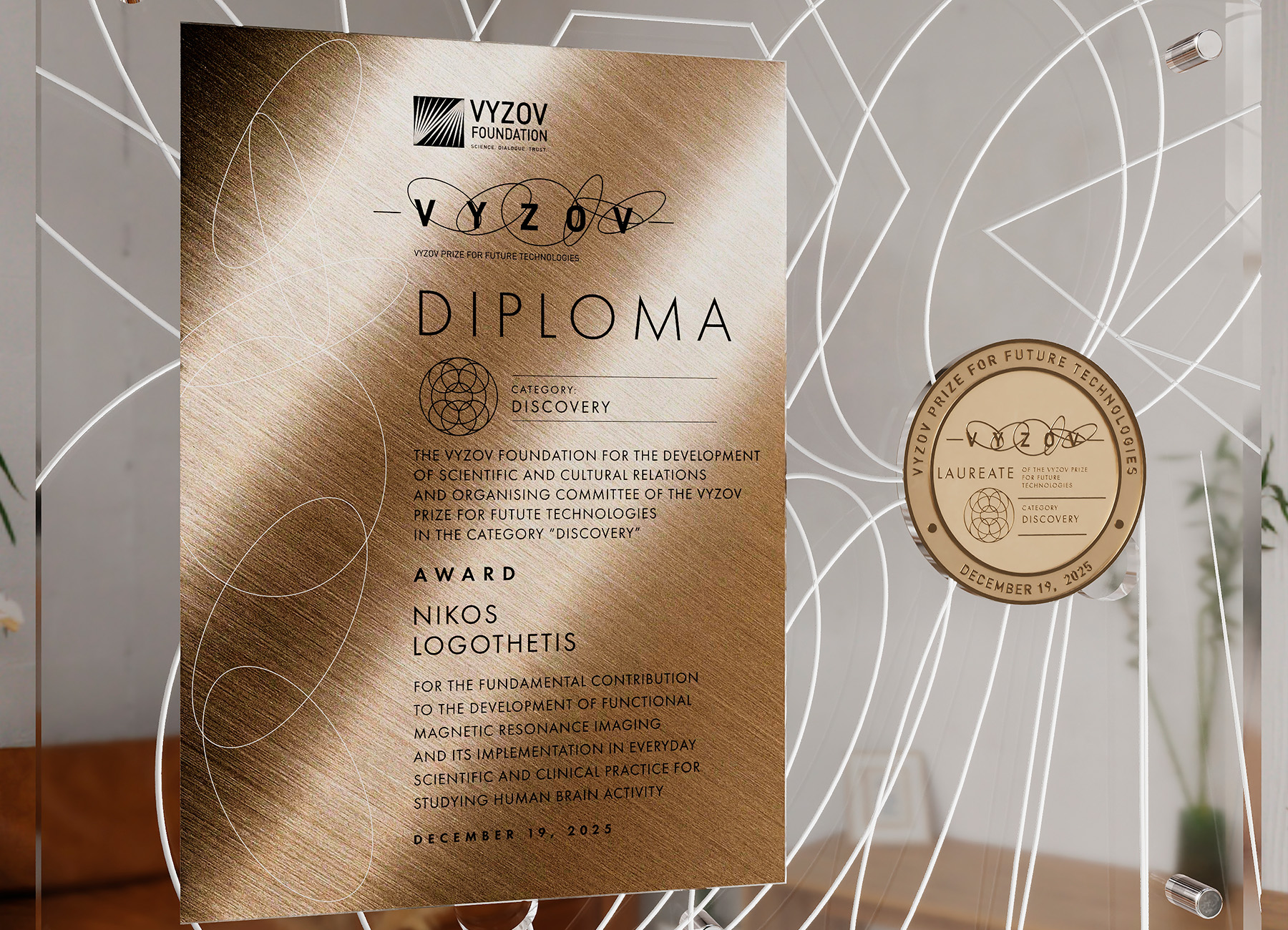
Money Prize
The laureates in each category will receive a 12,000,000 rubles prize.
Prize fund
60 000 000 rubles.

FUTURE TECHNOLOGY
For our purposes, the notion of "future technology" encompasses science-intensive projects that can be implemented within three to ten years to significantly improve people's lives. Achievements to be acknowledged by this Prize are bound to shape the future and benefit various aspects of human life, such as health, communications, logistics, energy, etc.
areas of future technology:

Mission and Purpose
-
WHAT IS VYZOV?
Vyzov means "challenge" in Russian. It is a complex task that demands breakthrough energy, immense knowledge, and courage from those who have set out to complete it. So, the name Vyzov refers to these qualities and emphasizes the future-oriented nature of the Award.
-
Prize mission
The Prize aspires to encourage the new generation to pursue science and technology.
-
Prize Purpose
The Prize aims to make scientists and their discoveries a symbol of success in modern-day Russia and create conditions for the practical implementation of future technologies.
Prestige, credibility, expertise
-
This award aims to recognize fundamental breakthroughs and inventions that change the landscape of modern science and improve the quality of people’s lives.
-
Independence, impartial criteria, transparent procedure for selecting the laureates ensure the high credibility and prestige of the Prize.
-
The Scientific Committee of the Prize, consisting of top Russian scientists of international renown, has developed impartial criteria and a transparent procedure for selecting the winners, ensuring the high credibility and prestige of the Prize.
-
The Prize timely identifies and recognizes the contribution of scientists, inventors, and engineers to the most advanced technology, emphasizing Russia's commitment to being at the forefront of global technological innovation.
-
The Prize is given out in five categories covering the full range of future technologies. A significant money prize will be awarded in each of the categories.
Manifesto
As we cognize the world, we start asking questions.
Failing to find sufficient answers, we decide to change the world.
Obviously, we should not look up to science, hoping it will answer age-old questions like "What am I living for?" Many mysteries of human life have, in fact, nothing to do with science and technology. And still, a scientist's journey begins with a question.
At the turn of the millennium, the brightest minds of humanity thought it was crucial to find answers to the following questions:
– What is the dark matter and dark energy of the universe?
– What is the physical nature of memory?
– How are the thinking process and the human brain organized?
– Can a "theory of everything" be devised?
– Will we ever run out of energy?
– Can natural intelligence and artificial intelligence be combined?
– Can we decipher the genetic code?
– How can we build a quantum computer?
Scientists continue to ask questions that will only be answered in the future. Their discoveries gradually bring all humanity closer to the coveted heights, opening new horizons before them. But is the public status and authority of the scientists strong enough in today's world? It is time for us to reflect. Throughout the twentieth century, resonating from its greatest historical upheavals, the world started rethinking the role of science and debated the public status of scientists. The most significant role in this process for many decades has been played by the first among scientific awards, the illustrious Nobel Prize, established in 1901.
Obviously, a significant discovery, let alone a real breakthrough, is not made with prestigious prizes in mind. Science is hard work spanning many years, filled with successes and disappointments, sudden enlightenments and years of wandering in the dark. As the great Max Weber admitted, "Every scientific 'fulfillment' raises new 'questions'... [and we] will be surpassed scientifically – let that be repeated – for it is our common fate and, more, our common goal... We cannot work without hoping that others will advance further than we have."
But no matter how inspired a scientist may be by the unachievable radiance of pure reason, public recognition is essential to both the development of their own unique career and the technological progress of all humanity. Let us cast a nostalgic glance back to our recent Soviet past – the early sixties: Gagarin is the first human in space; “physics is in favor", young people are flooding university admission offices inspired by charismatic Wits & Humor team captains; everyone's favorite movie characters are four-eyed nerds and nuclear physicists, scientists of world renown host popular TV shows.
Their challenge to the soon-to-be-over era was, “Being smart is in vogue!”
Our challenge is the VYZOV Prize for Future Technologies.
We challenge the established paradigm of the national science and socio-cultural space:
• It is the first national Prize designed to recognize fundamental breakthroughs, ideas, and inventions that change the landscape of modern science and the life of every single person.
• The Scientific Committee of the Prize, consisting of top Russian scientists of international renown, has developed impartial criteria and a transparent procedure for selecting the winners, ensuring the high credibility and prestige of the Prize.
• The Prize timely identifies and recognizes the contribution of scientists, inventors, and engineers to the most advanced technology, emphasizing Russia's commitment to being at the forefront of global technological innovation.
• The Prize is given out in five categories covering the full range of future technologies. A significant money prize will be awarded in each of the categories.
• The Prize ceremony will bring together top scientists, artists, politicians, and athletes, creating a community of future technology ambassadors.
As the eminent Soviet philosopher Merab Mamardashvili said, “Never be afraid of going too far because the truth is still farther.”
Face the challenge
for farther means into the future.
THE VYZOV PRIZE SCIENTIFIC COMMITTEE
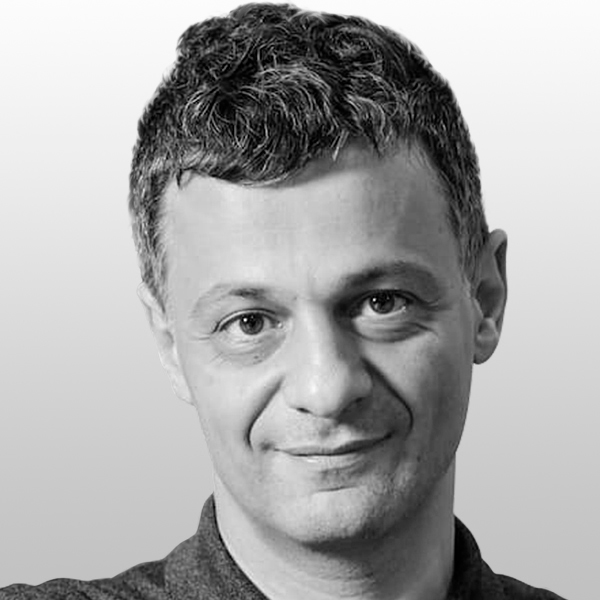
Distinguished Professor of Scoltech, Professor of Russian Academy of Sciences, Member of Academia Europaea, Fellow of the Royal Society of Chemistry and the American Physical Society.
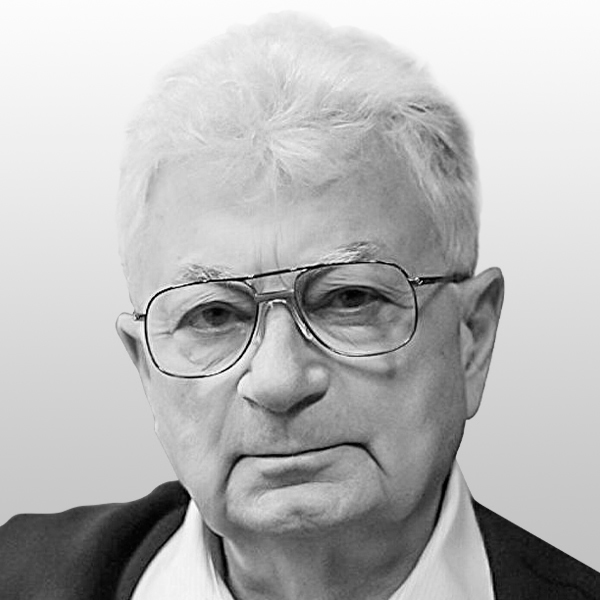
Academician of the Russian Academy of Sciences and of Armenian Academy of Sciences, Scientific Director of the JINR Laboratory of Nuclear Reactions, Doctor Honoris Causa of Skoltech and Mendeleev University.
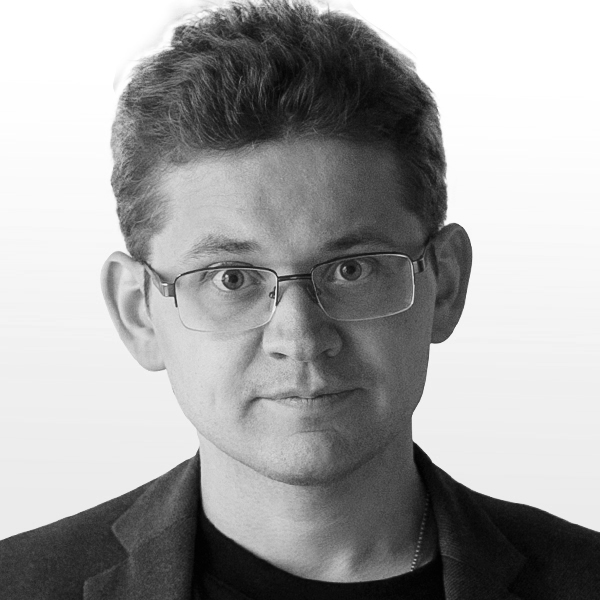
Head of research group at Russian Quantum Center, Head of the Laboratory of Quantum Information Technologies at MISIS University, the youngest professor at MIPT.
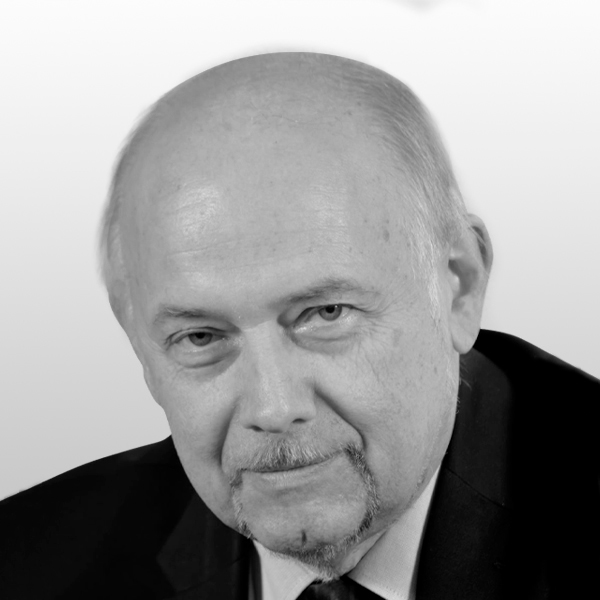
Academician of the National Academy of Sciences of Belarus, Foreign Member of the Russian Academy of Sciences, Professor at Belarusian State University.
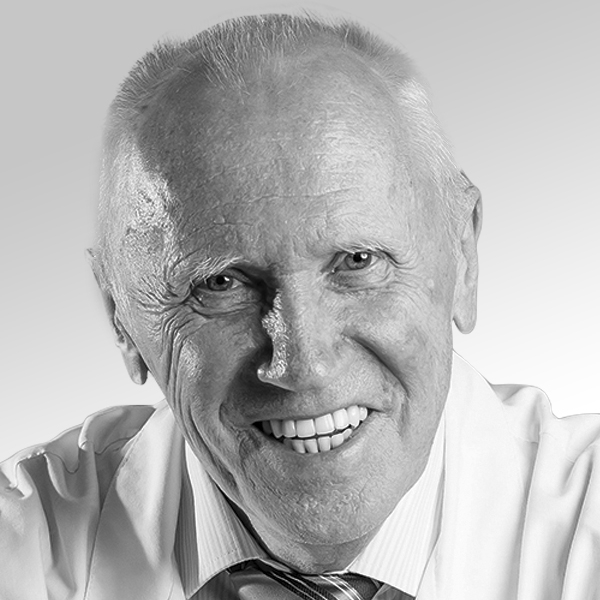
Scientific Director of the «Breakthrough» Project and the N.A. Dollezhal Scientific Research and Design Institute of Energy Technologies (NIKIET), Minister of Atomic Energy of the Russian Federation (1998-2001), Honored Scientist and Engineer of the Russian Federation.
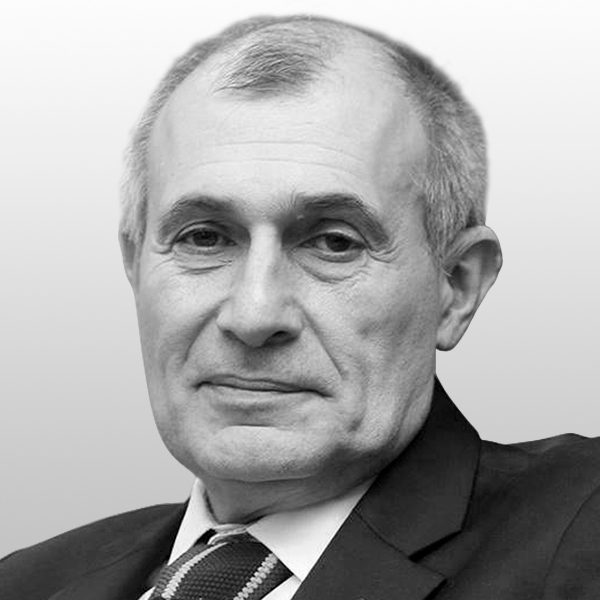
Academician of the Russian Academy of Sciences, Director of the Institute of Bioorganic Chemistry, Professor of Moscow State University.
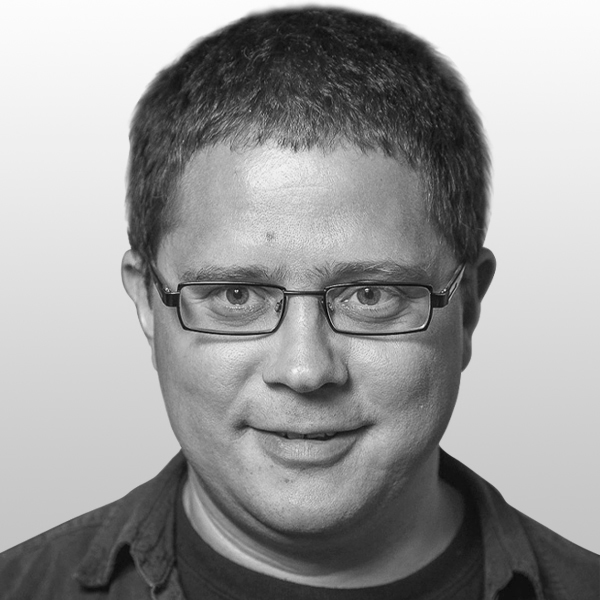
Corresponding member of the Russian Academy of Sciences, Director of the Federal Center for Brain Research and Neurotechnology of the Federal Medical and Biological Agency.
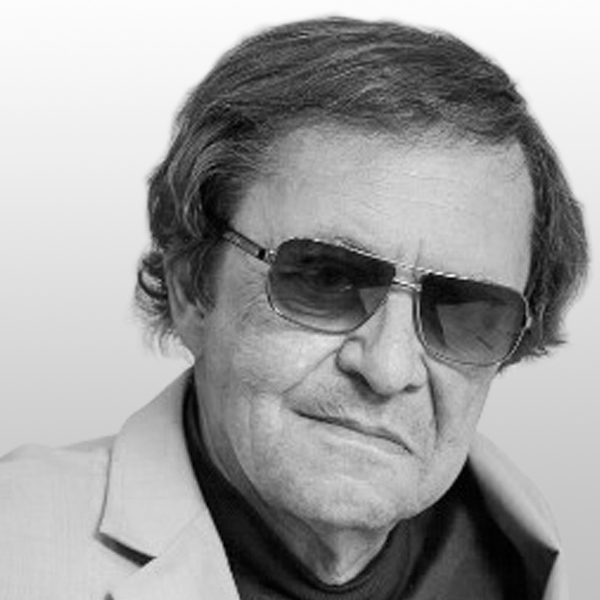
Head of research group at Russian Quantum Center, Professor at the University of Amsterdam.
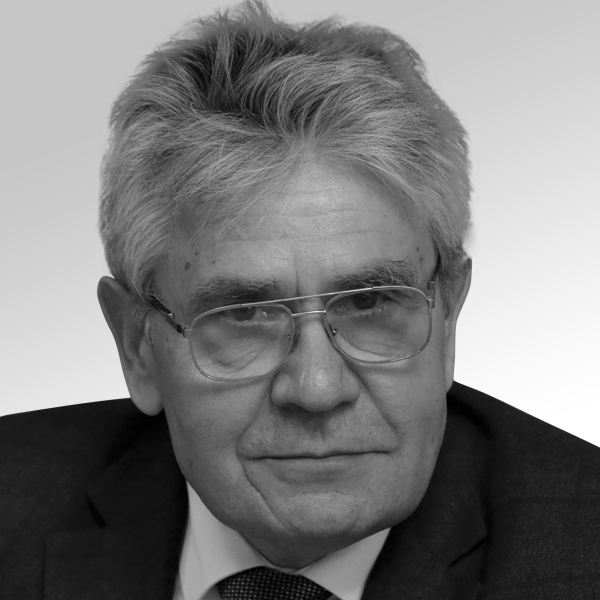
Academician of the Russian Academy of Sciences, President of the Russian Academy of Sciences (2017-2022), Member of the Federal Russian Presidential Council for Science and Education, Director of the National Center for Physics and Mathematics.
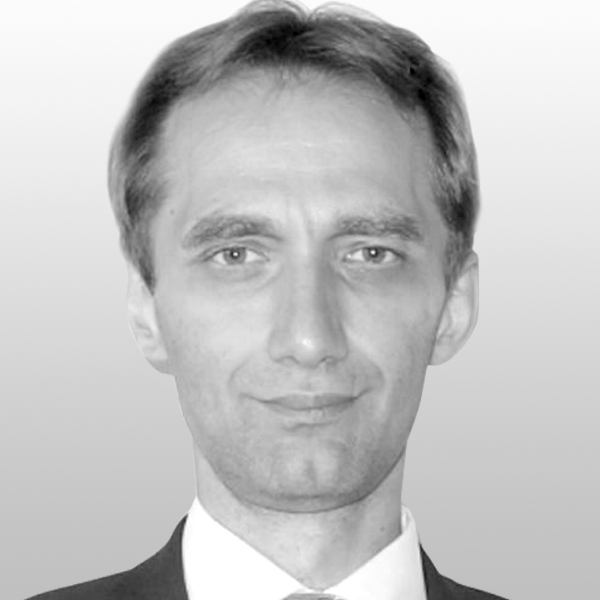
Academician of the Russian Academy of Sciences, Member of Academia Europaea, Head of laboratory at N.D. Zelinsky Institute of Organic Chemistry.
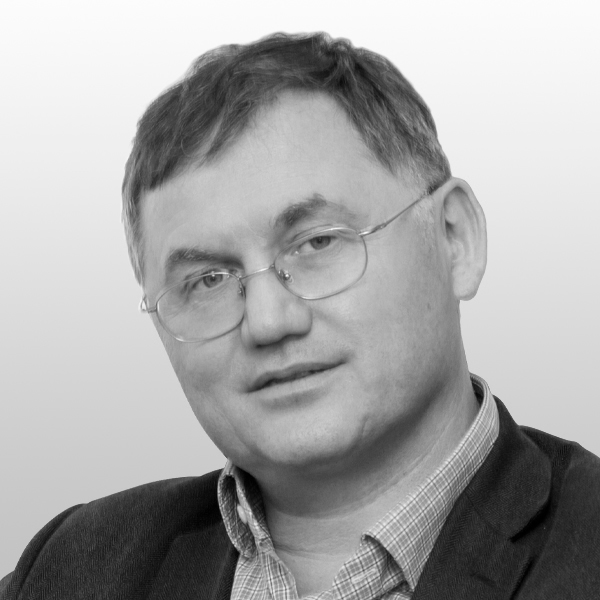
Director of the Institute of Translational Biomedicine, Head of Laboratory for Neurobiology and Molecular Pharmacology at St. Petersburg State University.
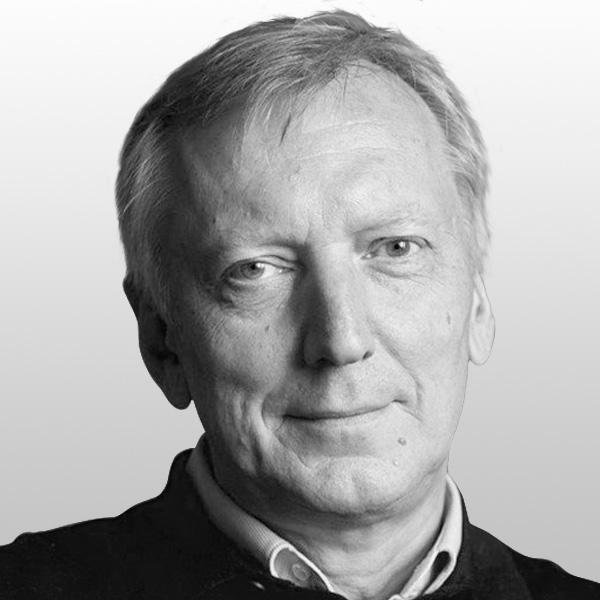
Corresponding Member of the Russian Academy of Sciences, Head of the Inorganic Chemistry Department at Lomonosov Moscow State University, Distinguished Professor at Moscow State University.
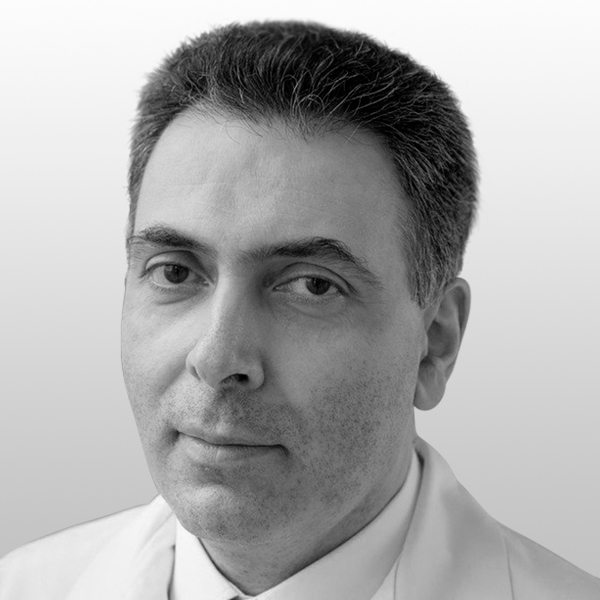
Academician of the Russian Academy of Sciences, Distinguished Scientist of the Russian Federation, highest category cardiologist.
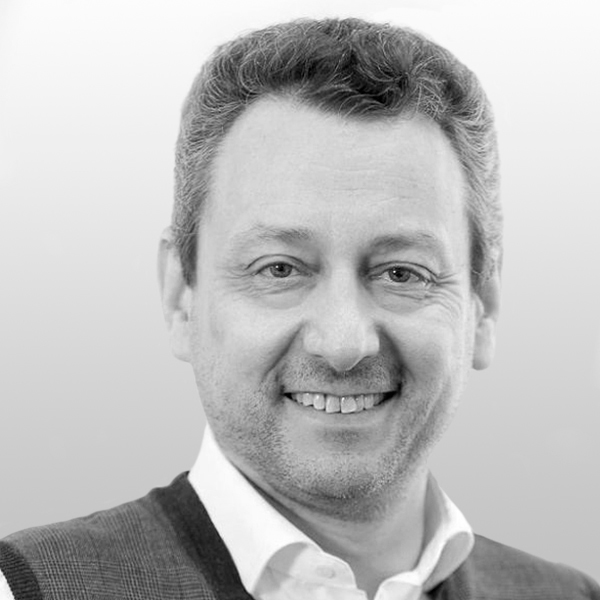
Academician of the Russian Academy of Sciences, Director of Research Institute of Systems Biology and Medicine, Member of the Presidium of the Presidential Council for Science and Education.
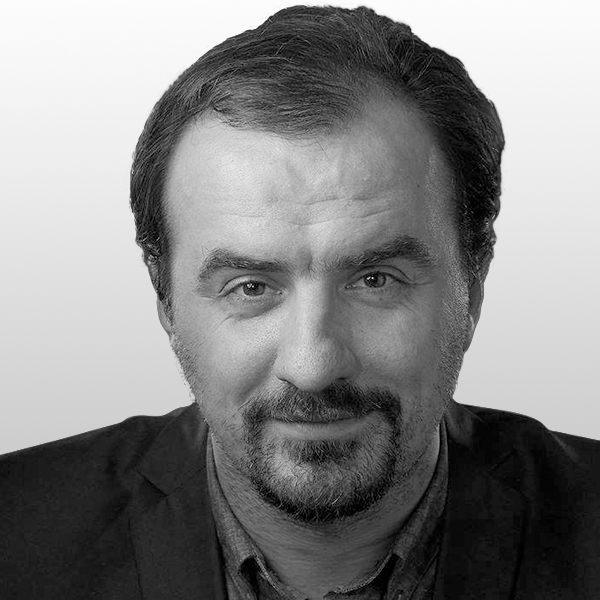
Editor-in-chief of the "News of Neuroscience and Neurotechnology", "Mendeleev.info", "Russian Antiquities", Member of Board of the Russian Chemical Society.
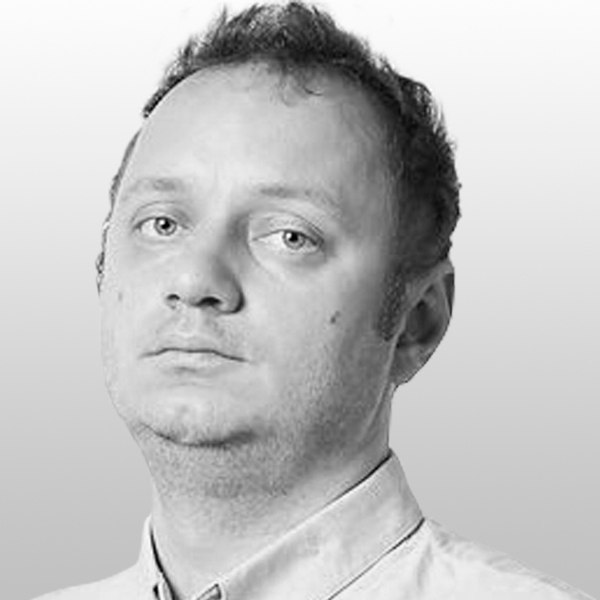
Publisher of the N + 1 popular science portal.
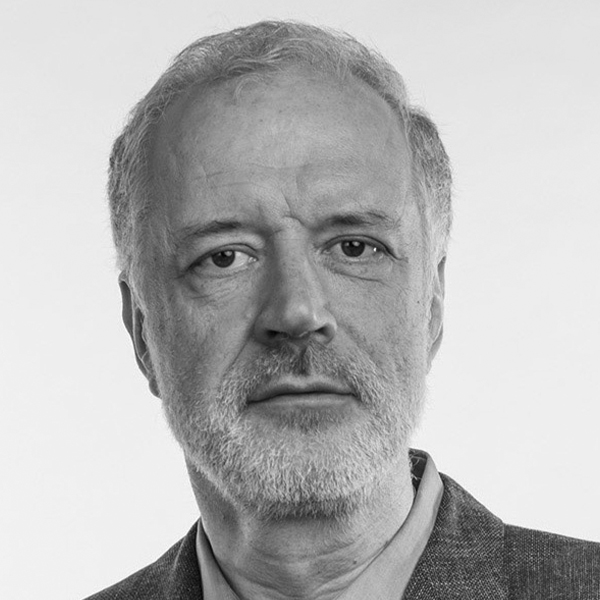
Head of the Laboratory of Theoretical Fundamental Interactions at the Lebedev Physical Institute of the Russian Academy of Sciences.
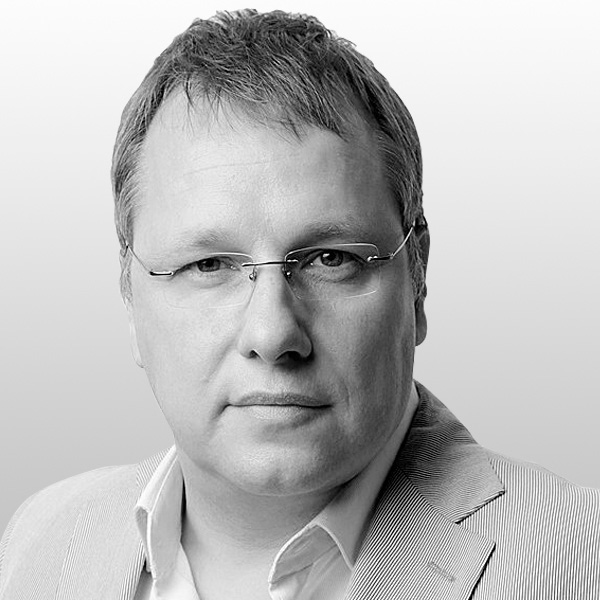
Editor-in-chief of TechInsider magazine (Popular Mechanics magazine).
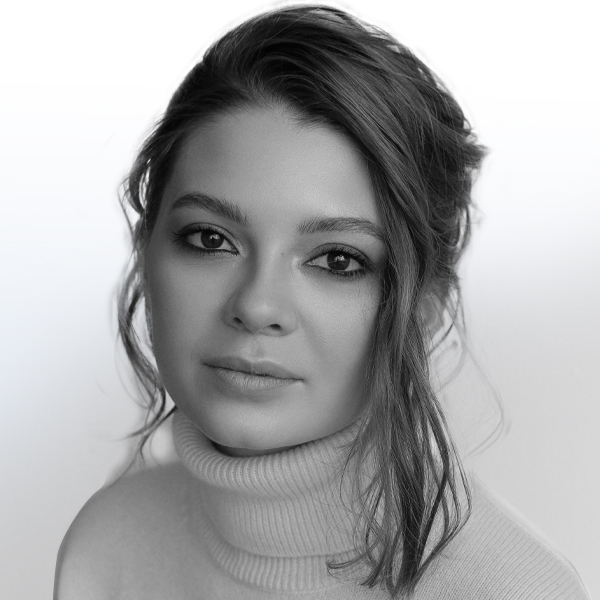
Secretary of the Prize Scientific Committee
PhD student and researcher at Russian Quantum Center
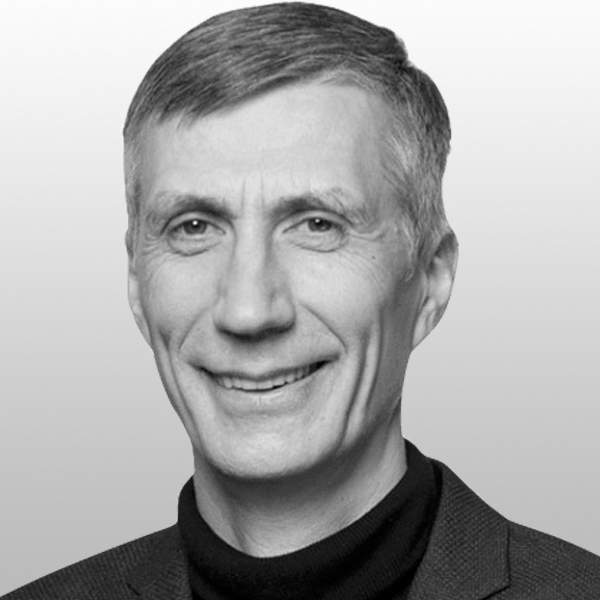
Head of Science Desk, TASS News Agency.
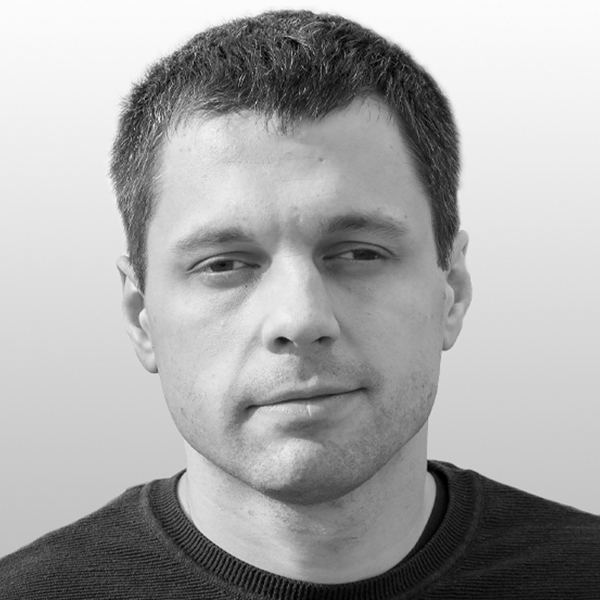
Professor and director of the Applied Artificial Intelligence Center at Skoltech.
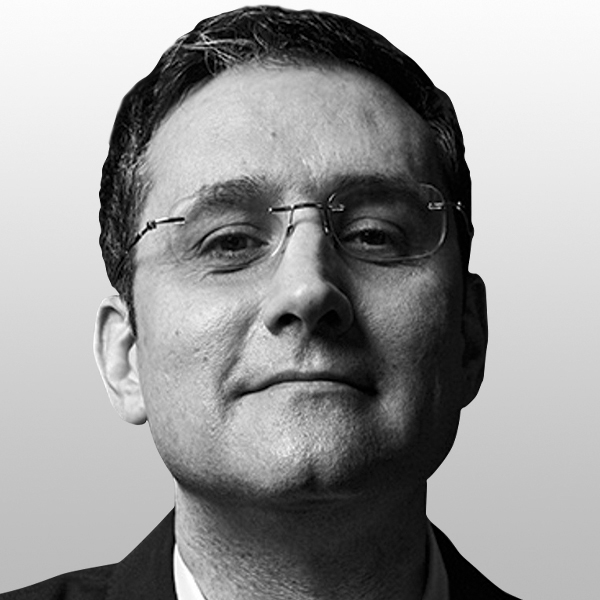
Chair for Theoretical Physics, Moscow Institute of Physics and Technology.
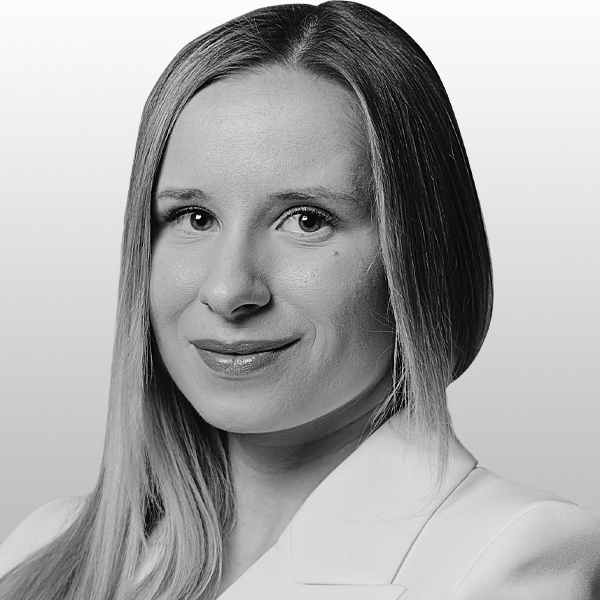
Co-founder of the NASHA LABA project, Director of the Center for the Development of Scientific and Educational Initiatives, Chair of the Youth Council, All-Russian Society of Inventors and Efficiency Experts.
-
artem oganov CHAIRMAN OF THE PRIZE SCIENTIFIC COMMITTEE

Professor of the Russian Academy of Sciences, Doctor of Physics and Mathematics, Skoltech Distinguished Professor, Member of Academia Europaea, Fellow of the Royal Society of Chemistry and the American Physical Society.
Affiliation Skolkovo Institute of Science and Technology Areas of interest Chemistry, materials science, geology h-index 95 Achievements- USPEX – a method for crystal structure prediction.
- High-temperature superconductivity.
- A theory of the origin of water on Earth.
-
yuri oganessian ADVISOR TO THE PRIZE SCIENTIFIC COMMITTEE CHAIRMAN

Academician of the Russian Academy of Sciences, Doctor of Physics and Mathematics, Chairman of the Scientific Council for Applied Nuclear Physics at the Russian Academy of Sciences, Head of the Laboratory of Nuclear Reactions at the Joint Institute for Nuclear Research, Professor at Lomonosov Moscow State University, Professor at Moscow Engineering Physics Institute, Doctor of the Mendeleev University of Chemical Technology of Russia.
Affiliation Joint Institute for Nuclear Research Areas of interest Physics h-index 65 Achievements- The 118th chemical element, oganesson (Og), was named in his honor.
- Discovery of superheavy chemical elements: rutherfordium, dubnium, seaborgium, bohrium.
- Fundamental work on the synthesis of new elements using heavy ion beams.
-
aleksey fedorov

Deputy Chairman of the Prize Scientific Committee, Head of the Quantum Information Technologies research group at the Russian Quantum Center, Head of the Quantum Information Technologies Laboratory at the National University of Science and Technology MISIS, the youngest professor at the Moscow Institute of Physics and Technology.
Affiliation Russian Quantum Center Areas of interest Physics, quantum information theory h-index 32 Achievements- First ever quantum blockchain.
- Qudit-based quantum processor.
- Youngest professor at the MIPT.
-
sergey kilin

Academician of the National Academy of Sciences of Belarus, Doctor of Physics Mathematics, Foreign Member of the Russian Academy of Sciences, Professor at Belarusian State University.
Affiliation Stepanov Institute of Physics of the National Academy of Sciences of Belarus Areas of interest Physics, quantum technology h-index 24 Achievements- Wrote the first review of quantum computing in Russian.
- Was one of the first scientist in the world to study single photons.
- Developed a theory of quantum fluctuations in in nonlinear-optical interactions.
-
evgeny adamov

Doctor of Technical Sciences, Professor, scientific Director of the «Proryv» Project and the N.A. Dollezhal Scientific Research and Design Institute of Energy Technologies (NIKIET), former Minister of Atomic Energy of the Russian Federation, Honored Scientist and Engineer of the Russian Federation.
Affiliation Rosatom Areas of interest Nuclear energy, nuclear safety, nuclear industry management Achievements- Leadership of the Russian nuclear industry.
- Participation in major international projects in the field of nuclear energy, including the construction of the Bushehr Nuclear Power Plant.
- Reforms in the management system of the Russian nuclear industry.
-
alexander gabibov
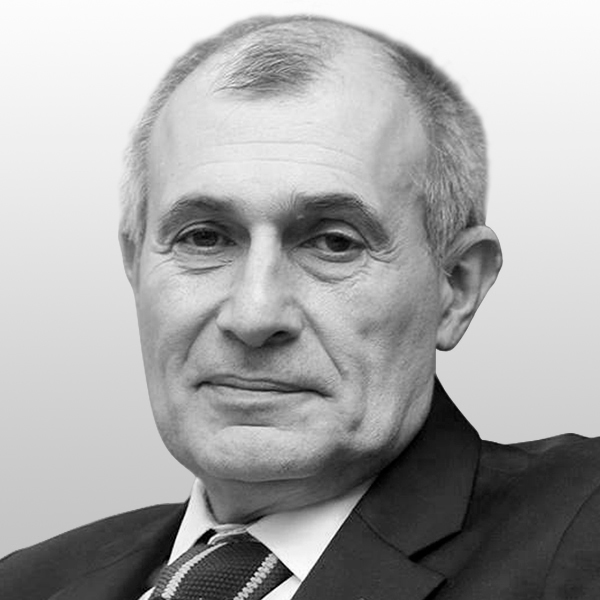
Academician of the Russian Academy of Sciences, Doctor of Chemistry, Professor at Lomonosov Moscow State University, Director of the Shemyakin – Ovchinnikov Institute of Bioorganic Chemistry.
Affiliation Shemyakin – Ovchinnikov Institute of Bioorganic Chemistry Areas of interest Biochemistry h-index 40 Achievements- President of the Russian Biochemical Society.
- Discovered natural catalytic antibody activity and ways to utilize it in medical research.
-
vsevolod belousov

Professor of the Russian Academy of Sciences, Corresponding member of the Russian Academy of Sciences, Doctor of Biology, Director of the Federal Centre for Brain Research and Neurotechnology of the Federal Medical-Biological Agency of Russia.
Affiliation Federal Centre for Brain Research and Neurotechnology Areas of interest Biology, medicine h-index 45 Achievements- Developed new approaches to neuron activation by thermooptogenetics using thermosensitive ion channels.
-
georgy shlyapnikov

Doctor of Physics and Mathematics, Head of the research group at the Russian Quantum Center, Director of the research branch of the Theoretical Physics Laboratory at the National Center for Scientific Research, Professor at the University of Amsterdam.
Affiliation Russian Quantum Center Areas of interest Quantum physics h-index 67 Achievements- Discovered a new type of phase transition in many-body systems.
- Discovered new topological many-body quantum states.
- BEC Prize.
-
alexander sergeev

Academician of the Russian Academy of Sciences, Doctor of Physics and Mathematics, Professor, former President of the Russian Academy of Sciences, Member of the Federal Russian Presidential Council for Science and Education, Scientific Director of the National Center for Physics and Mathematics.
Affiliation The National Center for Physics and Mathematics Areas of Interest Plasma physics, femtosecond optics, nonlinear optics, laser physics, biophotonics. h-index 86 Achievements- Fundamental results in plasma physics, femtosecond optics, high-field physics, and nonlinear optics.
- Development of powerful laser systems and their application in various fields of science and technology.
- Leadership of the Russian Academy of Sciences.
-
valentin ananikov

Academician of the Russian Academy of Sciences, Member of Academia Europaea, Doctor of Chemistry, Professor at Lomonosov Moscow State University, Head of the Laboratory at the Zelinsky Institute of Organic Chemistry, Head of the Chemistry Section of the Department of Chemistry and Materials Sciences of the Russian Academy of Sciences.
Affiliation Zelinsky Institute of Organic Chemistry Areas of interest Fundamental research on catalysis, organic chemistry and physicochemistry of nanoparticles h-index 78 Achievements- Created highly efficient next-generation catalysts.
- Discovered the phenomenon of dynamic catalysis.
- Created a unique method for comprehensive experimental and theoretical study of catalytic processes.
-
Raul Gainetdinov

Candidate of Sciences in Medicine, Director of the Institute of Translational Biomedicine, Head of Laboratory for Neurobiology and Molecular Pharmacology, Head of Research with the Pirogov Clinic of High Medical Technologies at the St. Petersburg State University, Head of Research Area for Neurobiology with Sirius University’s Research Center for Genetics and Life Sciences, Adjunct Professor with Sirius University, Professor with the St. Petersburg State University.
Affiliation St. Petersburg State University Areas of interest Neurobiology, dopamine pharmacology, mental and neurological brain disorders h-index 107 Achievements- Invented brand-new medication therapy methods for treating brain disorders.
- Invented new medicines for treating neurodegenerative diseases such as Alzheimer's disease.
- A pioneer and a global leader in research in dopamine pharmacology and trace amine-associated receptors.
- Three times named one of the world's Highly Cited Researchers by Web of Science (WoS).
-
andrey shevelkov

Professor of the Russian Academy of Sciences, Corresponding Member of the Russian Academy of Sciences, Doctor of Chemistry, Distinguished Professor at Lomonosov Moscow State University, Head of the Inorganic Chemistry Department at Lomonosov Moscow State University, Member of the American Chemical Society.
Affiliation Lomonosov Moscow State University Areas of interest Inorganic chemistry, supramolecular chemistry, inorganic synthesis, thermoelectric materials, superconductors h-index 38 Achievements- Synthesis and structural studies of various inorganic compounds.
- Development of synthetic alternatives to certain minerals.
- Chairman of the Specialized Dissertation Council at Lomonosov Moscow State University
-
simon matskeplishvili

Academician of the Russian Academy of Sciences, Professor of the Russian Academy of Sciences, Doctor of Medicine, Honored Scientist of the Russian Federation, Deputy Director for Innovation and Head of the Department of Cardiology and Cardiovascular Surgery at the University Clinic of the Lomonosov Moscow State University.
Affiliation Lomonosov Moscow State University Areas of interest Medicine, cardiology, cellular technologies in heart research h-index 21 Achievements- Created a hardware and software system for modeling the mechanics of myocardial contractions.
- Developed a method for preoperative risk stratification of cardiovascular complications in extracardiac surgical procedures.
- Introduced new methods for assessing the connection between physiologic processes of myocardial contraction and perfusion.
- Proposed a new scale for assessing life quality in acute heart failure.
-
vadim govorun Academician of the Russian Academy of Sciences, Doctor of Biology, Head of the Laboratory of Simple Systems, Head of the Department of Molecular and Translational Medicine at the Moscow Institute of Physics and Technology (National Research University), Member of the Federal Russian Presidential Council for Science and Education.

Affiliation Federal Research Institute for Systems Biology and Medicine Areas of interest Molecular diagnostics, genomics, proteomics, systems biology, synthetic biology h-index 52 Achievements- Led the development and implementation of the test system for the diagnostics of SARS-CoV-2.
- Developed the IZASCRIN8 analyzer for rapid diagnostics based on loop-mediated isothermal amplification. The analyzer can be used for detecting the SARS-CoV-2 pathogen.
- Identified the full metabolite scope for Mollicute bacteria.
- Created a new branch of physico-chemical medicine related to the application of omics in biology and medicine in normal and pathological conditions.
-
aleksey payevsky

Co-founder and editor-in-chief of the Neuronovosti.Ru portal, editor-in-chief of the Mendeleev.info portal, Board Member of the Mendeleev Russian Chemical Society, Expert of the project office of the Decade of Science and Technology in Russia.
Affiliation Neuronovosti.Ru portal Areas of interest Journalism, science popularization Achievements- Founder of Mendeleev.info portal.
- Co-founder and editor-in-chief of the Neuronovosti.Ru portal.
- Co-founder of the popular neuroscience lecture project Izviliny znaniy [Knowledge gyri].
-
andrey konyaev

Ph.D. in Physics and Mathematics, Publisher of the N + 1 popular science portal.
Affiliation N+1 popular science portal Areas of interest Mathematics, science popularization Achievements- Publisher of the N + 1 popular science portal.
- Science communicator.
-
aleksey semikhatov

Doctor of Physics and Mathematics, Head of the Laboratory of Theoretical Fundamental Interactions at the Lebedev Physical Institute of the Russian Academy of Sciences.
Affiliation The Lebedev Physical Institute of the Russian Academy of Sciences (LPI RAS) Areas of interest Theoretical physics, quantum field theory, string theory, cosmology, mathematical physics, science popularization. h-index 18 Achievements- Contribution to the development of quantum field theory and string theory.
- Active involvement in science and physics popularization, author of popular science books and lectures.
- Recipient of the Russian Academy of Sciences Prize in 2022 in the category «Best Popular Science Book about the Life of Scientists and the Logic of the Development of Science».
-
alexander grek

Editor-in-chief of TechInsider magazine, founder and editor-in-chief of the Russian edition of Popular Mechanics magazine.
Affiliation TechInsider magazine, Popular Mechanics magazine Areas of interest Journalism, science popularization Achievements- Head of National Geographic Russia (2010-2016).
- Shaped the identity of the Russian edition of Popular Mechanics magazine.
-
alena mastiukova Secretary of the Prize Scientific Committee

Postgraduate student at the Moscow Institute of Physics and Technology, researcher for the Quantum Information Technologies group at the Russian Quantum Center and the Laboratory of Quantum Information Technologies at the National University of Science and Technology MISIS, holder of the Presidential scholarship for young scientists and postgraduates.
Affiliation Russian Quantum Center Areas of interest Quantum information technology, machine learning, many-body theory h-index 5 Achievements- Studied decoherence in many-body quantum systems, proposed a noise protection scheme.
- Winner of the Russian Academy of Sciences medal and the prize for young scientists and students in information technology, computer science, and automation.
- Presidential scholarship for young scientists and postgraduates conducting promising research.
-
Andrey Reznichenko

Head of Science Desk, TASS News Agency.
Affiliation TASS News Agency Areas of interest Journalism, science popularization Achievements- Founded a Science Desk and an Environment Desk at two major Russian news agencies .
- Laureate of the Russian Union of Journalists’ Award.
-
Evgeny Burnaev

Doctor of Sciences in Physics and Mathematics, Director of the Skoltech Applied Artificial Intelligence Center, Professor of Skoltech, Head of the AIRI Scientific Group.
Affiliation Skolkovo Institute of Science and Technology (Skoltech) Areas of interest Artificial intelligence, deep neural networks, neural visualization h-index 43 Achievements- Developed and teaches three full courses for Skoltech’s CDISE curriculum: Machine Learning, Bayesian Machine Learning, Foundations of Data Science.
- Laureate of the Moscow Government Prize for Young Scientists (2017).
- Winner of the Best Paper Award at the IEEE Internet of People conference for his research on eSports (2019).
- Laureate of the Ilya Segalovich Yandex Science Prize as the Best Research Director for Postgraduate Students in the Field of Computer Sciences (2020).
- Winner of the Best Paper Award at the International Workshop on Artificial Neural Networks in Pattern Recognition for his research on point cloud modeling and 3D-shape prediction (2020).
- Winner of the Best Cooperation Project Leader Award from Huawei (2021).
-
Emil Akhmedov

Doctor of Sciences in Physics and Mathematics, Head of Chair for Theoretical Physics, MIPT
Affiliation Moscow Institute of Physics and Technology h-index 27 Areas of interest String theory, quantum field theory, quantum gravity Achievements- Expert in physics of the very early universe in the context of primordial black holes, and in Quantum Field Theory for nonstandard situations
- Author of dozens of popular-science articles published on PostNauka, Elementy, Arche, etc.
-
Olga Tarasova

Co-founder of the NASHA LABA project, Director of the Center for the Development of Scientific and Educational Initiatives, Chair of the Youth Council, All-Russian Society of Inventors and Innovators, member of the Coordinating Council for Youth Affairs in the Scientific and Educational Spheres of the Presidential Council.
Affiliation NASHA LABA, Youth Council of the All-Russian Society of Inventors and Innovators Areas of interest Technology entrepreneurship, scientific volunteering Achievements- Co-founder of the NASHA LABA project for the creation of a People's Catalogue of Scientific Equipment and Consumables.
- Author of the All-Russian Open Lesson project on “Inventive Activity and Intellectual Property” for school students and young people for the International Intellectual Property Day.
- Member of the Public Council, Federal Agency for Youth Affairs.
- Participant of President Putin’s meeting with young scientists and the attendees of the Managerial Pool Program for Science, Technology and Higher Education as part of the Second Congress of Young Scientists.
Artem Oganov answers questions about the VYZOV Prize 2025
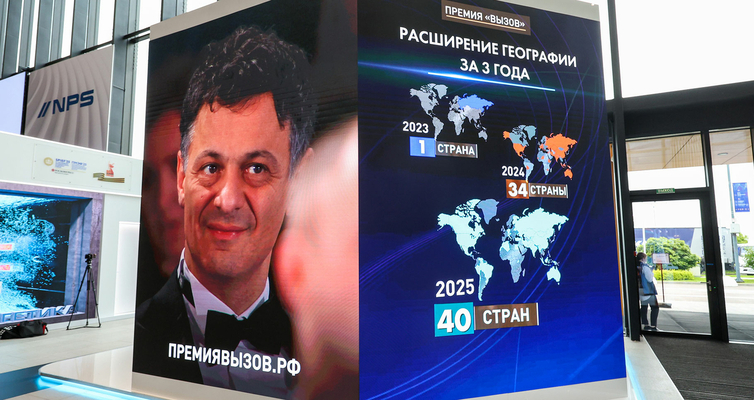
The VYZOV Prize for Future Technologies has received a total of 632 award submissions from 40 countries for its third season.“President Vladimir Putin noted while greeting the participants and organizers of the VYZOV Prize that last year this award reached an international level and received recognition from friends and partners abroad. This season, we are seeing its popularity grow. It has received a total of 632 award submissions from 40 countries, with its international category, “Discovery” drawing the most interest. The number of submissions received from abroad has increased by almost 40%. I’m sure that in the future, this award will continue to attract more and more participants and contribute to strengthening international cooperation, and to promoting Russian science,” said Dmitry Chernyshenko, Deputy Prime Minister of the Russian Federation, Chairman of the Board of Trustees of the Vyzov Foundation for the Development of Scientific and Cultural Relations.This year, the award’s international “Discovery” category received 155 submissions from scientists based in other countries, such as China, Kazakhstan, Turkey, the United States, Switzerland, Italy, Germany, Brazil, India, Indonesia and Australia.Seventy-five percent of all submissions for the 2025 VYZOV Prize came from Russian scientists located across 58 regions of the Russian Federation. The largest numbers of submissions came from Moscow (137), St. Petersburg (51), Nizhny Novgorod Region (39), Moscow Region (36), Novosibirsk Region (19), Sverdlovsk Region (14), Tomsk Region (13), Rostov Region (12), Samara Region (11) and Krasnodar Territory (10).The average age of the award’s participants is 47, with the youngest being 18, and the eldest, 89. The share of female submissions has increased, reaching 26 percent this year from 20 percent in 2024.“We are seeing more and more interest in the VYZOV Prize each year. This shows the trust enjoyed by both the award’s organizers and by its Scientific Committee. This is a second season when not only Russian scientists, but also scientists from other countries are allowed to submit nominations. And the international category has received the largest number of submissions. This testifies to the VYZOV Prize’s reputation, not only in Russia, but worldwide,” said Natalia Tretyak, President of the Vyzov Foundation for the Development of Scientific and Cultural Relations.“This year, we have received more submissions than last year, and their quality remains high. The members of the award’s Scientific Committee now have a difficult and responsible task of selecting the most outstanding research papers from a large number of top-level contestants. At this stage, it is hard to predict who will become the laureates of the 2025 VYZOV Prize, but I can tell you with confidence that those will be great scientists," said Artem Oganov, Chairman of the VYZOV Prize Scientific Committee, Professor of the Russian Academy of Sciences, Distinguished Professor at the Skolkovo Institute of Science and Technology, Member of the European Academy, and Honorary Member of the Royal Society of Chemistry and of the American Physical Society.
19 June 2025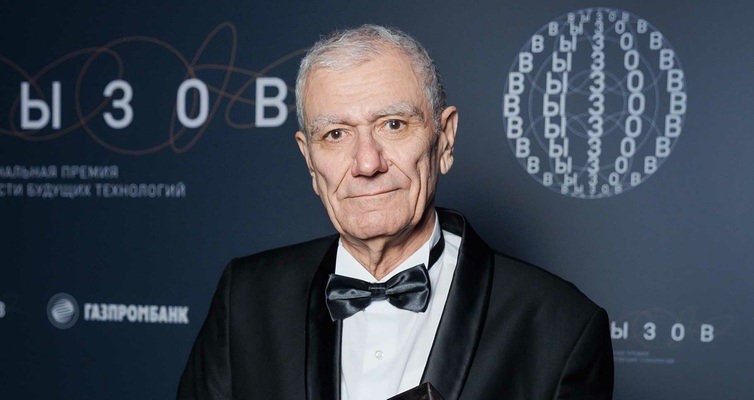
Dr. Gamlet Khodzhibagiyan, a prominent experimental physicist who spent more than 50 years working at the Joint Institute for Nuclear Research in Dubna, passed away at the age of 74 on June 6th, 2025, leaving behind many remarkable achievements in the field of superconducting magnetic systems. Joining Big ScienceGamlet Khodzhibagiyan was born on August, 16th, 1950. Following his graduation from the Bauman Moscow State Technical University and an internship at the Kurchatov Institute, he made a life-choice decision as a young science professional by taking a job at the international research center in Dubna (Moscow Region). This decision would not only set his course for life but also have a major impact on the future of accelerator physics. Khodzhibagiyan joined JINR in 1973 as a Junior Research Fellow and quickly earned himself a reputation as a talented scientist and engineer. His research was focused on designing and building superconducting magnetic systems, a nascent technology at the time, but one that would later serve as the foundation for many of today’s groundbreaking scientific projects. Building a Superconductor Research PowerhouseAt JINR, Khodzhibagiyan became one of the founders of a new area of research, building superconducting magnetic systems for particle accelerators. He oversaw the creation and development of unique technological capabilities, which have enabled Russia to establish itself as one of the global leaders in this critically important area.Dr. Khodzhibagiyan and his team developed a revolutionary technology for building superconducting magnets based on niobium-titanium alloys. It has become the basis for the creation of a new generation of magnetic systems, which are now employed by the world’s leading research installations.One particularly important project was building dipole magnets for the Large Hadron Collider (LHC) at CERN. Magnets built in Dubna under Khodzhibagiyan’s supervision would become an integral part of this phenomenal installation, which has enabled humanity to look into some of the deepest mysteries of matter.JINR’s Laboratory for Superconducting Magnetic Systems headed by Dr. Khodzhibagiyan has delivered magnets that are now being used by major research centers around the world, such as: - CERN (Switzerland): the LHC and other installations, - DESY (Germany): synchrotron radiation systems,- Fermilab (USA): magnets for particle accelerator facilities, - KEK (Japan): superconducting systems for colliders. The Dubna school of superconducting technologies created by Dr. Khodzhibagiyan has earned worldwide recognition as a benchmark for top-level quality and reliability. A Leader and Organizer in ScienceDr. Khodzhibagiyan became Head of JINR’s Laboratory for Superconducting Magnetic Systems in 1988 and led it to become one of the world’s leading research centers for superconducting technologies. Under his leadership, the Laboratory contributed to numerous international research projects, thereby serving to promote Russian science on an international level. Gamlet Khodzhibagiyan was not only a prominent scientist but also a very capable organizer. He developed a unique atmosphere of creativity and top-level quality standards at the Lab, which has helped his team successfully tackle even seemingly impossible tasks. In 2023, Dr. Khodzhibagiyan received the VYZOV National Prize for Best Engineering Solution for the creation of superconducting magnetic systems for particle accelerators. This served as an acknowledgement of the Dubna research team’s contribution to the development of world science.Gamlet Khodzhibagiyan was also awarded titles such as Honored Scientist of the Russian Federation and Honorary Staff Member of JINR, along with many other Russian and international awards. Dr. Khodzhibagiyan’s research has proven instrumental not only in fundamental physics but also in medicine. Technologies developed at the Dubna facility have served as the basis for the creation of modern-day MRI scanners, which now save millions of lives around the world.Gamlet Khodzhibagiyan raised a stellar team of outstanding scientists and engineers, many of whom are now working at some of the world's leading research centers. His technology school continues to build on his principles and approaches to tackling complex research tasks.Dr. Khodzhibagiyan’s colleagues speak of him as a man of exceptional integrity and professionalism. He was famous for his profound knowledge, his long-term vision and his ability to find unorthodox solutions to some of the hardest challenges. At the same time, he always remained a modest and approachable person, willing to share his knowledge with his younger co-workers.Gamlet Khodzhibagiyan lived a long and fruitful life, and the technologies and the research school that are his legacy continue to serve humanity today by exploring new horizons for research.
06 June 2025
The Moscow City Hall will support the VYZOV National Prize for Future Technologies’ award ceremony. Moscow Mayor Sergey Sobyanin signed a decree to that effect following a meeting of the City Government Presidium. The VYZOV Prize was established in 2023 to recognize fundamental breakthrough research and inventions that change the landscape of modern science and improve the quality of people’s lives. The award’s mission is to encourage younger generations and provide evident incentives for them to choose a career in science. The 2025 awards will have a prize fund of 60 mln rubles, 12 mln in each of the five categories: Scientist of the Year, Best Engineering Solution, Breakthrough, Future and Discovery.
28 May 2025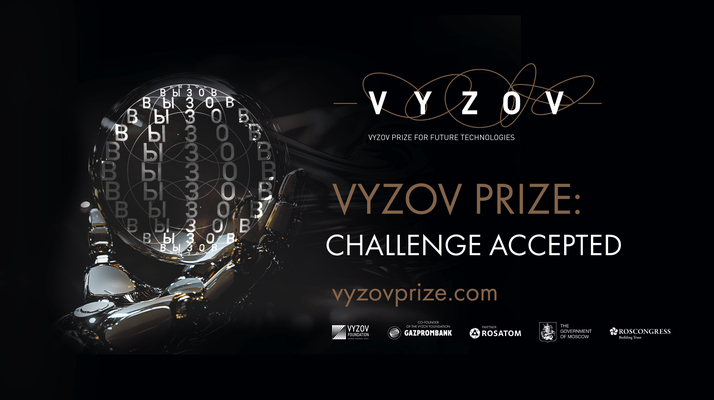
The VYZOV Prize has closed its call for submissions. Scientists and engineers from around the world had 90 days to submit award nominations for studies and inventions that should improve the lives of millions of people. The submissions will now be screened and then reviewed by the Scientific Committee. It is already apparent that this year’s award process will offer an even greater scale and more excitement than last year. We have received more submissions, and their geography has significantly expanded, involving nominees from every continent. “The increasing number of submissions points to our award’s growing authority. Our international category, Discovery, is where we see the most notable increase. We just started reviewing submissions, but we’re already seeing a considerable number of remarkable nominees,” says Artem Oganov, Chairman of the VYZOV Prize Scientific Committee. “Our award attracts more publicity each year. This is testimony to the confidence its Scientific Committee enjoys, and to the award’s impeccable reputation both in Russia and abroad. Nominations that have been submitted come from countries that are traditionally strong in science as well as from countries where science is developing right now, making great strides. We have several months of hard work and great responsibility ahead of us, going through an enormous number of submissions to find some true gems of scientific research.”
22 May 2025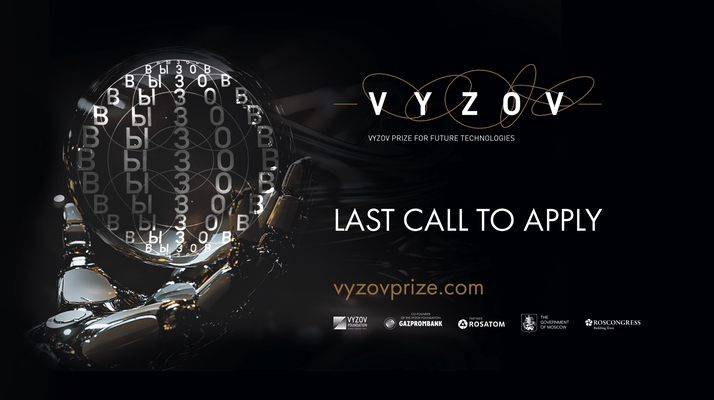
Today is the last day for submitting nominations for the VYZOV Prize for Future Technologies. The call for submissions closes at midnight. The VYZOV Prize was established to recognize breakthrough research and inventions that change the landscape of modern science and the life of every person. The award’s mission is to encourage younger generations and provide evident incentives for them to choose a career in science.The Prize is awarded in five categories for achievements made (preferably, but not exclusively) in the last ten years:• Vision: Scientific achievements that have influenced the development dynamics of science and technology. (Note: Eligible nominees must be aged below 35.)• Engineering Solution: Important inventions or newly created technologies.• Breakthrough: Scientific research offering solutions for important scientific or technological challenges.• Discovery: An international award for new discoveries that have influenced the development of science and technology, awarded to international or Russian scientists based outside Russia.• Scientist of the Year: Individual lifetime contribution to changing the landscape of science and technology.According to the VYZOV Prize rules, there are three ways to submit a nomination: • Self-nomination,• Nomination by any other scientist, • Nomination by a scientific organization (university, research institute, etc.).The 2025 awards will have a prize fund of 60 mln rubles, 12 mln for each of the five categories.Submit your nominations at the VYZOV Prize’s official website vyzovprize.com before 23:59 on May 21th, 2025. Follow this link for a step-by-step video manual on how to submit a nomination.
21 May 2025
The VYZOV Prize for Future Technologies’ series of roadshows culminated in a popular-science lecture delivered by a Laureate of the award, the world’s most cited biophotonics expert Valery Tuchin at the Saratov State University on May 15th. Dr Tuchin spoke about the optical properties of tissues and the relevant research methods. He particularly focused on optical illumination, which suppresses light diffusion, thereby improving image quality and increasing diagnostic accuracy. The VYZOV Prize laureate explained how this method helps distinguish healthy tissues from pathological ones, deliver drugs to tissues and combine optical technologies with traditional imaging techniques. Photo by Dmitry Kovshov, Photographer, Media Communications Department “A scientific achievement may take years, sometimes decades. And, of course, getting feedback is very important for a scientist. Projects such as the VYZOV Prize Roadshow give us an opportunity to tell people what we do and receive feedback from both the scientific community and the wider public. I believe this project may have an interesting future and a broad geography. There is growing interest toward science in society today, including young people," said Dr Tuchin. The event featured a welcoming speech from Aleksey Chumachenko, Rector of the Saratov State University, and a presentation by Aleksey Fedorov, Deputy Chairman of the VYZOV Prize Scientific Committee. “When we came up with the idea of a roadshow done by scientists, we had two objectives in mind. Number one, organize lectures delivered by scientists to introduce regional audiences in Russia to the scientific achievements that will change every person’s life for the better. Number two, tell scientists about the VYZOV Prize in order to attract an even greater number of strong submissions than we did last year, and provide an impetus for the development of promising research projects. After all, our award is about more than merely getting prize money: It also offers recognition, publicity and an opportunity to present what you do to a vast audience,” Aleksey Fedorov said. Photo by Dmitry Kovshov, Photographer, Media Communications Department Anna Shangina, Vice President of the VYZOV Foundation for the Development of Scientific and Cultural Relations, described its activities for the public, and summarized the 2025 VYZOV Prize Roadshow. “Saratov is the final location for our roadshow, our science tour organized to promote this year’s VYZOV Prize selection and awards. Valery Tuchin's lecture at the Saratov State University has attracted a packed house. We also received a warm response and noted great interest from very diverse audiences in other cities. We have enjoyed support from heads of regional governments, university rectors and the business community. The roadshow format has proven to be effective, and we plan to expand our project’s geography next year," Mrs Shangina said. Photo by Dmitry Kovshov, Photographer, Media Communications Department Scientists and engineers of the Volga Federal District have traditionally shown great interest for the VYZOV Prize. Last year, they submitted a total of 56 submissions, making up almost 10 percent of all nominees. Eight of the submissions came from the Nizhny Novgorod Oblast. Nauka Mail is information partner of the VYZOV Prize.
15 May 2025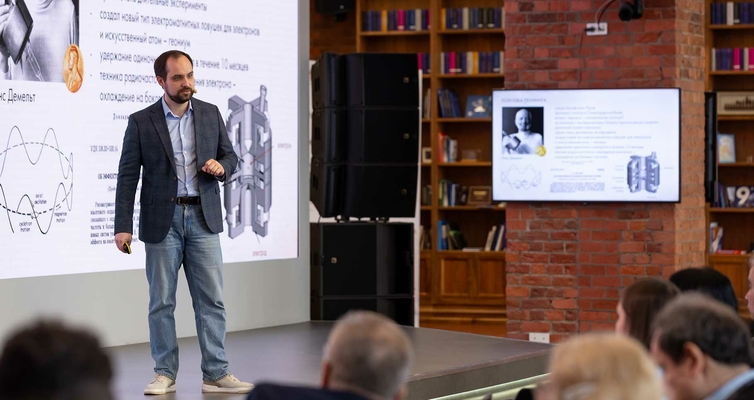
On May 12, the Sakharov Mayak Academy’s Culture and Education Center hosted a popular-science lecture delivered by Ilya Semerikov, Head of Research Group at the Russian Quantum Center, Research Fellow at the Lebedev Physical Institute of the Russian Academy of Sciences, creator of Russia's most powerful ion quantum computer and a Laureate of the VYZOV Prize in the Future category. Semerikov told the audience about his project and about the past, present and future of ion computing: How this area of research initially emerged, what’s in focus for scientists at the moment, what challenges they are facing down the road, and how their current achievements can be used for the good of society. “Our current progress in quantum computing is truly amazing. Today, we don't just control the quantum states of individual atoms: We can build intricate quantum systems made up of dozens of atoms, like building blocks, and even use them for computing. It took several generations of scientists working hard for us to get here. In my lecture, I would like to demonstrate the continuity of scientific thought: How new, amazing opportunities arise from individual steps made by humanity, and how our lives change along the way,” said Ilya Semerikov. Ilya Semerikov. Photo: Nikita Dukhnik Nizhny Novgorod Governor Gleb Nikitin opened the event with a welcome address.“The VYZOV Prize is more than just an award. It provides a powerful impetus for innovation and offers additional opportunities for supporting talented scientists, engineers and inventors, and for popularizing the latest achievements in science and technology. The award featured nominees from Nizhny Novgorod in previous years, and I’m confident that there will be even more submissions coming from our region this year. This is the award’s third year, and it opens up new horizons and new opportunities. For our part, we are happy to support initiatives proposed by our scientists, researchers and engineers,” the Governor said. Gleb Nikitin. Photo: Nikita Dukhnik Deputy Minister of Science and Higher Education Olga Petrova emphasized the importance of achieving technological leadership for Russia. “Russia has always been a leader in knowledge-intensive technologies, and we continue to address the challenges of today with confidence. Scientific schools, including prominent ones such as the one in Nizhny Novgorod, have played an important role in achieving progress. Involving young scientists and postgraduates in major research projects promotes continuity in science, and contributions from the business community help strengthen our nation’s technological sovereignty," Mrs Petrova said. Olga Petrova. Photo: Nikita Dukhnik Deputy Chairman of the VYZOV Prize Scientific Committee Aleksey Fedorov also addressed the audience, describing the specifics of the award’s submission process and explained how it is different from other scientific awards. “Events such as the VYZOV Prize Roadshow help us get to know the people who are building our future as we speak. Today, working in science is considered an honorable and even trendy profession. Science is attracting new investments, and we feel the support from the government and the business community. Scientists work hard every day for our country to have an edge in the technology race, and they are also looking for ways to address the global challenges of the 21st Century. These people deserve our attention and recognition. On the one hand, we aim to provide them with a platform to introduce their achievements. On the other hand, we would like scientists from different regions to find out about the VYZOV Prize and send in their submissions. After all, our award is about more than financial support: It encourages scientists to keep moving on and evolving," said Mr Fedorov. Aleksey Fedorov. Photo: Nikita Dukhnik Dmitry Zauers, Deputy Chairman of the Board of Gazprombank and a Member of the VYZOV Foundation Council, gave a lecture on the current state of transition to knowledge-based economy, and described how the business community can support innovation. “None of the modern-day achievements that we are using, such as telecom, medicine or the media, would be possible without scientific knowledge and research. Technology is a critical factor in securing our country’s leadership, national sovereignty and the welfare of our community. Nations that possess critical technologies have always been global leaders,” Mr Zauers noted. Dmitry Zauers also pointed out that Gazprombank has supported science and technological development by contributing its own infrastructure and expertise for research. Dmitry Zauers. Photo: Nikita Dukhnik Scientists and engineers of the Volga Federal District have traditionally shown great interest for the VYZOV Prize. Last year, they submitted a total of 56 submissions, making up almost 10 percent of all nominees. Eight of the submissions came from the Nizhny Novgorod Oblast. Nauka Mail is information partner of the VYZOV Prize.
12 May 2025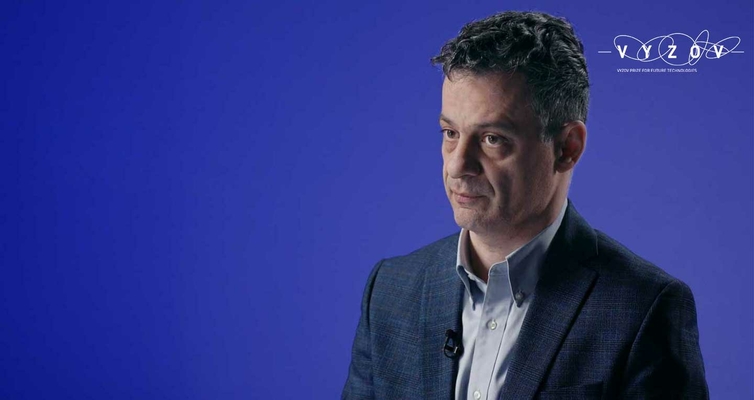
Chairman of the VYZOV Prize Scientific Committee Artem Oganov answered frequently asked questions.The VYZOV Prize for future technologies is awarded for developments that will change lives of millions of people for the better. The money prize is 60 million rubles – 12 million in each of the five categories (Future, Engineering solution, Breakthrough, Discovery, Scientist of the Year). You can apply on vyzovprize.com until May 21. Learn more in the video.
28 April 2025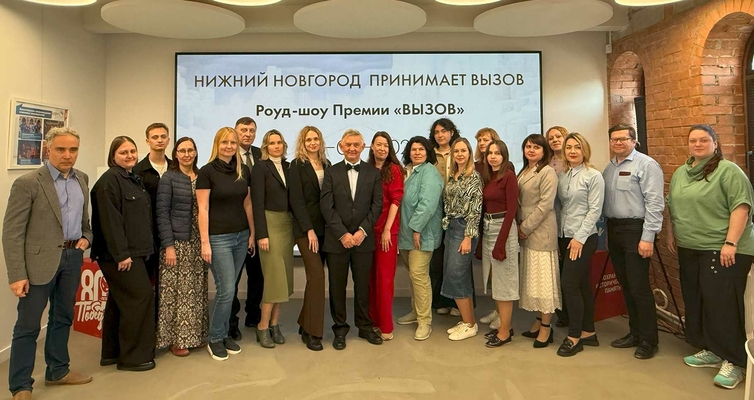
On April 24, the Corporate University of the Government of the Nizhny Novgorod Region hosted a lecture by Sergey Taskaev, laureate of the VYZOV Prize in the Engineering Solution category, as part of the VYZOV Prize Roadshow. Sergey Taskaev. Photo: Nikita Dukhnik Sergey Taskaev is Doctor of Physical and Mathematical Sciences, Head of the Laboratory of Boron Neutron Capture Therapy at Novosibirsk State University, and Chief Researcher at Budker Institute of Nuclear Physics of the Siberian Branch of the Russian Academy of Sciences. He shared the story of creating a new type of small, high-intensity source of neutrons, a task that was deemed technically unfeasible. This device, dubbed VITA, is perfectly suited for boron-neutron capture therapy, a technique that precisely targets tumor cells while sparing healthy tissues. VITA makes neutron technologies more accessible and effective while pushing the boundaries for research across various fields. "Science is an art, and scientists need feedback, much like artists, writers, and musicians. When people show interest in your work, it gives you an opportunity to discuss what you have been doing for many decades, which is incredibly valuable. The scientific roadshow is an exciting project with a promising future," says Sergey Taskaev, laureate of the VYZOV Prize for Future Technologies. Photo: Nikita Dukhnik The event was attended by both young researchers and heads of scientific schools. "The Nizhny Novgorod region has always been the home, the school and even the scientific laboratory to outstanding scientists. Rostislav Alekseev, Alexander Andronov, Alexander Popov and other great minds have laid a strong scientific and engineering foundation for our region and set a high standard for future generations. By holding an event organized by the Vyzov Foundation, we continue this tradition of scientific excellence of Nizhny Novgorod. We are honored to host a gathering of our nation's brightest scientists and promising young talents," said Ekaterina Solntseva, Deputy Chair of the Government of the Nizhny Novgorod Region and a Candidate of Technical Sciences. These events, she noted, inspire young researchers, elevate the status of science as a cornerstone of regional and national development, and symbolize the rise of a new generation of scientists who are ready to carry forward the legacy of Andronov and Popov in terms of global scientific leadership. Photo: Nikita Dukhnik The event was also attended by Aleksey Fedorov, Deputy Chairman of the Scientific Committee of the VYZOV Prize, Head of the Quantum Information Technologies research group at the Russian Quantum Center, Head of the Quantum Information Technologies Laboratory at the National University of Science and Technology MISIS. He touched upon the details of applying for the VYZOV Prize and explained what sets it apart from other scientific awards. "It is very important that scientists become the heroes of our time, with society recognizing their accomplishments and their knowledge being applied to current economic needs. It is a great joy for each scientist to see their work appreciated by both the economy and the people. This requires a two-way relationship: scientists must focus on solving practical challenges posed by the industry, while businesses must pay more attention to the achievements of our scientists," said Alexey Fedorov, Deputy Chairman of the Scientific Committee for the VYZOV Prize. Aleksey Fedorov. Photo: Nikita Dukhnik Scientists and engineers from the Volga Federal District have been actively submitting applications for the VYZOV Prize. For instance, last year the award received 56 applications from the district, representing nearly one in ten entries. The Nizhny Novgorod region, in particular, has been demonstrating a steady increase in engagement. In 2024, the region submitted eight applications. Nauka Mail is information partner of the VYZOV Prize.
24 April 2025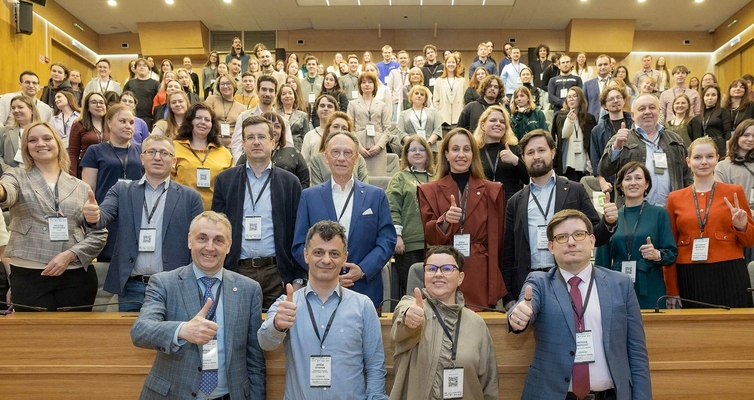
Leonid Fershtat, Laureate of the VYZOV Prize in the Future category, Doctor of Chemical Sciences and Head of the Laboratory for Nitrogen-Containing Compounds at the Zelinsky Institute of Organic Chemistry of the Russian Academy of Sciences, delivered a lecture "There is No Such Thing as Too Much Nitrogen: Why Do We Need Nitrogen-Rich Heterocycles?" on April 21 and 22. The lecture was presented at two universities in St. Petersburg, Peter the Great Saint Petersburg Polytechnic University (SPbPU) and ITMO University, as part of the VYZOV Prize Roadshow. Leonid Fershtat. Photo: Bibars Bara, SPbPU press service Andrey Rudskoy, Rector of Peter the Great Saint Petersburg Polytechnic University and Academician of the Russian Academy of Sciences: "I firmly believe that we must put a word out about the achievements of scientists, and we must to it loud and clear in order to inspire young people to pursue science. I closely follow the VYZOV Prize. I am glad that SPbPU, the center of scientific knowledge and innovation for over 125 years, hosted a lecture by one of the winners of this award. Universities play an essential role in popularizing science, and it is our pleasure and honor to provide a platform for initiatives that engage more people in the scientific community and contribute to progress and a better future. I recall the words of Igor Kurchatov, alumnus and professor of our university: "Science and knowledge transcend the boundaries of centuries!" "Such projects carried out together with universities help build bridges between science and society. This is more than just education; it's an investment in a future where scientific thinking is the norm and researchers get their deserved recognition. Scientists become role models, especially for younger generation, demonstrating that science is an exciting and esteemed occupation. ITMO University is a perfect platform for popularizing science, since we have always supported interdisciplinary projects and unconventional educational formats like open lectures, science slams, and festivals. These initiatives foster the culture of public discussions of science," said Ekaterina Skorb, director of the School of Life Sciences, head of Infochemistry Scientific Center at ITMO University. Photo: Photo: Dmitry Grigoryev, ITMO press service Leonid Fershtat shared insights into his work in developing new organic compounds based on nitrogen-oxygen heterocyclic structures. These compounds can be used to create medicines and high-performance materials for aerospace and mining industries. "Scientists use every opportunity to share their work with a new audience. This is incredibly valuable. While we may not yet fill stadiums like rock stars, the very existence of projects like the VYZOV Prize Roadshow reflect the increasing public interest in scientists and our work. I am always delighted to see and feel the feedback from the audience, to answer questions about my research," said Leonid Fershtat, laureate of the VYZOV Prize for Future Technologies. Photo: Bibars Bara, SPbPU press service The event was also attended by Artem Oganov, Chairman of the Scientific Committee of the VYZOV Prize, Professor at Skoltech and Professor of the Russian Academy of Sciences. He touched upon the specifics of applying for the VYZOV Prize and explained makes it different from other scientific awards. "The scientific roadshow offers brilliant scientists the opportunity to discuss their latest work in various cities. At the same time, people in these cities have a chance to gain firsthand knowledge of the groundbreaking discoveries and talk to the people whose research and inventions affect millions of lives. Saint Petersburg is home to a great number of talented researchers, and we are looking forward to their applications for the VYZOV Prize this year," said Artem Oganov, Chairman of the Scientific Committee of the VYZOV Prize. Photo: Photo: Dmitry Grigoryev, ITMO press service The event at SPbPU featured Vitaly Sergeev, vice-president of the university, Doctor of Technical Sciences, Professor, and Corresponding Member of the Russian Academy of Sciences. The lecture at ITMO was attended by rector Vladimir Vasiliev. It is worth noting that scientists and engineers from the Northwestern Federal District consistently show a strong interest in the VYZOV Prize. Last year, 59 applications were submitted from this region, or roughly one tenth of all applications. St. Petersburg is one of the leading regions in terms of the number of applications (49), trailing only behind Moscow. The VYZOV Prize Roadshow is organized by the Vyzov Foundation for Development of Scientific and Cultural Relations in support of the applications campaign of the VYZOV Prize. In 2025, the event will tour four Russian cities: St. Petersburg, Novosibirsk, Nizhny Novgorod, and Saratov. The project aims to showcase scientific breakthroughs not only in Moscow but also in other Russian cities, demonstrating that scientists are the heroes of our time and deserve public attention, recognition, and admiration. Applications for the award can be submitted at the vyzovprize.com website until May 21. Nauka Mail is information partner of the VYZOV Prize.
22 April 2025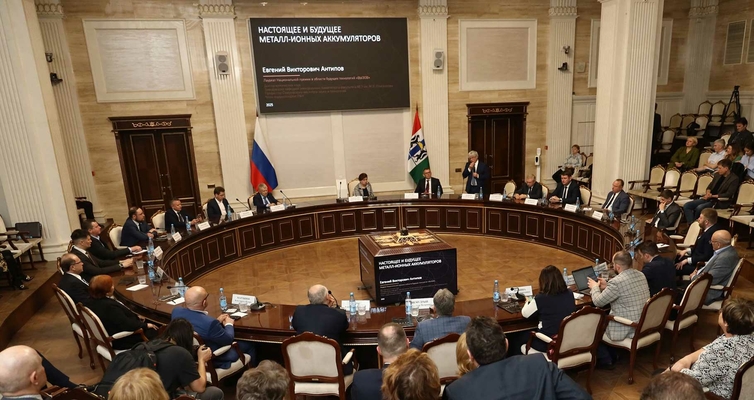
Usually, actors and musicians travel across the country, but this time, scientists are on tour. The project aims to showcase scientific breakthroughs not only in Moscow but also in other Russian cities, demonstrating that scientists are the heroes of our time and deserve public attention, recognition, and admiration. Novosibirsk became the first city on the map of the VYZOV Prize Roadshow. On April 14, Evgeny Antipov, a laureate of the VYZOV Prize for Future Technologies, delivered a lecture in the Great Hall of the Government of the Novosibirsk Region. Evgeny Antipov is Corresponding Member of the Russian Academy of Sciences, Head of the Department of Electrochemistry of Chemistry Faculty at Lomonosov Moscow State University, and Professor at Skoltech. His research is focused on developing materials for next generation metal-ion batteries, including sodium, potassium, and lithium-ion batteries. These batteries are known for their high energy density, significantly exceeding that of conventional batteries. During his lecture, Evgeny Antipov spoke about his work and answered questions from the audience. "The VYZOV Prize Roadshow is a new format, and it is both an honor and great responsibility to be the first person to give a lecture on this unique tour of scientists across Russia. I am delighted to have the opportunity to share my research with a large number of people who are passionate about science. It is a great idea to have winners of the VYZOV Prize give lectures in different Russian cities. I hope that the geographical scope of the project will expand further," said Evgeny Antipov, laureate of the VYZOV Prize for Future Technologies. Photobank of the Vyzov Foundation The event was attended by Irina Manuylova, Deputy Governor of the Novosibirsk Region, and Dmitry Zauers, Deputy Chairman of the Management Board of Gazprombank and Board Member of the Vyzov Foundation. "We are proud that Novosibirsk has become the first city to host a new format of science promotion events in support of the VYZOV Prize. We are one of the leading regions in achieving the objectives of the Decade of Science and Technology. Each year, we hold approximately 200 events aimed at popularizing and communicating science and technology. Scientists and engineers from the Siberian Federal District have submitted numerous applications for the VYZOV Prize. When it comes to the Novosibirsk Region, the interest in the award is increasing each year. We are particularly excited that in 2024, a scientist from Novosibirsk, Sergey Taskaev, won the award in the Engineering Solution category," said Irina Manuylova, Deputy Governor of the Novosibirsk Region. Photobank of the Vyzov Foundation Scientists and engineers from the Siberian Federal District have a strong track record of actively submitting applications for the VYZOV Prize. Last year, a total of 594 applications were received from 34 countries, with 55 coming from the Siberian Federal District – in other words, the district accounted for roughly one tenth of all applications. The Novosibirsk Region was one of the leading regions in terms of the number of applications submitted, ranking behind only Moscow, the Moscow Region and St. Petersburg. Sergey Taskaev, a scientist from Novosibirsk, head of the Laboratory of Boron Neutron Capture Therapy at Novosibirsk State University, Chief Researcher at Budker Institute of Nuclear Physics of the Siberian Branch of the Russian Academy of Sciences, became the winner in the Engineering Solution category. He was awarded the prize for the development of a compact accelerator neutron source suitable for a wide range of research applications, including neutron capture therapy. "Today, the nation's top priority is to transfer knowledge into the economy. Gazprombank is committed to creating a comprehensive ecosystem for knowledge transfer in technology, in collaboration with the Ministry of Education and Science, universities, National Technological Initiative, Sirius University, and industrial partners. Last year, we launched several funds with a total value of approximately 13 billion rubles. Together with the Ministry of Education and Science, we are relaunching the Priority 2030 program to facilitate the involvement of universities. Moreover, we co-founded the VYZOV Prize, which will be held for the third time this year. We firmly believe that talents play a key role in technological leadership, and we need to believe and invest in them. In our view, the expertise required to build new industries is becoming critically important, and we are making this part of Gazprombank's strategy," said Dmitry Zauers, Deputy Chairman of the Management Board of Gazprombank and Board Member of the Vyzov Foundation. Photobank of the Vyzov Foundation In 2025, the Roadshow is expected to visit four Russian cities: Novosibirsk, St. Petersburg, Nizhny Novgorod, and Saratov. "The VYZOV Prize supports the most important scientific research and researchers, shows groundbreaking developments in modern science. We believe that the VYZOV Prize Roadshow will be especially interesting for professional scientists. However, if we could also spark interest in science among kids and teenagers through this initiative, it would be a priceless achievement," says Artem Oganov, Chairman of the Scientific Committee of the VYZOV Prize. Nauka Mail is information partner of the VYZOV Prize.
15 April 2025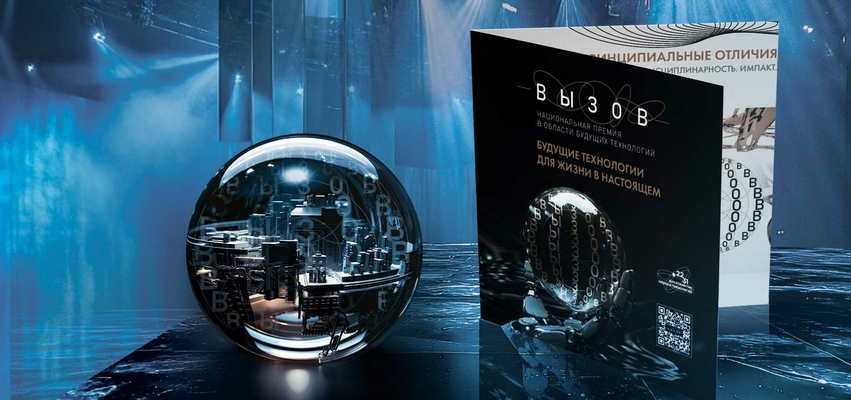
New editions of the following documents regulating the conduct of the VYZOV Prize for Future Technologies have been published: - Vyzov Prize for Future Technologies regulations - Money Prize presentation regulations - Personal Data processing policy - User Agreement The new editions of the documents are effective from March 19, 2025.
19 March 2025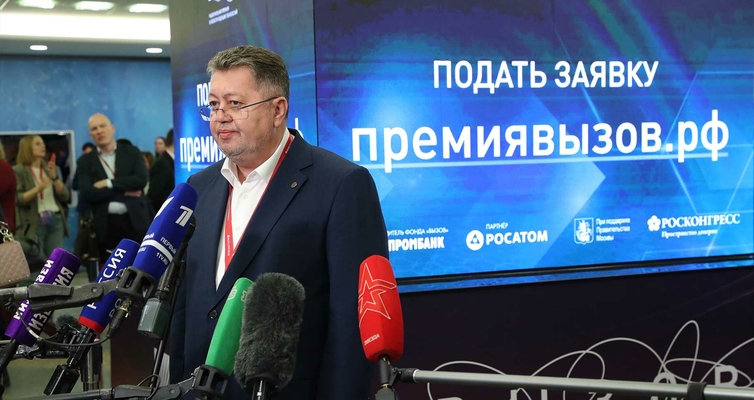
On February 21, the new season of the VYZOV Prize for Future Technologies officially kicked off. The call for applications for the 2025 Prize was announced at the Future Technologies Forum. Applications can be submitted online at vyzovprize.com until May 21, 2025. The VYZOV National Prize for Future Technologies is awarded for science-intensive projects that can be implemented within ten years to significantly improve people's lives. The VYZOV Prize was founded and is organized by the Vyzov Foundation for the Development of Scientific and Cultural Relations. Gazprombank is Co-Sponsor of the Prize, and its Partners include Rosatom State Corporation, Roscongress Foundation, and the Government of Moscow. This year, the Prize Fund of the VYZOV Prize will be increased to 60 million rubles (approx. $700,000). Photo: Roscongress Foundation The VYZOV Prize features 5 categories: Future (awarded to young scientists under the age of 35), Engineering Solution (for a significant invention or the creation of a new technology), Breakthrough (for research that has solved an important scientific or technological problem), Discovery (category for foreign scientists and scientists living abroad), Scientist of the Year (for personally contributing to changing the scientific landscape). Dmitry Chernyshenko, Deputy Prime Minister of the Russian Federation, Chairman of the Supervisory Board of the Vyzov Foundation for the Development of Scientific and Cultural Relations: "I am delighted to announce the launch of the third season of the VYZOV Prize. This scientific award enjoyed great success in previous years. We note with pleasure the great interest of the international academic community, since we have received applications from researchers representing 33 foreign states. Scientific achievements in the international category and many other initiatives have proven their efficiency. I am confident that during the third season of the VYZOV Prize we will discover new scientists and their groundbreaking discoveries." Dmitry Chernyshenko. Photo: Roscongress Foundation Artem Oganov, Chairman of the Scientific Committee, VYZOV Prize: "We are excited to launch the third season of the VYZOV Prize, an award that burst into the world of science and quickly moved to the fore. Many people are wondering about the secret behind this award that has become so popular in Russia and other countries in just two years. The answer is simple: the work of our Scientific Committee is based on the principles of complete impartiality and professional integrity. Scientific awards make sense only if they are honest. The same, by the way, applies to science in general." Artem Oganov. Photo: Roscongress Foundation Leonid Shlyakhover, President of the Vyzov Foundation for the Development of Scientific and Cultural Relations, General Producer of the VYZOV Prize Awards Ceremony: "We are noting the growing interest in the VYZOV Prize which demonstrates that the award is highly appreciated by the academic community. This year, we anticipate an increase in the number of applications and an expansion of geographical reach. The highlight of this season will be the "Week with Vyzov" project in December, 2025. Once we announce the names of this year’s laureates at the final press conference, winners of previous years will deliver a series of lectures at Moscow's leading research centers. The season will conclude with the VYZOV Prize Awards Ceremony, which will, as custom has it, take place at the Moscow Manege on December 19th, 2025." Anatoly Garbuzov, Minister of the Moscow City Government and Head of the Moscow Department of Investment and Industrial Policy: "The VYZOV Prize is one of the crucial tools for supporting cutting-edge scientific advancements. Last year, the award was given to Evgeny Antipov and his project in the field of batteries for electric vehicles. The development of such technologies has strategic implications for Moscow – it is yet another step towards a sustainable and energy-efficient city of the future. We firmly believe that fostering science and innovation will help us implement the best projects in the urban environment and improve the quality of life for our citizens. That is why Moscow Government consistently increases its financial contribution to the award: in 2023, the funding was capped at 50 million rubles, and this year it has increased to 60 million rubles. Anatoly Garbuzov. Photo: Roscongress Foundation Dmitry Zauers, Deputy Chairman of the Management Board of Gazprombank, Board Member of the Vyzov Foundation: "Currently, our country's top priority is to transfer knowledge to the economy. Therefore, it is crucial to ensure new ways of cooperation between the state, scientific community, and business. For three years in a row, the VYZOV Prize helps achieve this goal by popularizing science and promoting the image of a scientist as the hero of our time. Gazprombank has co-founded the award and continues to support the Vyzov Foundation because we are convinced that talented individuals play a key role in achieving technological leadership and that we need to invest in them. The growing interest in the VYZOV Prize, particularly from international academic community, proves the significance of discoveries made by our scientists and our aspiration for technological leadership and economic growth."
21 February 2025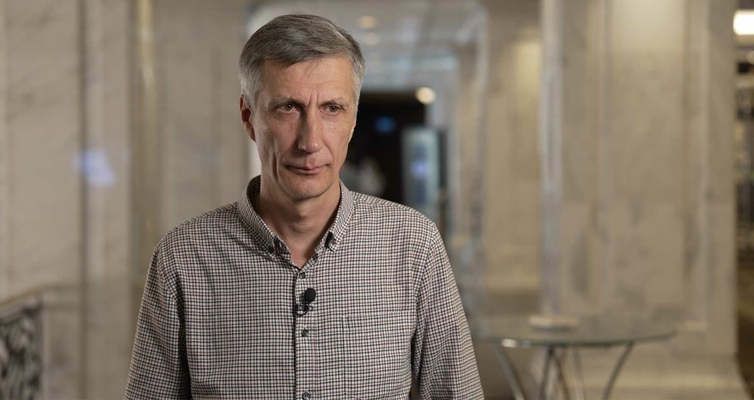
Russian and foreign researchers conducted a major survey to assess the level of trust in scientists in the post-pandemic era. The study involved almost 72,000 respondents representing 68 countries, including Russia. The results were published in the Nature Human Behavior journal. According to the survey, a low level of credibility to scientists was recorded in Albania, Kazakhstan, Russia, Italy, Japan, and other countries. We asked Andrey Reznichenko, member of the Scientific Committee of the VYZOV Prize, Head of Science Desk at TASS News Agency, and Honorary Worker of Science and High Technologies of the Russian Federation, about what could cause such results and what can be done to address the situation. In his opinion, the low level of trust in scientists in Russia is a multifaceted phenomenon rooted in the complex interweaving of social processes and historical nuances. The main problem is the communication gap between scientists and the wider audience, which makes scientific advancements seem incomprehensible, uninteresting, and detached from reality. "Poor media literacy in the society leads to the fact that even great discoveries and results are perceived through the prism of myths and prejudices. The struggle against ignorance cannot stop even for a minute. We need to ensure the right conditions for continued communication between scientists and the general public, including public lectures, scientific festivals, debating clubs, master classes, and educational projects. Such events help bring science closer to people, make it clearer and more accessible. The VYZOV Prize is a great example of systemic efforts to raise the profile of science in Russia," says Andrey Reznichenko. According to the authors of the survey, people in certain countries believe that the priorities of science do not always coincide with their own. The poll numbers can be used by scientists and politicians seeking to increase the level of trust in science. Interestingly, the highest levels of trust in scientists were seen in India, several African and Asian countries, as well as in Australia, Spain, Turkey, New Zealand, and Argentina. "We are in urgent need of new remarkable science communicators who can win over the media space and get across the real scientific achievements to all audiences. Support for high-quality science journalism will serve as a shield against misleading sensational headlines, such as the ones about sound shock waves from the collision of galaxies that have supposedly reached the Earth. Researchers and popularizers of science should actively participate in public discussions, advise state authorities, and become experts on issues related to people's daily lives. Such active dialogue helps establish a positive image of science and make it an integral part of the cultural space," said Andrey Reznichenko.
04 February 2025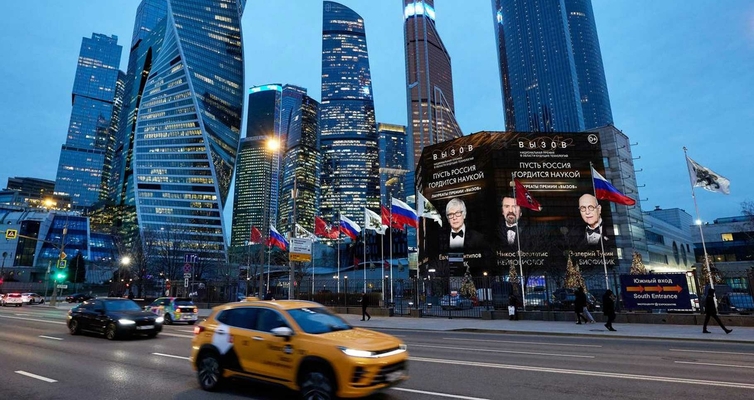
MAER Group, communications partner of the VYZOV Prize for Future Technologies, placed the portraits of award winners on media facades and digital supersites across Russia. These portraits can be seen in Moscow, St. Petersburg, Nizhny Novgorod, Novosibirsk, Vladivostok, Kazan, Volgograd, Chelyabinsk, Samara, Ufa, and other major Russian cities.Photo: press service of MAER Media Holding For the first time, social advertising with the slogan "May Russia Take Pride in Science" was put on display for millions of residents of Russian capital in November of last year on billboards, multimedia screens, and on TV Center channel with the support of the Moscow Department of Mass Media and Advertising.Photo: press service of MAER Media Holding "The VYZOV Prize laureates are the real stars in the world of science, and we are doing everything so that these stars shine bright. We are proud of our laureates and want the whole world as well as the entire country to take pride in them," said Leonid Shlyakhover, President of the Vyzov Foundation for the Development of Scientific and Cultural Relations. "Winners of the VYZOV Prize want to make the world a better place, and I believe it's crucial to spread the word about their achievements across the country. Their portraits can be seen on hundreds of our media facades, including one of the largest ones – Mezhdunarodny, located between the World Trade Center and the Moscow City, with an area exceeding 1,000 square meters," added Konstantin Mayor, General Director and owner of MAER Media Holding. Photo: press service of MAER Media Holding
28 January 2025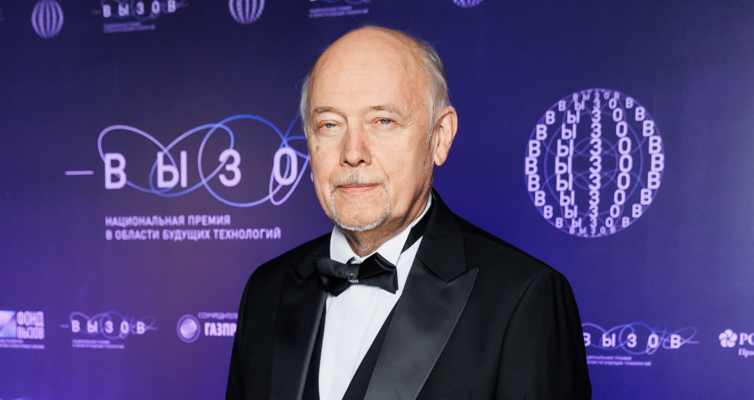
The renowned scientist received this state award for his "great contribution to the development of scientific and technological cooperation between Russia and Belarus" by decree of the President of Russia dated January 24, 2025. Sergey Kilin is head of the Center for Quantum Optics and Quantum Informatics at the Stepanov Institute of Physics of the National Academy of Sciences of Belarus, Academician of the National Academy of Sciences of Belarus and Foreign Member of the Russian Academy of Sciences. He has made a significant contribution to the field of quantum optics and informatics: in 1999, Sergey Kilin published the first review on quantum computing in the Russian language. He helped establish the Russian Quantum Center and has promoted international scientific and innovative cooperation within the CIS countries. We congratulate Sergey Kilin on this prestigious award!
27 January 2025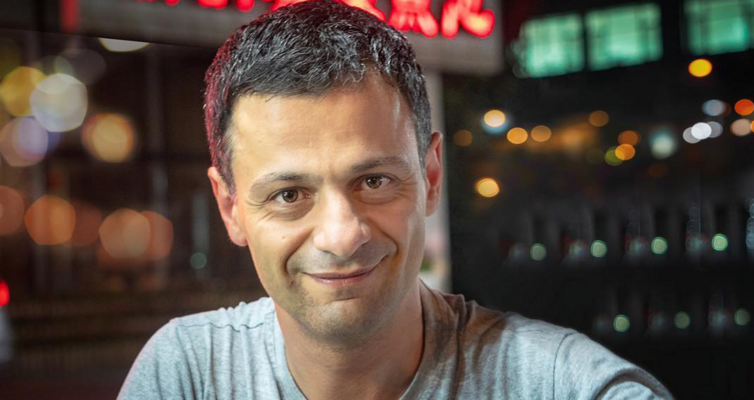
On March 3-4, the Skolkovo Institute of Science and Technology will host the "Matter and Materials" conference. The main organizer of this event is Artem Oganov, Chairman of the Scientific Committee of the VYZOV Prize, Professor at Skoltech, Professor of the Russian Academy of Sciences, and Member of the Academia Europaea. The first day of the conference will also mark his 50th birthday, and he decided to gather colleagues and students from around the world to discuss the latest research in materials science, chemistry, and related fields. Artem Oganov gave exclusive comment on the event to the Vyzov Foundation: "I decided that on my 50th birthday I would like to bring together my friends from various fields of science whose research is related to matter and materials in one way or another. The level of guest speakers is exceptionally high. This conference can turn into a real celebration of science to which everyone is welcome." Speakers will include leaders of research groups in major global research centers. Among them are Yuri Oganessian, renowned Russian scientist who discovered 10 elements of the periodic table, one of them now bearing his name; Igor Pekov, childhood friend of Artem Oganov and a corresponding member of the Russian Academy of Sciences who has discovered over 200 minerals; Michele Parrinello, Italian scientist known as one of the fathers of computational materials science; Yanming Ma, Academician of the Chinese Academy of Sciences and Vice-President of Jilin University; Yan Li, Professor at Peking University, who will present her original research on the origin of life stemming from nonliving matter. The conference will also feature two reports that are not directly related to materials science but can contribute to its development and to the strengthening of international cooperation. One report will focus on the new scientific journal The Innovation. This journal is relatively young, but it has already earned a reputation in the academic community, and its impact factor is catching up with Nature and Science. The other report will be dedicated to the VYZOV National Prize for Future Technologies; it will be delivered by Aleksey Fedorov, Deputy Chairman of the Scientific Committee of the VYZOV Prize. "We want to spread the word about the VYZOV Prize both in Russia and abroad so that all scientists, including the guests of the upcoming event, would strive to receive it. The conference and the VYZOV Prize share their openness to the world, so I think it that the participants of the conference will benefit from learning about the award," said Artem Oganov. More than 230 scientists from China, India, Iran, Algeria, Armenia, Russia, and other countries have signed up for the conference. Artem Oganov believes that this number will double by the time the application process is complete. The program of the conference is available here. Participation is free upon prior registration. Applications are accepted until February 1.
21 January 2025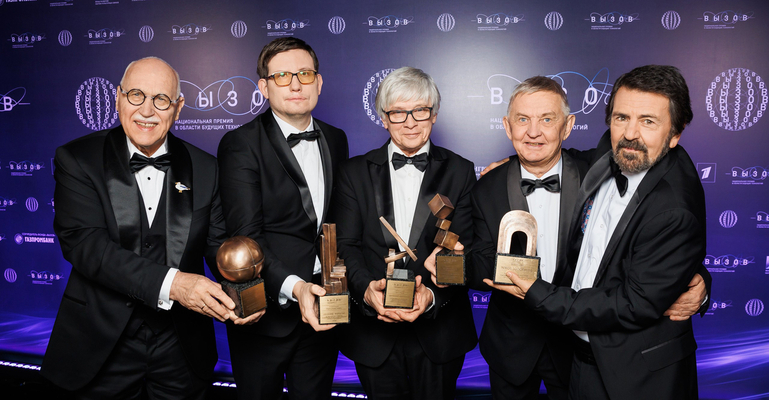
On December 19, the Manege Central Exhibition Hall in Moscow hosted the second Awards Ceremony for the VYZOV Prize for Future Technologies. This ceremony was a scientific Oscar, a unique immersive performance at the intersection of science and art featuring Konstantin Khabensky, Alexandra Ursulyak, Pavel Tabakov, Sofia Ernst, Leonid Agutin, and Anton Belyaev. The ceremony was directed by Konstantin Bogomolov and anchored by Igor Vernik. Dmitry Chernyshenko, Deputy Prime Minister of the Russian Federation, Chairman of the Supervisory Board of the Vyzov Foundation, delivered the address of the Russian President Vladimir Putin and noted the significance of the VYZOV Prize: "I would like to thank the President for the fact that in 2022, he took the initiative to establish the Decade of Science and Technology. Undoubtedly, the international VYZOV Prize is a jewel among other very important events that promote our science and technologies". The VYZOV Prize in "Future" category was awarded to Leonid Fershtat for advanced research in the field of creation of multipurpose organic functional materials based on high-nitrogen molecular architectures. He received the award from Mikhail Shvydkoy, Special Representative of the President of the Russian Federation for International Cultural Cooperation. Dmitry Chernyshenko, Deputy Prime Minister of the Russian Federation, together with Veronika Skvortsova, Head of the Federal Medical-Biological Agency, presented the award to Sergey Taskaev, laureate in the "Engineering Solution" category for the development of a compact accelerator neutron source suitable for a wide range of research applications, including neutron capture therapy. "Our laureate of the VYZOV Prize comes from Novosibirsk, a city renowned for its scientists and discoveries. It is home to the Siberian Circular Photon Source (SKIF), the Megascience-class installation, has just recently launched the first beam of charged particles from its injector. This is a 4+ generation synchrotron with a brightness unmatched by other similar projects in the world. The award in the "Engineering Solution" category is an example of how a non-accidental concurrence of circumstances can determine the fate and implementation of a project that is so important for our people. Boron Neutron Capture Therapy (BNCT) is a technology that will enable us to start saving people's lives and curing them from cancer, this terrible disease of the 21st century, already in 2025 at the Blokhin Cancer Research Center and simultaneously at the Burnazyan Center," said Dmitry Chernyshenko. Leonid Shlyakhover, President of the Vyzov Foundation for the Development of Scientific and Cultural Relations, spoke about the accomplishments of the award during its existence: "It has been exactly one year since we first gathered in this hall to honor the laureates of the VYZOV Prize. We have managed to achieve a lot this year. The VYZOV Prize laureates are the real stars in the world of science, and we are doing everything so these stars shine bright. Reports are made about them, plays are staged, and their faces and names are placed on huge billboards all over Moscow. We are proud of our laureates and want the whole world as well as the entire country to take pride in them." Valery Falkov, Minister of Science and Higher Education of the Russian Federation, awarded the prize in "Breakthrough" category to Evgeny Antipov for his work in the creation of fundamental and practical basis for the development and production of electrode materials for new generation metal-ion batteries. Co-Laureate of the Prize is Artem Abakumov. "During the Decade of Science and Technology, we are looking to achieve several key objectives. One of them is attracting more young people to the field of research and development. Another goal is to bring together our research institutions, universities, and research teams with businesses and organizations that work in the real sector of the economy. Certainly, this award helps us attain these crucial national goals," the minister said. Alexey Likhachev, Director General of the State Atomic Energy Corporation ROSATOM, presented the VYZOV Prize in the international "Discovery" category to Nikos Logothetis, a scientist from China, for his fundamental contribution to the development of functional magnetic resonance imaging and its implementation in everyday scientific and clinical practice for studying human brain activity. Mr. Likhachev noted that the VYZOV Prize enhances the standings of scientists in society and draws the attention of young researchers to major research-intensive projects. "The nuclear industry tackles unprecedented scientific challenges, which means that we need celebrity scientists and engineers with exceptional intelligence, talent, and courage. Rosatom supports the VYZOV Prize as we want to contribute to shaping the modern image of scientists and raising the profile of researchers," he said. Dmitry Zauers, Deputy Chairman of the Management Board of Gazprombank, awarded the VYZOV Prize in the "Scientist of the Year" category to Valery Tuchin for outstanding contributions to the field of life sciences, as well as to the new interdisciplinary field of knowledge and technology – biophotonics. Mr. Zauers emphasized why businesses need to support science: "We at Gazprombank are implementing a large-scale program to foster science and innovations, and collaborate with leading universities. Supporting science is in our DNA. We believe in people who create knowledge, technologies, entire industries, and the future of our country, just like the VYZOV Prize laureates." Ruslan Yunusov, Co-Founder of the Russian Quantum Center, Advisor to the CEO of Rosatom State Corporation, Chairman of the Board of the Vyzov Foundation, spoke on the high prestige of the VYZOV Prize: "All laureates of the VYZOV Prize share the love for science. As a child, I also had a dream of becoming a scientist and winning the Nobel Prize. I am glad that now our country has an award such as the VYZOV Prize, and winning this award is a great dream." Konstantin Mayor, General Director of MAER Media Holding, explored the role of modern media technologies in promoting scientific knowledge: "We see a great number of world-class scientific celebrities around us. We need to promote them, so that people in every corner of Russia learn about them and take pride in them. They are the role models for the younger generation." Konstantin Bogomolov, Director of the VYZOV Prize Awards Ceremony, Art Director of the Bronnaya Theater and Melnikov Stage Theatre, explained the concept of the event: "We decided to use the labyrinth metaphor as a starting point. The labyrinth represents a quest and a journey towards light, fame, and recognition. The quest of a scientist always involves overcoming obstacles in order to make discoveries that will transform the world." Laureates of the 2024 VYZOV Prize shared their emotions after receiving the awards: "I am very proud to become the laureate of the VYZOV Prize. I can hardly describe the emotions I am experiencing right now. First of all, I would like to express my gratitude to the Vyzov Foundation and the Scientific Committee of the Prize for evaluating my application at the highest level among hundreds of others," said Leonid Fershtat, winner in the "Future" category. "This award is important to me and my team. We want to see this journey through to the end and to make sure that our devices help people, heal them. We have even more new ideas in the pipeline. I hope that receiving this award will help implement them," commented Sergey Taskaev, winner in the "Engineering Solution" category. "I am very grateful to the Vyzov Foundation and the Scientific Committee for such high assessment of our joint work and achievements," said Evgeny Antipov, winner in the "Breakthrough" category. "We capitalized on our knowledge and experience in creating new materials with important, necessary, functional properties," said Artem Abakumov, Co-Laureate in the "Breakthrough" category. "I am very happy with having the VYZOV Prize, but even more happy that I am receiving this Prize in Russia," shared Nikos Logothetis, laureate in "Discovery" category. "We have an absolutely wonderful, brilliant ceremony today. I feel like a star. In my opinion, scientists draw strength from their teachers, students, and, of course, family. I feel blessed because I have great teachers," said Valery Tuchin, winner in the "Scientist of the Year" category.
20 December 2024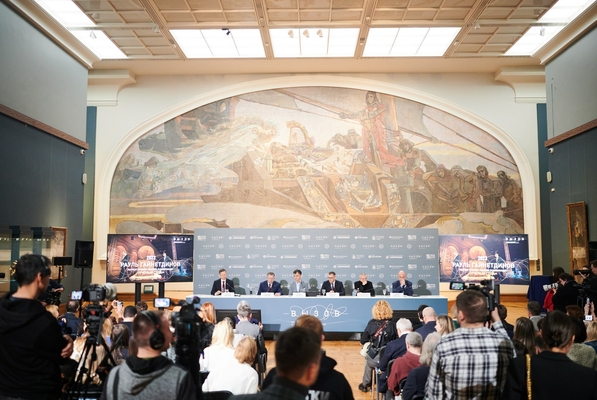
On December 9, the press conference of the VYZOV Prize for Future Technologies took place at the State Tretyakov Gallery to announce laureates of the 2024 Prize. The Laureate in the "Future" category is Leonid Fershtat, Doctor of Chemical Sciences, Head of the Nitrogen Compound Laboratory at Zelinsky Institute of Organic Chemistry of the Russian Academy of Sciences, Professor of Joint Department of Organic Chemistry of Higher School of Economics with Zelinsky Institute of Organic Chemistry. He receives the award for advanced research in the field of creation of multipurpose organic functional materials based on high-nitrogen molecular architectures.The Laureate in the "Engineering Solution" category is Sergey Taskaev, Doctor of Physical and Mathematical Sciences, head of the Boron Neutron Capture Therapy Laboratory at Novosibirsk State University, Principal Researcher at the Budker Institute of Nuclear Physics of the Siberian Branch of the Russian Academy of Sciences, President of the FORA Foundation for the Development of Neutron Capture Therapy. He won the VYZOV Prize for the development of a compact accelerator neutron source suitable for a wide range of research applications, including neutron capture therapy.The Laureate in the "Breakthrough" category is Evgeny Antipov, Doctor of Chemical Sciences; Head of the Department of Electrochemistry, Faculty of Chemistry, Moscow State University; Professor at the Skolkovo Institute of Science and Technology' Corresponding Member of the Russian Academy of Sciences. Co-Laureate: Artem Abakumov, Candidate of Chemical Sciences, Director of the Center for Energy Science and Technology at the Skolkovo Institute of Science and Technology (Skoltech), Full Professor at Skoltech. They share the award for the creation of fundamental and practical basis for the development and production of electrode materials for new generation metal-ion batteries.The Laureate in the international "Discovery" category is Nikos Logothetis, Ph.D. in Human Neurobiology, Director of International Center for Primate Brain Research (ICPBR), Emeritus Director of the Max Plank Institute for Biological Cybernetics. He won the Prize for the fundamental contribution to the development of functional magnetic resonance imaging and its implementation in everyday scientific and clinical practice for studying human brain activityThe Laureate in the "Scientist of the Year" category is Valery Tuchin, Doctor of Physical and Mathematical Sciences, Head of the Laboratory for Laser Diagnostics of Technical and Living Systems at the Institute of Precision Mechanics and Control of the Russian Academy of Sciences, Head of the Department of Optics and Biophotonics of the Saratov State University, Corresponding Member of the Russian Academy of Sciences. He is awarded for outstanding contributions to the field of life sciences, as well as to the new interdisciplinary field of knowledge and technology – biophotonics.Dmitry Chernyshenko, Deputy Prime Minister of the Russian Federation, member of the Supervisory Board of the Vyzov Foundation, commented on the results of the application campaign:"Technological leadership is one the national goals set by President Vladimir Putin. Our talented inventors help create our own breakthrough technologies. The VYZOV Prize recognizes and supports scientific research and projects. Scientists now have tremendous prospects and opportunities. By 2030, spending on Russian science is expected to reach 2% of GDP, including private funds. The involvement of business community in science is crucial, and the Vyzov Foundation together with the award of the same name are a vivid example of such synergy," said the Deputy Prime Minister.Leonid Shlyakhover, President of the Vyzov Foundation for the Development of Scientific and Cultural Relations, emphasized that the VYZOV Prize has reached new heights with the introduction of the new international category:"Now there is a great global demand for an unprejudiced, independent, and politically unbiased scientific award. This is why we decided to establish an international "Discovery" category this year. We welcome scholars from all over the world, regardless of their views, citizenship, or nationality. We have received 594 applications, including 112 from 33 foreign countries, including India, China, the USA, France, Italy, Germany, Israel, Australia, and dozens of other countries. This is a vote of confidence in our Prize."Artem Oganov, Chairman of the VYZOV Prize Scientific Committee, Full Professor at Skoltech, Professor of the Russian Academy of Sciences, Member of Academia Europaea, noted the exceptional level of applications filed this year and spoke on the importance of research and projects carried out by the laureates:"I think that you would agree with me when I say that the people I have mentioned today are truly remarkable scientists who are laying the groundwork for the future of human civilization. As we selected the winners and got to know them better, we at the Scientific Committee of the VYZOV Prize fell in love with them. I hope that you will share this feeling as well," said Artem Oganov after having announced the laureates of the 2024 VYZOV Prize.Science and technology need business community and government to work together in order to advance forward. Dmitry Zauers, Deputy Chairman of the Management Board of Gazprombank, Board Member of the Vyzov Foundation, reflected on the benefits of such cooperation both for the businesses and for the entire country:"Apart from the VYZOV Prize, the Foundation organizes numerous events that promote science by engaging researchers in practice-oriented projects. It creates an expert community of scientists who can provide high-quality expertise to businesses. The projects carried out by the Vyzov Foundation are part of a vast ecosystem that benefits both Gazprombank and the entire country, helping accelerate Russia's technological leadership."Andrey Timonov, Head of Communications Department at Rosatom State Corporation, shared his thoughts on daring projects in the nuclear industry that will shape the future of humanity. He also noted that the VYZOV Prize enhances the public image of scientists and inspires the younger generation to think in broader and bolder terms:"People now have forgotten how to dream big, so we need role models who would epitomize success. It is crucial to demonstrate that science, a sphere that is anything but simple, can produce superheroes. One such example is Ilya Semerikov, creator of Russia's most powerful trapped-ion quantum computer and the winner of the 2023 VYZOV Prize. He and other scientists are on a vital mission to inspire and motivate others to dream big."Konstantin Bogomolov, Art Director of the Bronnaya Theater and Melnikov Stage Theatre, and Director of the VYZOV Prize Awards Ceremony, intrigued the audience with the promise of surprises during the ceremony:"For the second year in the row, the VYZOV Prize Awards Ceremony will be a grand event: the venue is massive, with huge screens and an unusual seating arrangement. The laureates will walk on stage in a way that will surprise you. We will not have a stage in a traditional sense: there will be multiple stages and not a single stage at the same time. The entire event will be highly immersive, with wonderful artists performing before the presentation of a winner in each category. This will be a performance, a celebration to remember."During the press conference, an art premiere took place. Pyotr Baranov, renowned sculptor, artist, and art critic, unveiled to the public his latest creation, a statuette that will be awarded to the laureate of the VYZOV Prize in the new international "Discovery" category.Journalists and guests of the press conference had the opportunity to take an exclusive guided tour organized by the Vyzov Foundation and the Tretyakov Gallery. During the tour, the participants saw firsthand how science and art can benefit from each other, providing new prospects for creativity and scientific exploration.The VYZOV Prize is given out for science-intensive projects that that can be implemented within up to ten years to significantly improve people's lives. The Prize is awarded in five categories: "Future", "Engineering Solution", "Breakthrough", "Discovery", and "Scientist of the Year".The VYZOV National Prize for Future Technologies is founded and organized by the Vyzov Foundation for the Development of Scientific and Cultural Relations. Co-Founder of the VYZOV Prize is Gazprombank. Prize partners are Rosatom State Corporation, Roscongress Foundation and the Government of Moscow.
10 December 2024
The names of the laureates in five categories, including the International Discovery category, will be announced at the Awarding ceremony, which will be held on December 19, 2024, at the Moscow Manege. As Artem Oganov, chairman of the VYZOV Prize Scientific Committee noted, the choice was made in September."This year, the work of the scientific committee was particularly intensive. 594 applications have been received, among them there are applications of a very high level. Back at the end of May, we conducted a very careful screening, then throughout the summer these applications were examined in the most detailed way by the scientific committee with the broad involvement of external experts. At the beginning of September, we decided on the list of laureates. I suggest everyone be patient. The names of the laureates will be announced at the ceremony. I assure you that it will be unforgettable, and the names of scientists and their work will make a great impression on everyone," said Artem Oganov, Chairman of the VYZOV Prize Scientific Committee. We present to your attention a video with the participation of members of the VYZOV Prize scientific committee, who talk about the level of applications and high competition among the nominees.The VYZOV Prize is awarded for science-intensive projects that have significant potential to change people's lives for the better and have a practical implementation horizon of up to 10 years. Founder of the VYZOV Prize for Future Technologies is the Vyzov Foundation for the Development of Scientific and Cultural Relations with Gazprombank. The partners of the Prize are Rosatom State Corporation, the Roscongress Foundation, with the support of the Moscow Government.
09 October 2024
The ranking was compiled by Stanford University in partnership with the Elsevier scientific publishing house based on data on the number of publications by scientists and their citations. According to the results of 2023, eight members of the VYZOV Prize for Future Technologies scientific committee entered the top of the most cited scientists: Artem Oganov, Valentin Ananikov, Yuri Oganessian, Raul Gainetdinov, Evgeny Burnaev, Vsevolod Belousov, Aleksey Fedorov, Andrei Shevelkov. This is the seventh edition of the rating, it was first published in 2019. The members of the VYZOV Prize scientific committee talked about what it means for them to be included in this rating.Artem Oganov, Chairman of the VYZOV Prize Scientific Committee: "I think that inclusion in this rating tells the researcher that he is working in the right direction and that his work is visible and needed by a significant part of the scientific community. I joined this list as soon as it appeared in 2019, and every year my position in the ranking is getting higher. According to the results of 2023, I am one of the ten most cited scientists in Russia and one of the hundred best scientists in the world in the field of "Applied Physics" out of more than 300 thousand scientists in this field. It is surprising that Russian scientists were not excluded from such ratings, given the current trend towards the abolition of all Russian."Aleksey Fedorov, Deputy Chairman of the VYZOV Prize Scientific Committee: "Citation is one of the indicators of the demand for scientific works, therefore it is very honorable to be on this list. I joined it for the first time, and my more mature colleagues from the scientific committee have been there for many years. For young scientists, inclusion in such a rating indicates recognition by the scientific community and is a serious motivation for further research."Valentin Ananikov, Member of the VYZOV Prize Scientific Committee: "Ratings based on publication and bibliometric data are useful, they are based on understandable numerical criteria and reflect the dynamics in scientific research well. But I note that they need to be treated wisely and not considered the only indicator of the success or quality of a scientist's work. The fact that a large number of Russian scientists are present in this ranking demonstrates both that the research of our compatriots is highly appreciated by the scientific community, and that scientific cooperation can go beyond political differences, since it is based on common goals — the development of knowledge, innovation and solving global problems."Raul Gainetdinov, Member of the VYZOV Prize Scientific Committee: "Of course, it is pleasant when your name turns out to be next to the names of outstanding scientists around the world, but I treat the ratings very calmly, because in my opinion, there is some subjectivity in them. So, one of my teachers, Marc Caron, an American scientist of Canadian origin, has never been included in any ratings. At the same time, he was one of the world's recognized leaders in the field of dopamine research. But the fact that hundreds of Russians are included in the list of the most cited scientists according to Stanford University suggests that science is inherently international and it develops only when scientists from different countries interact with each other, exchange knowledge, experience and expertise."
08 October 2024
Rosatom State Corporation hosted the "Quantum Supremacy: A Solitary Quest or BRICS Teamwork" session in Innopolis (Republic of Tatarstan, Russia). It discussed the issues of training skilled workers in quantum technologies and related fields, as well as the creation of an international scientific center – the University of Future Technologies. The University will capitalize on projects executed by Rosatom and the Russian Quantum Center within the framework of the implementation of the roadmap on quantum technologies. "The BRICS countries face the task of strengthening their national technological sovereignty. In order to address this global challenge of our time, countries must unite — tackling it alone will not be easy. We hope that the University of Future Technologies will become a platform for the development of scientific and technical dialogue between interested countries and will allow talents from all over the world to cooperate and thus realize their potential for the prosperity of all countries. Rosatom has extensive background in shaping new scientific and technological fields, and my colleagues and I will continue this work within the framework of the University of Future Technologies," said Ekaterina Solntseva, Board Member of the Vyzov Foundation, Chief Digital Officer at Rosatom State Corporation. Ekaterina Solntseva. Photo: Maxim Blinov / brics-russia2024.ru host photo agencyUmakant Rapol, Professor, Head of the Laboratory of Atomic Physics and Quantum Optics, Indian Institute of Science Education and Research, also believes that cooperation between countries is extremely important for the development of quantum technologies, since this allows combining the knowledge and experience of different research groups for successful practical implementation of projects for the common good. "A single country cannot achieve leadership in the quantum race. The success of quantum science lies in the successful application of laboratory research into a product that will be used universally to improve people's lives and for the common good. This transition largely depends on the engineering integration of many components, including technical support. To achieve all this, we need specialists with different educational, cultural, and geographical backgrounds," said Umakant Rapol. Ilya Semerikov, winner of the VYZOV Prize for Future Technologies for creating a trapped-ion quantum computer, addressed those who have not yet chosen their career path and urged young specialists to be active both in the practical application of their knowledge and in engaging with exeperts in the desired field of work. Ilya Semerikov. Photo: Maxim Blinov / brics-russia2024.ru host photo agency"The sooner you get to actual work and start applying your education, the sooner you'll learn how to do something. Believe it or not, to learn how to ride a bike, you need to ride a bike. To learn how to create things, you need to create things. Start with the basics and first do what you are already good at, then proceed to more complex stuff, and always keep up with the highest level of difficulty that you can manage. And be sure to go and meet different people: go to laboratories, research institutes, universities. You will be surprized, but you will be welcome almost everywhere, people will talk to you, discuss things with you. And if they see your genuine interest, then you might get a job offer," Ilya Semerikov noted.Watch full video of the session at link.
04 October 2024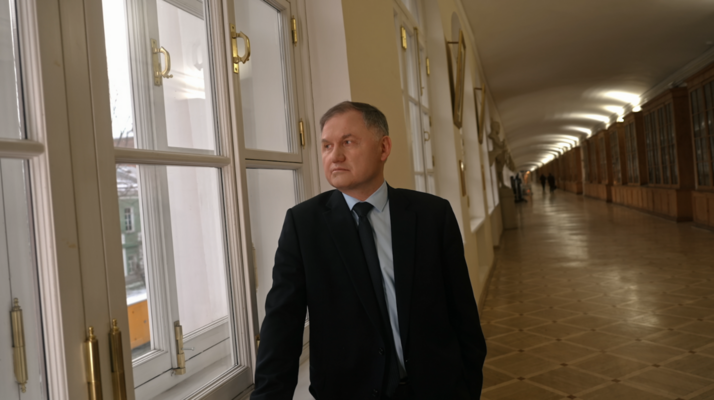
Raul Gainetdinov and his colleagues are studying trace amine-associated receptors. Researchers around the world have focused on the first type of trace amine receptors, TAAR1, believing that the rest are responsible only for instinctive odors, such as the smell of rot. However, Raul Gainetdinov is confident that other human trace amine receptors are undeservedly ignored, and they can open up new opportunities in the treatment of depression, schizophrenia, bipolar and neurodegenerative disorders. "We have revealed the secrets of frankincense and myrrh," noted Raul Gainetdinov, laureate of the VYZOV Prize for Future Technologies, speaking about the impact of different smells on people's emotional state. In 2023, Raul Gainetdinov won the VYZOV Prize in the "Scientist of the Year" category for his discoveries regarding the dopamine system and trace amine-associated receptors, which enabled new approaches to developing pharmaceuticals for treating brain disorders. Watch the recording of Raul Gainetdinov's speech at the plenary session of the St. Petersburg International Health Forum to learn more about the research done by scientists from St. Petersburg. Link to video: Health Forum
03 October 2024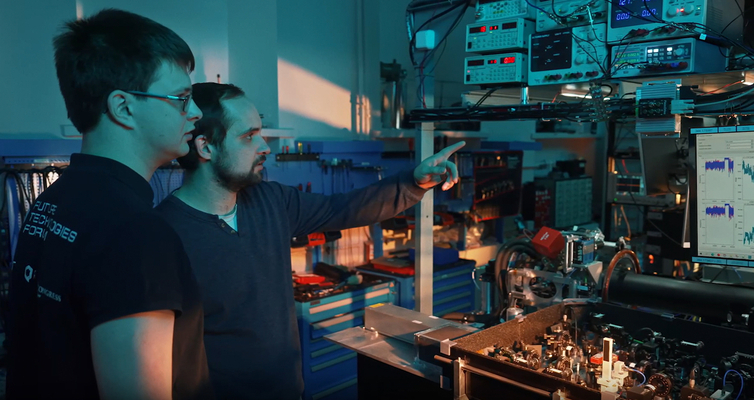
On September 23, Alexey Likhachev, Head of Rosatom State Corporation, announced the completion of a 50-qubit ion-based quantum computer. It was developed in the lab jointly run by the Russian Quantum Center (RQC) and the Lebedev Physical Institute (LPI) as part of the roadmap for the development of quantum computing. Thanks to the coordinated work and professionalism of the scientific groups led by Nikolai Kolachevsky and Ilya Semerikov, they managed to achieve results ahead of schedule. In 2023, Ilya Semerikov received the VYZOV Prize for Future Technologies for the creation of a similar 20-qubit quantum computer. Ilya Semerikov, Photobank of Vyzov Foundation "Over the past year, we have completely redesigned the ultra-stable laser and significantly upgraded both the addressing and reading system, improved the stability of all subsystems, and automated many calibrations. This helped us quickly boost the capacity of our quantum computer and increase the number of qubits. Next, we plan to continue increasing the number of qubits and work on the reliability of two-qubit operations. All this is necessary to run more complex quantum algorithms. Our quantum computer has the potential for modernization," Ilya Semerikov commented. Artem Oganov, Chairman of the VYZOV Prize Scientific Committee, noted that the creation of a quantum computer that would have fundamentally new capabilities compared to a conventional computer is currently one of the greatest technological and scientific goals of humanity. "Last year, we awarded the VYZOV Prize in the Future category to Ilya Semerikov and his colleagues for creating Russia's most powerful quantum computer, which had 20 qubits. The journey from 20 to 50 qubits in just a year is a great achievement. I really hope that the research team that includes Ilya Semerikov will be the first in the world to reach the point where a quantum computer can truly turn the life of mankind around. I think that the activity shown by Ilya Semerikov and his colleagues proves once again that the Scientific Committee has made the right choice and selected the most worthy laureates," Artem Oganov said. The universal ion-based 50-qubit quantum computer is now the most powerful in Russia. According to the Head of Rosatom Alexey Likhachev, the next step is the practical application of quantum computers to improve people's lives and to make qualitative impact on the Russian economy. This is an important milestone in the history of quantum computing, cementing Russia's global leadership in this field. As of 2024, only 6 countries have quantum ion-based computers of 50 qubits or more. Ytterbium ion trap quantum computer. Photo provided by the Russian Quantum Center
25 September 2024
The Moscow Drama Theater on Malaya Bronnaya Street (Bronnaya Theater) hosted the presentation of "Voices of the Future", a project executed by the Vyzov Foundation for the Development of Scientific and Cultural Relations in collaboration with Konstantin Bogomolov. "Voices of the Future" is a series of performances about outstanding scientists whose research is changing the course of history. The project aims to demonstrate that scientists are the real celebrities and heroes of our time, and to draw public attention to their work and achievements. What makes the "Voices of the Future" project unique and special is that, along with recognized scientists of the 20th century, it will focus on our contemporaries who are making discoveries that can change our lives in the next 5-10 years. During the presentation, parallels were drawn between the great scientific projects of the past and the present. Igor Mirkurbanov, Merited Artist of the Russian Federation, performed fragments from a speech of academician Igor Kurchatov while the audience was shown unique archival photographs and video footage and learned about the contribution of the Soviet scientist to the development of nuclear industry. Konstantin Bogomolov, Art Director of the Bronnaya Theater, delivered a speech about the development of quantum technologies and shared his personal impressions of communicating with scientists who are engaged in the Russian quantum project. These scientists include Ilya Semerikov, creator of Russia's most powerful trapped-ion quantum computer, laureate of the VYZOV Prize for Future Technologies. The 32-year old researcher will become one of the protagonists of the theatrical project "Voices of the Future". Konstantin Bogomolov, Art Director of the Bronnaya Theater: "These performances will be entertaining and fascinating as well as educational. Our task is not to act as nerds or read some boring lectures, but to create an exciting show for all with the help of wonderful actors ." Leonid Shlyakhover, President of the Vyzov Foundation for the Development of Scientific and Cultural Relations: "We at the Vyzov Foundation have come up with a whole new Science&Art format to talk about science is a simple and engaging way, involving outstanding artists in our projects: musicians, actors, directors. I am sure that the Voices of the Future project will appeal to the general public, and will also help spread the word about the achievements of Russian scientists. We will continue to develop this format and are already planning, for example, a symphonic project at the intersection of science and art." Ilya Semerikov, physicist, creator of a trapped-ion quantum computer, laureate of the Vyzov Prize for Future Technologies: "I am glad to see projects that bring scientists out of the shadow of laboratories onto the big stage, so to speak. I hope that this will attract even more young and talented people to science. Science and art, in my opinion, are interconnected. Actors make discoveries on stage, we make discoveries in our labs. It seems to me science requires no less creativity than theater." The mission of the Foundation is to make science a popular and desirable occupation in Russia, to create new perception of science and technologies as topmost values for the society. The co-founder of the Vyzov Foundation is Gazprombank. The partners are Rosatom State Corporation and Roscongress Foundation with the support of the Moscow Government. Ruslan Yunusov, Co-Founder of the Russian Quantum Center, Chairman of the Board of the Vyzov Foundation: "The Voices of the Future project tells about scientists, their work, life, feelings and emotional experiences. We want people to know more about those who shape the future of our country." Dmitry Zauers, Deputy Chairman of the Management Board of Gazprombank, Member of the Board of the Vyzov Foundation: "Our bank has been actively supporting innovation and paying special attention to the technological agenda for the past two decades. We are well aware that outstanding personalities play a very important role in the development of science and technologies. The Voices of the Future project focuses on such people. It shows that scientists are role models, the heroes of our time. And this is incredibly valuable and important." Ekaterina Solntseva, Chief Digital Officer at Rosatom State Corporation, Member of the Board of the Vyzov Foundation: "Today, the Russian science experiences the influx of unique young talents who take on challenges that open up new prospects for our country and all of humanity. However, few people outside the scientific community are aware of this. Art can become a kind of mediator between the reality of scientific research and the general public if it finds the right tone for a modern and intelligent conversation about the tasks, problems, and psychology of science. The ideas of the "quantum future" can inspire artists just like the idea of thermonuclear fusion inspired people in the 20th century. Scientific research can become a rich and relevant source for theater, cinema, and contemporary art. I would like to think that young artists will find inspiration in it." The evening continued with the discussion of projects at the intersection of science and art held in the form of a theatre lounge. The event was hosted by Sofiko Shevardnadze and featured Tatyana Chernigovskaya, Professor, Doctor of Biological and Philological Sciences; Mikhail Shvydkoy, Special Representative of the President of the Russian Federation for International Cultural Cooperation; as well as Ilya Semerikov, one of the protagonists of the Voices of the Future project. The guests exchanged views on similarities between science and art and their role in the development of society, and discussed whether art can bring science into public spotlight through projects such as Voices of the Future. They also talked about artificial intelligence, professional fulfillment, and the importance of an open dialogue between scientists and artists. Tatyana Chernigovskaya, Professor, Doctor of Biological and Philological Sciences, A cademician of the Russian Academy of Education: "As a scientist, I am sure that art is more difficult than science, because science is calculable, it has an algorithm, and we know how to deal with it. It is impossible to merge these two areas, but it is important that they become saturated with each other. Because art is another way of communicating with the world, different from science." Mikhail Shvydkoy, Special Representative of the President of the Russian Federation for International Cultural Cooperation: "Such meetings and events help us better understand ourselves. There is just so much uncertainty in today's world and people want something to rely on. We can rely only on genuine knowledge, because we often pay too high a price for not knowing or understanding the world we live in." Source of all photos: photobank of the Vyzov Foundation
20 September 2024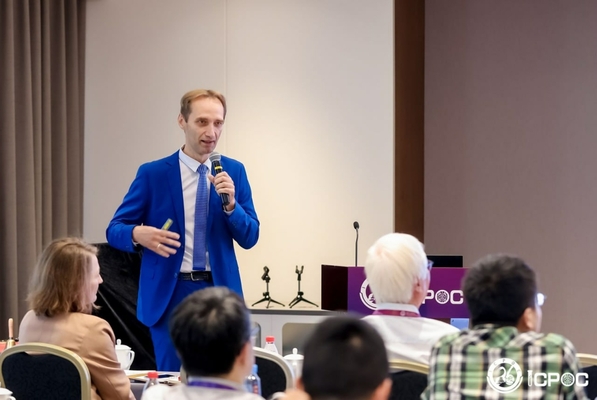
In August, Beijing hosted the 26th International Conference on Physical Organic Chemistry (ICPOC). Pivotal report at the event was delivered by Valentine Ananikov, Academician of the Russian Academy of Sciences, Head of Laboratory of Metal-Complex and Nanoscale Catalysts at Zelinsky Institute of Organic Chemistry, and Member of Scientific Committee of the VYZOV Prize. The report was dedicated to the use of artificial intelligence in the development of new catalysts. Valentine Ananikov pointed out that AI also opens up new opportunities for scientists: it helps accelerate research, analyze huge amounts of data, and predict the behavior of complex chemical systems. "This technology can radically change the approach to chemical research, increasing the accuracy and reducing the costs of developing innovative solutions. The practitioners in modern science are actively discussing whether artificial intelligence can replace chemists," added the scholar. You can find further details about the topic at the official website of the Institute of Organic Chemistry of the Russian Academy of Sciences. Photo: ICPOC Mr. Ananikov also mentioned the ongoing discussions regarding the need to provide prompt responses to advanced challenges in science. "Given the rapid growth of new academic fields, significant challenges arise due to the insufficient rate of evaluation and recognition of research by the international academic community," he said. "The major challenge is the need to quickly identify and incentivize promising scientific works so that they could receive the support that ensures faster development." The establishment of new prizes and awards is a critical tool for addressing this challenge. Valentine Ananikov believes that this helps attract the attention of a wide range of scientists and investors to the research as well as emphasize its importance. "Awards inspire scientists to new achievements, motivating them to carry out ambitious projects that can lead to breakthrough discoveries," said Mr. Ananikov. It is equally important that the awards bolster international cooperation, bring together scientists from different countries, and foster the exchange of knowledge and best practices. This benefits the development of science in general and accelerates the practical implementation of advanced technologies. Photo: ICPOC "Discussions held at the international forum served as another reminder that the activities of the Vyzov Foundation are welcome throughout the world. I would like to wish the Foundation continued success, especially in developing the international category," concluded Valentine Ananikov. The 26th International Conference on Physical Organic Chemistry was organized by the Tsinghua University. This event invited the attention of leading researches from various countries and was attended by more than 700 scientists and students. The conference was endorsed by the International Union of Pure and Applied Chemistry (IUPAC), an international organization in the field of chemistry that sets the standards and promotes chemistry on the international stage.
30 August 2024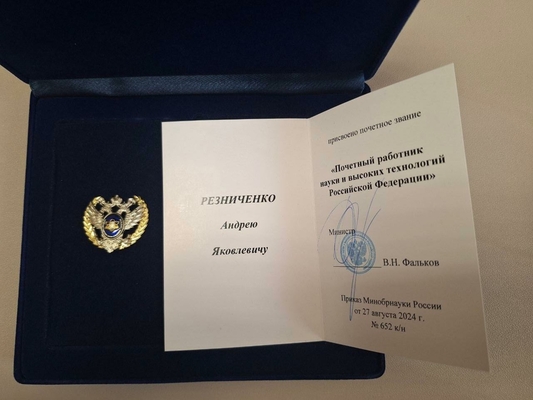
Andrey Reznichenko, Member of the Scientific Committee of the VYZOV Prize, Head of Science Desk at TASS News Agency, received the title "Honorary Worker of Science and Advanced Technologies of the Russian Federation". The decree on awarding the title was signed by Valery Falkov, Minister of Science and Higher Education of the Russian Federation, on August 27, 2024. "I have been popularizing science through the media, and giving lectures and seminars for more than two decades. I am very pleased that my humble efforts have been recognized," said Andrey Reznichenko. He also spoke about his work at the Scientific Committee of the VYZOV Prize: "It brings together outstanding specialists. It is a great honor to work with them. And my task is to tell the public about scientific achievements."
29 August 2024
Not in a single country can science evolve in isolation from the rest of the world, believes Elena Eremenko, Vice President of Vyzov Foundation. Read the full text of her op-ed published in Izvestia newspaper. Science should stay out of politics. However, we don’t live in a perfect world, and, regrettably, political tensions between states affect those engaged in science. Some researchers in the West have put cooperation with Russian labs on hold out of concern for negative consequences. Existing collaborations crumble, Russian specialists face limited access to research infrastructure. Another problem is ensuring supplies of consumables required for conducting research. This list could go on and on. That said, we all know perfectly well that not in a single country can science evolve in isolation from the rest of the world. Therefore, people who pursue science now have to take on the role of diplomats. Speaking of science diplomacy, we can generally distinguish three main vectors: science for diplomacy, diplomacy for science, and science in diplomacy. Looking at the past few years, it becomes clear that all three of these areas have been exposed to geopolitical turmoil and have shown varying degrees of resilience. Academic communities that had previously acted almost exlusively as "bridge-builders" for the extensive international dialogue have become fragmented. For instance, certain professional scientific associations primarily in the West (such as the European Physical Society) have suspended membership of Russian research organizations. At the same time, other academic associations, mostly informal ones, have articulated their commitment to international dialogue outside politics. A good example of the latter is the Science4Peace Forum initiative. The "geopolitical earthquake" did happen, but it caused less damage than it could have. What platforms and tools of science diplomacy have shown resilience? International intergovernmental organizations have largely stood up to the challenge. A great example is the Joint Institute for Nuclear Research: the organization established by 11 founding states in 1956, registered with the United Nations. It brings together researchers from three dozen countries, including EU states. Naturally, the reason why such format has shown resilience lies not only in its international legal form, but also stems from clear commitment to depoliticized, purely academic dialogue. This is the most solid foundation that allows scientists to do their job efficiently. We also need to mention a more recent example of such format, the unique initiative to build the SESAME synchrotron in the Middle East. Scientists from Egypt, Jordan, Iran, Pakistan, Turkey, Cyprus, Israel, and Palestine are working together on this facility. It is a striking example of the power of science diplomacy, when even belligerent states join their efforts in the name of science. This approach is obviously welcome, and we see similar initiatives in the Global South, including the Latin American and Caribbean Space Agency (also known as ALCE) and the first Pan-African synchrotron (African Light Source) that is currently under construction. When it comes to the "diplomacy for science" track, we are witnessing a distressing scene. Western foreign services, implementing foreign policy of their respective states, have cut off official channels used for interaction with Russian scientific organizations. This could hardly contribute to the development of scientific dialogue, although at the personal level, communication channels have been partially preserved. In general, it seems that science is becoming hostage to sanctions policy. Breaking down the situation with the third vector of science diplomacy that implies the use of academic expertise in diplomacy, we need to acknowledge the European trend to integrate established expert platforms in the field of science diplomacy into the EU bureaucracy. Meanwhile, there seem to exist innovative approaches to expertise based on the use of new technological solutions, a kind of "radar" tracking development in key areas including science diplomacy. For instance, Switzerland has GESDA, a standalone organization that deals exclusively with science diplomacy. It was established in 2019 in the wake of increased concerns regarding the drastic acceleration of scientific progress and heightened geopolitical tensions. Given all the challenges that science diplomacy is currently facing, it is extremely important to ensure the preservation of dialogue. In order to achieve this, the Vyzov Foundation for the Development of Scientific and Cultural Relations has been creating platforms for informal communication between scientists, expert community, representatives of government and businesses from different countries. This is a kind of all-encompassing track, "science along with diplomacy". Key factors for science diplomacy are commitment to science, maintaining dialogue, and building trust. All these three "ingredients" can be found in the title of our flagship SCIENCE. DIALOGUE. TRUST format. It is an informal platform for discussions featuring lectures, panel discussions, and real-life communication between leading theorists and practitioners of science diplomacy. The event was attended by representatives of more than 25 countries, which is a good sign. Together, we are looking for an answer to the question of what can and should be done in terms of science diplomacy to shape our common scientific future for the benefit of harmonious and sustainable development. At the same time, it is important to consolidate the expert community — for this purpose, we launched a series of seminars on science diplomacy and have already held several sessions. Needless to say, we need to move forward with professionalization of science diplomacy that caters to the needs of society. Another efficient tool of science diplomacy is the VYZOV Prize for Future Technologies. This year, it has pushed on to the new level thanks to the establishment of an international category. Almost 600 scientists from 34 countries have submitted their applications for the award. This is a vote of confidence in the VYZOV Prize, its scientific committee, and our country. Russia lays the groundwork for the development of science, and this entices researchers from all over the world. Science diplomacy is making the first steps in its long journey. The world has yet to recognize its significance and importance, but in the meantime, the international community needs to make every effort to ensure that negative trends towards fragmentation give way to aspirations for dialogue and cooperation.
28 August 2024
Scientists from Skoltech and the University of Wuppertal (Germany), under the scientific guidance of Pavlos Lagoudakis, Vice President for Photonics at Skoltech, laureate of the VYZOV Prize for Future Technologies, have developed an All-optical universal gate based on polaritons. These logic gates are cascadable. It brings scientists closer to the creation of a fully optical computer that operates much faster than electronic analogues. The findings of this research have been published in Nature Communications. The authors of the work Denis Sannikov (in the left photo) and Anton Putintsev (in the lower right photo on the left) in the Laboratory of Hybrid Photonics of the Center for Photonics and Photonic Technologies of Skoltech. Source: Anton Putintsev.
22 August 2024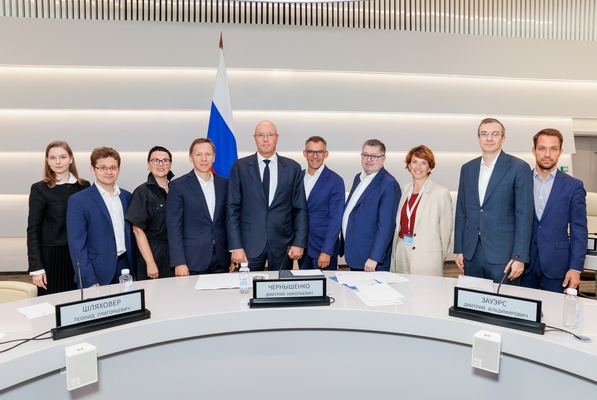
Dmitry Chernyshenko, Deputy Prime Minister of Russia, held a working meeting with representatives of the Vyzov Foundation for the Development of Scientific and Cultural Relations. It was attended by Dmitry Zauers, Board Member of the Vyzov Foundation, Deputy Chairman of the Board of Gazprombank; Ruslan Yunusov, Head of the Board of the Vyzov Foundation, co-founder of the Russian Quantum Center; Ekaterina Solntseva, Chief Digital Officer at State Atomic Energy Corporation ROSATOM; Leonid Shlyakhover, President of the Vyzov Foundation; Gregory Velikikh, Deputy CEO of the Roscongress Foundation; Aleksey Fedorov, a young scientist and Deputy Chairman of the Scientific Committee of the VYZOV Prize; and others. The meeting took place at the Coordination Center of the Government of the Russian Federation in Moscow. The participants discussed various projects run by the Vyzov Foundation for the Development of Scientific and Cultural Relations, including the key project, VYZOV National Prize for Future Technologies, and outlined areas for future cooperation. "President Vladimir Putin has identified "Technological Leadership" among national development goals. In order to achieve it, we need to focus our efforts on training of skilled workers, popularization of science, and raising the profile of science as occupation. The VYZOV National Prize, held with the participation of Rosatom State Corporation and the Russian business community, provide a means to incentivize our researchers and inventors. This year alone, nearly 600 applications from 34 countries have been submitted for the award, which demonstrates Russia's openness to a friendly and productive dialogue with scientists from different countries," emphasized Dmitry Chernyshenko. Photo: Photobank of Vyzov Foundation In 2024, over 84% applications came from Russian scientists representing 58 Russian regions. The international "Discovery" category received 106 high-level applications from countries including China, the USA, Austria, France, Germany, Italy, India, and Israel. "Gazprombank has been supporting technology and science-intensive industries for many years, including early-stage research in areas such as quantum technologies and neobiotechnologies. We are confident that that talents play a key role in the creation and development of such areas, and we need to believe and invest in them if we want to see outstanding results. That is why we have co-founded and sponsor the Vyzov Foundation, an initiative aimed at popularizing science and turning scientists into heroes of our time," said Dmitry Zauers, Deputy Chairman of the Board of Gazprombank. Photo: Photobank of Vyzov Foundation The Foundation carries out projects aimed at the expansion of science diplomacy, holds events featuring international experts, representatives of ministries, diplomatic missions and leading universities, pressing the case that science knows no borders and therefore it is important to develop international relations. "We aim to make scientists and their discoveries a symbol of success in modern-day Russia and take unconventional approach to popularization of science and technology. We organize high-profile events in multimedia formats with the participation of Russian artists and musicians as well as scientists. We create science-related theatrical performances together with Russia's leading directors, thus popularizing science and scientists in our country. The Awards Ceremony of the VYZOV Prize is one of the most exciting events of the year, featuring prominent researchers, statesmen, entrepreneurs, athletes, and acclaimed artists," commented Leonid Shlyakhover, President of the Vyzov Foundation. The participants of the event discussed other projects aimed at developing the ecosystem for future technologies in Russia and key measures to promote it. In particular, they mentioned the Future Technologies Forum, an annual event attended by the President of the Russian Federation that serves as a catalyst for the advancement of science-intensive industries, and the activities of the Russian Quantum Center. Another example of projects enhancing the ecosystem for future technologies in Russia is the LIFT Center for the Development of Neurobiotechnology that brings together Russian neurophysiologists, chemists, materials scientists, physicians and physicists to work on the development of neuro- and other medical technologies. "A crucial goal of all our projects, including the Future Technologies Forum and the Vyzov Foundation, is to create conditions and tools that would allow Russian scientists to return to our country, as well as to bring in foreign specialists willing to advance science and new technologies, thus raising the profile and interest in scientific activities. This, in turn, will contribute to motivating young people to engage in science," said Ruslan Yunusov, Head of the Board of the Vyzov Foundation, co-founder of the Russian Quantum Center. Deputy Prime Minister concluded the meeting by providing recommendations to the Foundation regarding cooperation with Russian universities and implementation of initiatives within the framework of the Decade of Science and Technology. Photo: Photobank of Vyzov Foundation Background: Vyzov Foundation for the Development of Scientific and Cultural Relations is founder and organizer of the VYZOV National Prize for Future Technologies. The establishment of the Prize was announced in July 2023 at the Future Technologies Forum organized by Roscongress Foundation. Following the event, the President of the Russian Federation directed to establish an award for outstanding scientific discoveries and achievements in the field of future technologies (presidential decree PR-1743 dated September 3, 2023). Co-founder of the Vyzov Foundation is Gazprombank. Its partners are Rosatom State Atomiс Energy Corporation and Roscongress Foundation with the support of the Government of Moscow. The Foundation works in three areas: the VYZOV National Prize for Future Technologies, events under "Science+Culture" brand, and international SCIENCE.DIALOGUE.TRUST events. The VYZOV Prize is awarded for science-intensive projects that have significant potential to improve people's lives and can be implemented within ten years. The first Awards Ceremony took place at the Moscow Manege on December 19, 2023, celebrating winners in four categories. This year, the list has been expanded to five categories, and the number of applications for the award has more than doubled, to 594 from 218. Winners of the second season of the VYZOV Prize will be announced on December 19. The 2024 prize fund is 55 million rubles. Winners in "Future", "Engineering Solution", "Breakthrough", "Scientist of the Year" categories, and in the international "Discovery" nomination will each receive 11 million rubles.
20 August 2024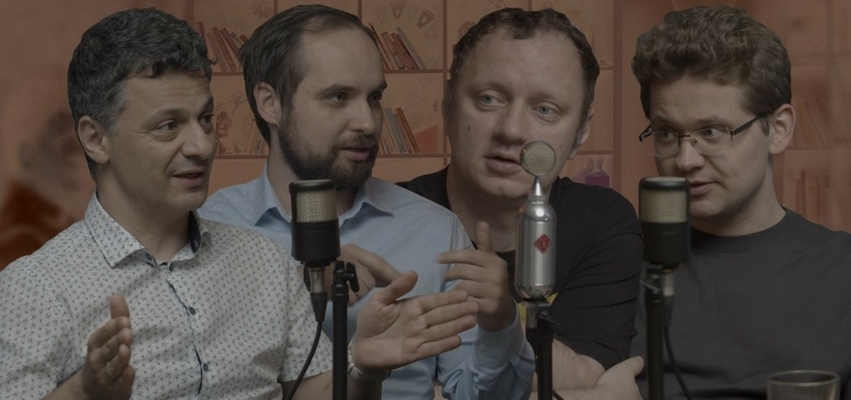
Even people who are not directly involved in science have heard of Nature and Science journals. Why are such multidisciplinary journals popular, how can you get published in them, and how can just one article jumpstart a scientific career? These issues were discussed by the guests of N + 1 podcast held with the support of the VYZOV National Prize in Future Technologies within the framework of "This Is For The Future" project. Guests of the podcast: – Artem Oganov, Chairman of the Prize Scientific Committee, Professor of the Russian Academy of Sciences, Doctor of Physical and Mathematical Sciences; – Aleskey Fedorov, Deputy Chairman of the Prize Scientific Committee, Head of Quantum Information Technologies research team at the Russian Quantum Center; – Andrei Konyaev, mathematician, N + 1 publisher, member the Prize Scientific Committee; – Ilya Semerikov, Candidate of Physical and Mathematical Sciences, head of the Scalable Ion Quantum Computing research team at the Russian Quantum Center, researcher at the Lebedev Physical Institute of the Russian Academy of Sciences, 2023 VYZOV Prize winner. Watch the podcast:
16 August 2024
On December 19, 2024, the names of the best engineers, inventors and scientists whose developments have significant potential to change people's lives for the better will be announced at the VYZOV Prize for Future Technologies Award ceremony in Moscow. This is the second season of the VYZOV Prize, which is held with the support of the Moscow Government. This year, the Prize fund was increased to 55 million rubles. Watch the video by Moscow 24, when the laureates of the first prize talked about what our future might look like in the next 5-10 years, and the organizers talked about the most popular areas of this year's bid campaign. Watch the video to learn more.
14 August 2024
The fourth lecture of the joint educational project of the Vyzov Foundation for the Development of Scientific and Cultural Relations, Kurilka Gutenberga, N+1 and NUST MISIS took place. The lecture was dedicated to the prospects of using high-temperature superconductors in magnetic systems of charged particle accelerators. Speaker: Mikhail Novikov, head of high-temperature superconducting magnets sector at the Scientific Experimental Department of Superconducting Magnets and Technologies of the Accelerator Department at JINR Laboratory of High Energy Physics. He is co-author of the technology that received the VYZOV National Prize for Future Technologies in "Engineering Solution" category in 2023. The audience explored the history of using superconducting magnetic systems on accelerators at JINR, and learned about projects and developments, production and testing equipment for manufacturing HTS magnets. Enjoy the video:
09 August 2024
The third lecture of the joint educational project of Vyzov Foundation, the Gutenberg Lecture Hall, N + 1 and MISIS University took place. The lecture titled "How Neurotechnologies Are Changing Medicine" was held by Vsevolod Belousov, member of the VYZOV Prize Scientific Committee, Professor at the Russian Academy of Sciences, and Corresponding Member of the Russian Academy of Sciences. He is also the Director of the Federal Center of Brain Research and Neurotechnologies. Neurotechnology is a term that encompasses a set of approaches that allow reading information from the nervous system or influencing its functioning. Neuralink, Elon Musk's brain implant that received extensive media coverage, is one of many examples of neurotechnology applications in medicine. During the lecture, synthetic and cellular neurotechnologies, neuroprosthetics, and other methods for "fixing brain malfunctions" were discussed. The lecture was recorded and can be accessed via link below.
26 July 2024
Presentation regulations for the VYZOV Prize for Future Technologies have been updated in accordance with a document signed by Sergei Sobyanin, the Mayor of Moscow. The information about these updates was published on the website of the Mayor and Government of Moscow on July 24, 2024. In the new version, the Prize fund has been increased – it will now amount to 55 million rubles, 11 million rubles to each laureate in each category.The VYZOV Prize for Future Technologies was established and organized by the Vyzov Foundation for the Development of Scientific and Cultural Relations in collaboration with Gazprombank. Partners of the Prize are Rosatom and Roscongress Foundation, with support from the Moscow government. The VYZOV Prize is timed to coincide with the Decade of Science and Technology, announced in 2022, and is designed to recognize breakthrough ideas and innovations that are transforming modern science and everyday life.
24 July 2024
The Vyzov Foundation took part in the discussion "Scientific Awards: Encouraging the Best and Drawing Attention to Scientific Achievements" of the XII All-Russian Congress of Councils of Young Scientists and Student Scientific Societies, moderated by Aleksey Fedorov, Deputy Chairman of the VYZOV Prize Scientific Committee.According to the participants of the discussion, scientific awards play an important role in supporting scientists. They encourage their bright ideas and motivate them for further development. These guidelines are followed by the VYZOV Prize, which was first held in December 2023."The VYZOV Prize unites the best minds to create the future today. This year, for the first time, the prize has an international category and its success is encouraging, applications have come from all continents. Scientific achievements do not and cannot have boundaries. International scientific dialogue can and should become a space of trust. The Vyzov Foundation will continue to set ambitious goals for itself," said Elena Eremenko, Vice President of the Vyzov Foundation. "For me, taking part in the work of the Scientific Committee of the VYZOV Prize is an important experience, before that I myself was a participant in various awards and competitions for engineers. This year we received a large number of strong and interesting works – 138 applications were submitted for the Engineering Solution category. In total, we received 594 applications. The Scientific Committee faces a difficult task. We invite researchers and engineers to apply for the VYZOV Prize next year," commented Olga Tarasova, a member of the VYZOV Prize Scientific Committee.
16 July 2024
The second lecture of the joint educational project of The VYZOV Foundation, Kurilka Gutenberga, N+1 and NUST MISIS took place. It was conducted by Aleksey Fedorov, Head of the Quantum Information Technologies research group at the Russian Quantum Center, Head of the Quantum Information Technologies Laboratory at the National University of Science and Technology MISIS, the youngest professor at the Moscow Institute of Physics and Technology and Deputy Chairman of the VYZOV Prize Scientific Committee. Aleksey spoke about quantum computing and its potential to revolutionize the technological landscape. He explained the basics of quantum computers and provided examples of how they are being used in Russia and other countries.
12 July 2024
The first lecture of the joint educational project of The VYZOV Foundation, Kurilka Gutenberga, N+1 and NUST MISIS took place. Ilya Semerikov, candidate of sciences in physics and mathematics, laureate of the VYZOV Prize, researcher at the Lebedev Physical Institute of the Russian Academy of Sciences gave the lecture «Quantum technologies for people». He spoke about the latest achievements in the field of quantum technologies and their potential impact on the development of society. He also talked about key areas of development of quantum technologies, such as quantum communications, quantum sensors and quantum computing. The lecture aroused great interest. The auditorium was full, and after the performance Ilya was for a long time. And there were many question after the performance.
02 July 2024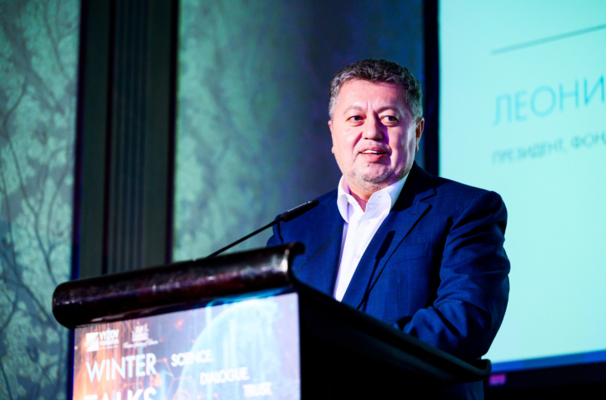
The Vyzov Foundation for the Development of Scientific and Cultural Relations was established on June 28, 2023. Despite its short history spanning just one year, the foundation has already made a significant contribution to popularization of science and demonstrating that scientists are the heroes of our time who deserve recognition and support. On December 19, 2023, the first awards ceremony for the VYZOV National Prize for Future Technologies was held, turning into a true scientific "Oscar." Film and theater celebrities, well-known politicians and athletes, representatives of the government and business community gathered at the Moscow Manege to honor outstanding researchers who won the award: Raul Gainetdinov, Pavlos Lagoudakis, Ilya Semerikov, and Hamlet Khodzhibagiyan. Their inventions will improve the lives of millions of people in the near future. There is an increasing interest in the VYZOV Prize. This year, the number of applications more than doubled, reaching 594 vs 218 last year. The award now has a new international category, Discovery, and the geography has expanded to include 34 countries. The Vyzov Foundation focuses on fostering international scientific relations. We have created a special event format called "SCIENCE. DIALOGUE. TRUST." which brings together Russian and foreign experts. In October 2023, the first scientific breakfast took place, and in February 2024, the inaugural Winter Talks were held featuring representatives from 25 countries who gathered to discuss the prospects for international cooperation and the issues of science diplomacy. In February 2024, Leonid Shlyakhover, President of the Vyzov Foundation, participated in the discussion "Place of Popular Science in Science: How to Attract and Promote?" during the Future Technologies Forum dedicated to cutting-edge scientific solutions. Mr. Shlyakhover noted that despite the importance of scientists' work, they often remain unknown to a wide audience. The Foundation's goal is to raise the visibility and prestige of science as an occupation. Discussing science-related issues can be complicated. In order to make such discussion more accessible and engaging, the Vyzov Foundation is implementing projects at the intersection of science and culture. In March 2024, the наукаплюскультура.рф platform was launched. Multimedia project "Physicists and Lyricists" was presented at the World Youth Festival in Sochi. The project features scientists and artists who have been awarded prestigious Russian prizes. In June 2024, the Foundation took part in the discussion "New Horizons for Science Diplomacy in Times of Uncertainty: What Can Be Done Today?" held at the St. Petersburg International Economic Forum. The Vyzov Foundation lives up to its name that translates as "challenge", as it is not afraid of challenges and sets ambitious goals. Leonid Shlyakhover, President of the Foundation, summed up the results of the first year of work: "It was a very eventful year. We held the first season of the VYZOV Prize that was a success. During the second year, we received almost three times as many applications, which is a vote of confidence in the award and the Foundation. We launched the international "SCIENCE. DIALOGUE. TRUST" format that gathered representatives from 25 countries. Another format that we are introducing is SCIENCE+CULTURE. Its goal is to make a complex conversation about science more accessible and engaging with the help of artists. I think that the next year will be even more exciting for the Vyzov Foundation."
28 June 2024
On June 19 and 20, meetings of the VYZOV Prize Scientific Committee were held, at which applications submitted in 2024 were considered. According to the results of the first of them, a high level of applications were noted. "This year, the selection of laureates will be very difficult. But it is a very exciting task to identify whose contribution to science and to the creation of the future is more significant. We have received applications from truly great scientists. I suggest that everyone be patient and wait for the announcement of the laureates of the VYZOV Prize," commented Artem Oganov, Chairman of the VYZOV Prize Scientific committee. Recall that the distribution in the categories as follows: "Breakthrough" – 146 applications, "Engineering solution" – 138, "Future" – 124, Discovery ("Discovery") – 106, "Scientist of the Year" – 80. The Award Ceremony will be held on December 19, 2024 at the Manege Central Exhibition Hall in Moscow. Premium fund: 55 million rubles, 11 million rubles in each of the five categories.
21 June 2024
On June 6th, a panel discussion on “New Horizons for Science Diplomacy in Times of Uncertainty: What Can Be Done Today?” hosted by the VYZOV Foundation was held at the St. Peterburg International Economic Forum (SPIEF). The representatives of science and government discussed ways of building and maintaining scientific ties between countries and the crucial role of science diplomacy in addressing this issue. “In my opinion, this is the most interesting panel discussion of the entire forum. I'm glad to be here today. Science is a bridge between nations and countries, and we are interested in being closer to each other,” said Ambassador Extraordinary and Plenipotentiary of the Federative Republic of Brazil to the Russian Federation Rodrigo de Lima Baena Soares. Andrey Fursenko, Assistant to the President of the Russian Federation, emphasized that international cooperation in science must continue despite geopolitical differences. “We are not closing our doors. This is important both for our foreign colleagues and for us, and most importantly, it keeps open the opportunities for cooperation. We have reasons to be optimistic. Russia’s openness and readiness to cooperate that we demonstrate is an important factor in ensuring that there are more of these reasons.” Denis Sekirinsky, Deputy Minister of Science and Higher Education of the Russian Federation, spoke about three key principles of science diplomacy. In his opinion, they include having your own position and the ability to defend it, knowing and respecting your partner, as well as engaging in collaborative efforts. “The Young Scientists Congress, which this year will be held together with the BRICS Young Scientist Forum, will become a space for developing a new dialogue based on these three elements,” noted Denis Sekirinsky. Vladislav Panchenko, Vice-President of the Russian Academy of Sciences and Vice-President of the Kurchatov Institute Research Center, noted that despite geopolitical pressure, international connections remain strong. “Fundamental science develops through mutual exchange of ideas, thoughts, and methods for solving certain problems. These interactions continue both between individual scientists as well as many international organizations.” Sergey Kilin, Academician of the National Academy of Sciences of Belarus, professor of the Belarusian State University, and member of the scientific committee of the VYZOV Prize, also took part in the discussion. He is confident that isolation in science is impossible. “Under current conditions, it is impossible to isolate the scientific community of any country; this can be proven mathematically. Mutual enrichment of scientists continues even in the current difficult geopolitical situation.” Photo: Alexander Galperin / Roscongress Photobank Pavlos Lagudakis, Professor at the Skolkovo Institute of Science and Technology (Skoltech) and winner of the VYZOV Prize 2023, who has extensive experience working in laboratories abroad, decided to pursue a scientific career in Russia because it is important for him to work with the best specialists. “Russia has exceptional human capital, and many Western scientists are considering going back to collaborating with Russian colleagues,” said 2023 VYZOV Prize winner and Skoltech professor Pavlos Lagudakis. Leonid Shlyakhover, President of the VYZOV Foundation for the Development of Scientific and Cultural Relations, co-founder of the VYZOV Prize, said that this year, 594 applications for the prize were received, of which more than 100 were submitted in the international Discovery category. He also talked about other foundation projects related to science diplomacy. “We strive to create informal platforms for communication. In February of this year, the VYZOV Foundation held the SCIENCE. DIALOGUE. TRUST winter meetings that brought together international experts from 25 countries, including representatives of ministries, diplomatic departments, and world’s leading universities. On September 19th, 2024, the VYZOV Foundation plans to hold the autumn meetings in the Science and Art format. These events are designed to develop scientific and cultural relations, which is inherent in the very name of our foundation,” said Leonid Shlyakhover, president of the VYZOV Foundation. The VYZOV Foundation for the Development of Scientific and Cultural Relations will continue its work in the field of science diplomacy and develop informal platforms for open international scientific dialogue. You can watch the session on the SPIEF website.
07 June 2024
On June 6th, at 5pm, as part of the business program of the St. Petersburg International Economic Forum, the VYZOV Foundation will host a panel discussion on "New Horizons for Science Diplomacy in Times of Uncertainty: What Can Be Done Today?" The aim of the discussion is to find concrete solutions to establish the basis for a sustainable international scientific dialogue to overcome global challenges.Following the discussion, a roadmap for scientific diplomacy will be created, which will be further developed by experts in other formats. Panelists will discuss ways to maintain ties and cooperation between scientific communities from different countries in a rapidly changing geopolitical landscape. Moderator:Fyodor Lukyanov, Director of the Valdai International Discussion Club and the Editor-in-Chief of the journal "Russia in Global Politics". Participants:– Andrey Fursenko, Assistant to the President of the Russian Federation,– Denis Sekirinsky, Deputy Minister of Science and Higher Education of the Russian Federation,– Vladislav Panchenko, Vice-President of the Russian Academy of Sciences and Vice-President of the Kurchatov Institute Research Center,– Leonid Shlyakhover, President of the Challenge Foundation for the Development of Scientific and Cultural Relations,– Grigory Trubnikov, Director of the Joint Institute for Nuclear Research, – Pavlos Lagudakis, Professor at the Skolkovo Institute of Science and Technology (Skoltech) and winner of the VYZOV Prize 2023,– Sergey Kilin, Academician of the National Academy of Sciences of Belarus and member of the scientific committee of the VYZOV Prize, – Rodrigo de Lima Baena Soares, extraordinary and plenipotentiary ambassador of Brazil to Russia. A live stream of the session will be available on the SPIEF website: forumspb.com.
05 June 2024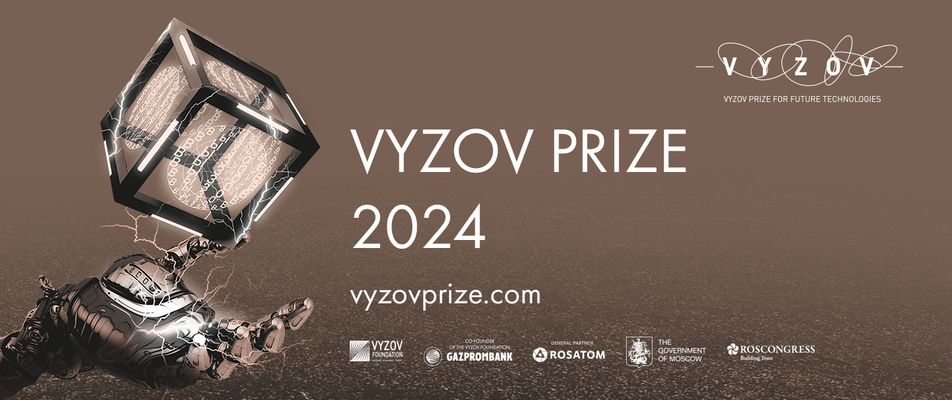
All 594 applications submitted for the VYZOV Prize for future technologies in 2024 have been accepted for consideration. You can track the status of the application in your personal account on the VYZOV website: vyzovprize.com If the status of application has not changed, then you can contact the organizers of the Prize at the email address specified in your personal account. The selection of the best applications will be carried out by the members of the Scientific Committee of the VYZOV Prize according to the established criteria. Applications are considered only from actively working scientists, the focus is on the work of the last 10 years. Find out more about the evaluation criteria in the Prize regulations on the VYZOV website. The names of the Prize winners will be announced at the Award Ceremony, which will be held at the Manege (Moscow) on December 19, 2024. You can watch the teaser of the ceremony, that took place last year on the VYZOV Prize YouTube channel. Recall that the Prize fund for the 2024 VYZOV Prize has increased to 55 million rubles.
27 May 2024
According to preliminary data, the distribution in the categories as follows: "Breakthrough" – 146 applications, "Engineering solution" – 138, "Future" – 124, Discovery ("Discovery") – 106, "Scientist of the Year" – 80.Artem Oganov, Chairman of the Scientific Committee of the VYZOV Prize, commented: "Such interest in the VYZOV Prize from scientists from all over the world is, first of all, an indicator of trust: in the Prize, in its Scientific Committee and in our country as a whole. I can already say that the level of applications received is very high. The competition is incredible. We have a big and responsible job ahead of us – to choose 5 laureates from hundreds of very worthy applicants."The names of the laureates will be announced at the Award Ceremony of the VYZOV Prize on December 19, 2024. The prize fund: 55 million rubles, 11 million rubles in each of the five categories.
22 May 2024
Applications were received from all over the world.The participants are from all continents except Antarctica.We are glad to see such interest to the Prize, and from today all the news in this Telegram channel will be published in two languages: Russian and English.Stay tuned for updates!
21 May 2024
Artem Oganov, Professor with Skoltech and Head of the Department of Semiconductors and Dielectrics with MISIS University, Doctor of Physics and Mathematics and Professor of the Russian Academy of Sciences was featured in two rankings released by Research.com. He ranks second out of 60 among Russia’s top chemists, and second out of 35 among Russia’s best materialsscientists. Research.com relies on objective bibliometric data to produce its worldwide rankings. A scholar’s position in a ranking is based on their D-index (Discipline H-index), which includes publications and citation data for the discipline in question. The National Prize for Future Technologies is managed by the Vyzov Foundation for the Development of Scientific and Cultural Relations in partnership with Gazprombank, Rosatom State Corporation and Roscongress Foundation, and with support from the City Government of Moscow. The Vyzov Prize commemorates the Decade of Science and Technology announced in 2022, and is meant to honor breakthrough research and inventions that change the landscape of modern science as well as our everyday lives. You can apply for nomination for the Vyzov Prize at премиявызов.рф before May 20th, 2024.
17 May 2024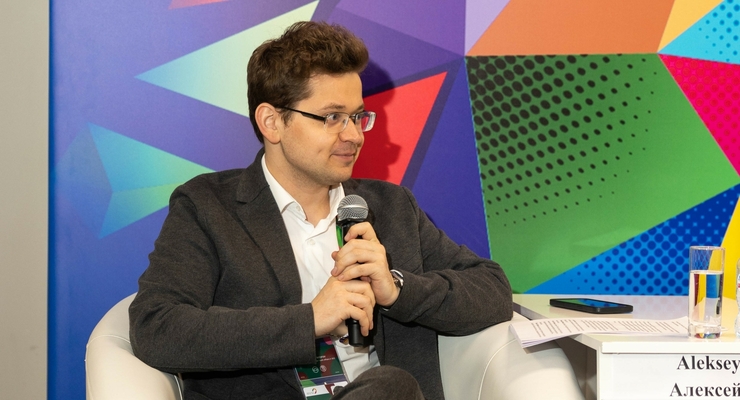
A team of Russian physicists led by Deputy Chair of the Vyzov Prize Scientific Committee Aleksey Fedorov has developed a “digital twin” based on tensor networks. Their research results were published in Physical Review Research.Aleksey Fedorov oversaw this effort as Head of the Research Group at the Russian Quantum Center and Head of the College of Physics and Quantum Engineering with the University of Science and Technology (MISIS).The advance of computer technologies brings about increasingly complex tasks that require ever more sophisticated tools to solve them. Quantum computers are actively employed in handling tasks that involve a multitude of parameters, such as modeling large molecules or chemical reactions, but even their capabilities have their limits. A synergy between machine learning and quantum technologies will enable the creation of a more efficient, multipurpose computing tool capable of taking on an even wider range of tasks. That is what Aleksey Fedorov’s research team is working on: a “digital twin” that will help computer systems produce the best solutions while using up less capacity. Instead of systems with several million states to analyze, all it would take is compact representations with a few hundred parameters.“Building increasingly sophisticated quantum devices requires new, efficient control methods for managing them, and devising those new techniques is becoming one of the central tasks in quantum technologies. This is especially relevant for building more advanced quantum computers and simulators. As part of implementing Rosatom’s Roadmap for the development of quantum computing, our research team at the RQC and MISIS, as well as our colleagues at the Lebedev Physical Institute are actively involved in developing control methods for quantum systems, which should enable us to use their computing power efficiently for solving prototypes of real-world tasks,” Aleksey Fedorov said in his comments.Quantum technology research may start changing the world within the next few years. One of the Vyzov Prize awards in 2023 went to Ilya Semerikov, Deputy Head of a research group at the RQC and Researcher with the Lebedev Physical Institute of the Russian Academy of Sciences, for creating a trapped-ion quantum processor based on qudites (multilevel quantum systems) and demonstrating quantum algorithms.
17 May 2024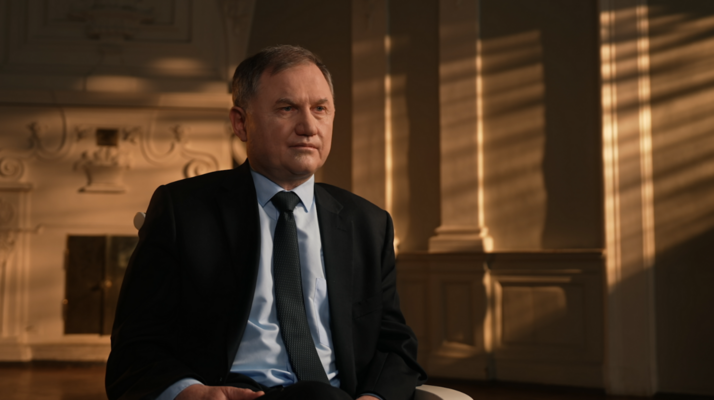
VYZOV Prize Laureate Raul Gainetdinov, Director of the Institute of Translational Biomedicine and Head of Research with the Pirogov Clinic of High Medical Technologies at the St. Petersburg State University is currently working on a medicine that will target depression based on a new principle. The new drug is expected to cause fewer side effects compared to conventional antidepressants. Roughly 280 million people worldwide are diagnosed with depression, according to the World Health Organization. This condition can lower one’s quality of life or even make it utterly miserable, especially for someone going through a severe depressive episode. To make matters worse, some people are getting no treatment for their depression whatsoever. For a long time, it was believed that depression is caused by serotonin deficiency. Therefore, most existing antidepressant drugs are designed to block the breakdown of serotonin. Sadly, like so many pharmaceuticals, antidepressants may cause side effects, such as psychomotor retardation. A team of scientists headed by Professor Gainetdinov is currently developing a medication that would target not serotonin or other biogenic amines but their distant relatives, trace amines. The latter are present in the human body at minuscule concentrations, so a drug targeting trace amines is expected to have fewer side effects. “Trace amines remained unexplored for a long time, and now we are working on a pharmaceutical agent that would enable us to target serotonin and dopamine levels indirectly rather than directly,” says Raul Gainetdinov. “This way, we are hoping to get a more gentle impact on the human brain and fewer side effects compared to the conventional drugs.” The research team also believes that, apart from treating depression, their new medication will prove effective in reducing the symptoms of schizophrenia, Alzheimer’s and Parkinson’s disease and other neurodegenerative diseases. Raul Gainetdinov received the VYZOV Prize in 2023 for his discoveries regarding the dopamine system and trace amine-associated receptors, which enabled new approaches to developing pharmaceuticals for treating brain disorders.
16 May 2024
Only one week remains for scientists who wish to apply for the VYZOV Prize for Future Technologies. The purpose of this award is to enable practical application of breakthrough technologies, and to make scientists and scientific discoveries the epitome of success in modern-day Russia. The award’s prize fund has been increased to 55 million rubles. Aspiring nominees can apply for the VYZOV Prize in five categories in 2024: - Vision: Scientific achievements that have influenced the development dynamics of science and technology. (Note: Eligible applicants must be below 35 years old at the time of nomination.)- Scientist of the Year: Individual lifetime contribution to changing the landscape of science and technology- Best Engineering Solution: Important inventions or newly created technologies- Breakthrough: Scientific research offering solutions to important scientific or technological challenges- Discovery: An international award for new discoveries that have influenced the development of science and technology ‘Discovery’ is a relatively new category that was added in 2024, and is open for applications from any scientist regardless of their nationality or country of residence. It is meant to show that science knows no borders, and serves as testimony to Russia’s openness to dialogue in the area of scientific and technological cooperation. “We aspire to establish the best scientific award in the world, one that would be authoritative and objective, and with applicants of the highest caliber. We’ve been quite bold in aiming for such an ambitious goal, and that would be my message for scientists: Be bold, don’t be afraid to apply and submit your research and share your findings with the world,” says the VYZOV Prize Scientific Committee Chairman Artem Oganov. You can apply for nomination at the VYZOV Prize’s official website vyzovprize.com before May 20th, 2024. The VYZOV Prize for Future Technologies is organized and sponsored by the VYZOV Foundation for the Development of Scientific and Cultural Relations in partnership with Gazprombank, Rosatom State Corporation and Roscongress Foundation, and with support from the Government of Moscow. The award was initially established to commemorate the Decade of Science and Technology announced in Russian in 2022, and is designed to celebrate breakthrough ideas and inventions that are changing the landscape of modern science and the life of every person.
14 May 2024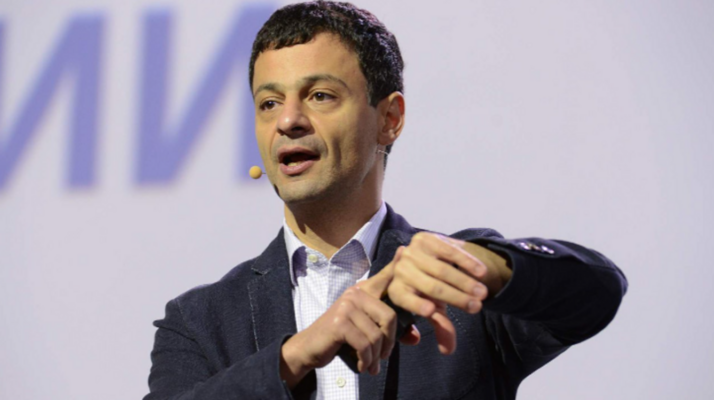
The call for applications for the VYZOV National Prize for Future Technologies closes on May 20th. Chairman of the award’s Scientific Committee Artem Oganov spoke to Izvestiya about how research done by some of its laureates may change the world around us in the nearest future, and what countries have scientists applied from so far for the award’s international category titled ‘Discovery.’ Here is an excerpt from that interview. Q: The call for applications for the VYZOV Prize was announced over two months ago. Are you seeing any trends in how applications are coming in? Is there more activity in certain disciplines? A: Last year, we saw very impressive performance from physicists, and a biomedical scientist became Scientist of the Year. Applications for this years’ awards are still coming in, and we don’t know at this point how various disciplines will be represented, but our award is open for scientists working in any area of natural or technical sciences or engineering. VYZOV has also added a new, international category titled ‘Discovery,’ and we have already received some very interesting submissions from Italy, Germany, Austria, China and Israel, to name a few countries. Those who would like to apply still have time till May 20th. Q: One of the criteria for applicants says their research must have a horizon of up to 10 years for practical application. If we look at last year’s applicants and laureates, will we be able to see and to use some of their inventions or new technologies in the nearest future? How will they influence our day-to-day life? A: As far as last year’s laureates are concerned, I think we will see all of their scientific achievements in practical application within the next ten years. That includes quantum and optical computing research, new treatment methods for brain diseases, and a superpower electromagnet based on high-temperature superconductors (there is already production set up for the latter, by the way). Q: Regarding Russia’s new Strategy for Scientific and Technological Development recently approved by the President, what are the key changes that you see? A: One should bear in mind that you cannot squeeze all of science into the Procrustean bed of standards and regulations. We need all of science, including both applied and fundamental science and research that seemingly has nothing to do with the nation’s economic development, because sooner or later, it will produce groundbreaking practical results. To cite one of the most prominent examples, when Albert Einstein formulated the theory of relativity in early 20th Century, explaining gravity as a result of the curving of space and time, it seemed that his findings would never have any practical application. But today, every navigation app in the world accounts for general relativity when calculating distance, otherwise their positioning would be incorrect and your taxi wouldn’t be able to pick you up at the right spot and get you to your destination. That is how all of science works: even things that seem to have no practical use may evolve into breakthrough technologies over time. Every nation needs a short- to medium-term strategy identifying priority areas for development, but it is also important to support scientific research in all areas and disciplines, including those that seem remote from practical application. Read the full interview by Izvestiya here (https://iz.ru/1693557/mariia-nediuk/mezhdunarodnye-organizatcii-vrode-tcern-predali-sami-sebia). Apply for nomination: премиявызов.рф
13 May 2024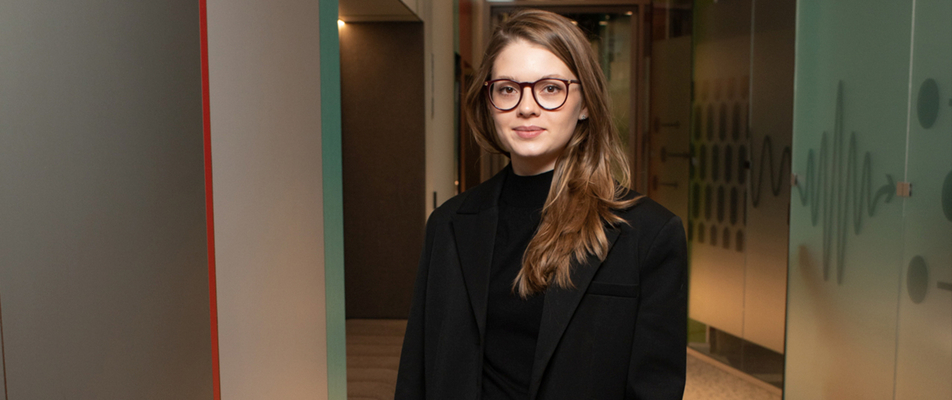
Quantum technology research has been pursued in different parts of the world for the past several decades, driven by its evidently vast potential for practical application. Quantum computers are expected to help scientists and engineers develop efficient pharmaceutical drugs, invent new chemical compounds and materials, solve optimization tasks in manufacturing, logistics, energy and economics, etc. In addition, post-quantum cryptography should enable data protection on a whole new level by developing encryption algorithms that cannot be cracked using either a conventional supercomputer or a future quantum computer. These future opportunities prompt many governments to support quantum technology research in their countries. Secretary of the VYZOV Prize Scientific Committee Alena Mastiukova, a postgraduate student at the Moscow Institute of Physics and Technology, a research fellow with the Russian Quantum Center and a researcher with the MISIS Laboratory of Quantum Information Technologies believes it is wiser to comprehensively develop quantum computing across the board rather than bet on any one particular physical platform, since it is unclear at this point which of the currently emerging platforms will eventually become number one, or maybe each of them will prove efficient in tackling a specific type of tasks, so they will be used in concert with each other. “I believe we need to look really far ahead with regard to developing quantum technologies. There are different types of quantum computers, which are based on different physical principles and different platforms. Researchers in other countries seem to put a lot of emphasis on superconducting microprocessors, but this doesn’t look like the best approach: superconductors have their limits, too, and it would be rather hard to build powerful quantum computers based on them, if we’re talking about not dozens but thousands or millions of qubits. In our research, which is part of Russia’s Quantum Computing Roadmap, we employ all existing tools and platforms, which are based not only on superconductors, but on atoms, ions or photons. We’re already developing things they haven’t come up with in other countries yet,” says Alena Mastiukova. Achievements in quantum technology research were acknowledged by the VYZOV National Prize for Future Technologies in 2023. One of the awards went to Ilya Semerikov, Head of a research group at the RQC and researcher with the Lebedev Physical Institute of the Russian Academy of Sciences, for creating a trapped-ion quantum processor based on qudites (multilevel quantum systems) and demonstrating quantum algorithms. One can apply for nomination for the VYZOV Prize at vyzovprize.com before May 20th, 2024.The VYZOV National Prize for Future Technologies is organized and sponsored by the VYZOV Foundation for the Development of Scientific and Cultural Relations in partnership with Gazprombank, Rosatom State Corporation and Roscongress Foundation, and with support from the Government of Moscow. The award was initially established to commemorate the Decade of Science and Technology announced in Russian in 2022, and is designed to celebrate breakthrough ideas and inventions that are changing the landscape of modern science and the life of every person.
08 May 2024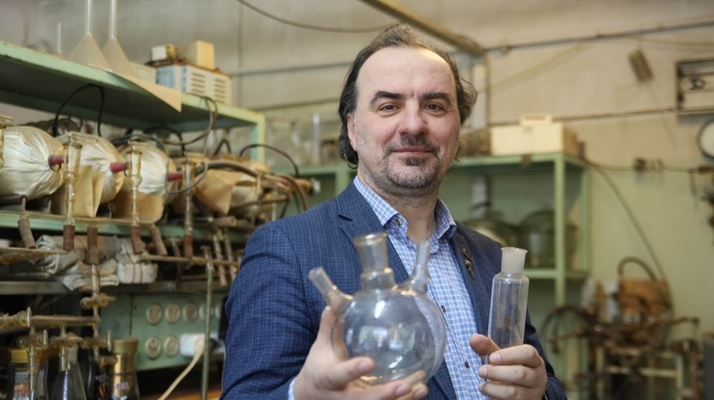
The Kurnakov Institute of General and Inorganic Chemistry of the Russian Academy of Sciences (IGIC RAS) supported by Russia’s Ministry of Science and Higher Education is working to create an online museum of chemistry. This undertaking is part of a federal project titled ‘Popularizing Science and Technology’ and the ‘Working with Experience’ Initiative, both launched under the auspices of the Decade of Science and Technology, which was announced in Russia in 2022. VYZOV Prize Scientific Committee Member Aleksey Paevsky will head the website’s editorial team, which will produce content for the online museum. The Kurnakov Institute of General and Inorganic Chemistry is the oldest chemical research facility of the Russian Academy of Sciences, dating back to the Academy of Sciences’ Chemical Laboratory founded by Mikhail Lomonosov in 1748. The lab’s 275th anniversary in 2023 was marked by the Kurnakov Institute publishing a book titled ‘Two Hundred Seventy-Five Years of Chemical Science in Russia,’ authored by Vladimir Ivanov, Aleksey Paevsky and Yuri Zolotov. In the process of writing the book, its authors found out that materials on the history of Russian chemical science are hard to get, and some historic episodes remain practically unknown to the public to this day. It was therefore decided to create an online museum of chemistry to make the history of chemical science more publicly available. The museum will trace the development of chemistry in Russia, including the evolution of various scientific schools created by prominent Russian chemists. The project is supervised by IGIC Director Vladimir Ivanov, a Corresponding Member of the Russian Academy of Sciences. Content production will be overseen by Aleksey Paevsky, Head of the Press Office with the RAS Federal Research Center of Problems of Chemical Physics and Medicinal Chemistry, curator of the ‘Working with Experience’ Initiative and a member of the VYZOV Prize Scientific Committee. “Our project is in its nascent stage, and the amount of work we’ll have to do may take a few years to accomplish, but what we aim to create in the long run is a comprehensive picture of how the chemical science evolved, not only in Russia, but worldwide, since any scientific discipline is a planetary phenomenon,” says the online museum’s newly appointed Editor-in-Chief Aleksey Paevsky. The online museum will feature various sections, such as:- biographies of prominent Russian and international chemists,- histories of discovery or research of certain chemicals,- a new popular library of chemical elements,- the history of chemical science narrated through a map of Russia (reports from chemical museums, science museums and memorial house museums of prominent chemists),- the history of Russia’s chemical institutes,- day-to-day chemistry: the history of various chemical devices, appliances, vessels and containers, their operating principles and their application in a modern-day chemistry lab. The project also plans to create a ‘chemistry’ map layer in Yandex Maps, highlighting landmarks related to the history of chemical science. The museum’s team plans to publish a full website guide in June, but certain materials will be available online starting from May 6th. You can follow the museum’s news updates on social media via VK and Telegram.
07 May 2024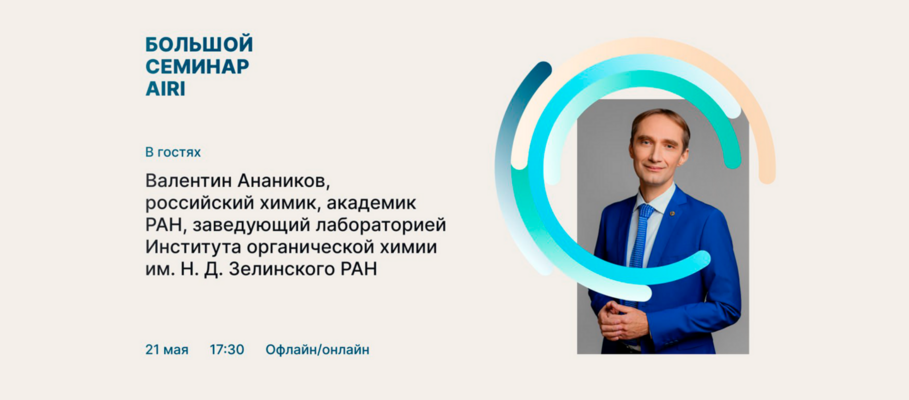
VYZOV Prize Scientific Committee Member Valentin Ananikov, a Member of the Russian Academy of Sciences and Head of Laboratory with the RAS Institute of Organic Chemistry, will deliver a lecture titled “Artificial Intelligence in Chemistry” as part of the Grand Seminar organized by the Artificial Intelligence Research Institute (AIRI). Professor Ananikov primarily works in fundamental research in the field of catalysis, organic chemistry and physical chemistry of nanoparticles. What is the potential of using AI algorithms in chemistry? Specifically, can AI-generated models entirely replace actual experiments someday? And how will the employment of neural networks reflect on the cost of research and on its efficiency? To get answers to these questions and more, don’t miss Professor Ananikov’s lecture at the AIRI Grand Seminar. The AIRI Grand Seminar is an event where people interested in science can meet with researchers in different fields. The seminar will be moderated by RAS Professor Ivan Oseledets, CEO of AIRI, Doctor of Sciences in Physics and Mathematics and Professor with Skoltech. You can register for the event by following this link.
03 May 2024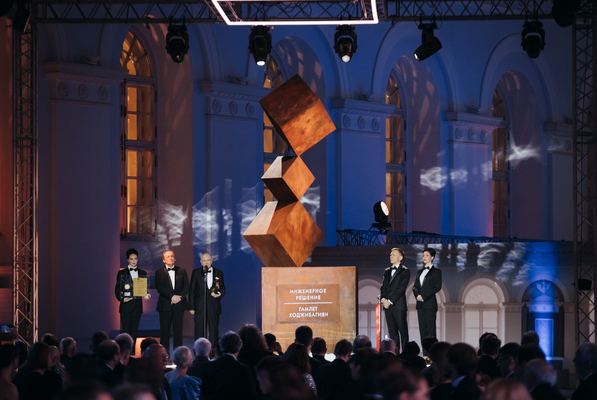
Why does the VYZOV Prize for Future Technologies have no divisions for various scientific disciplines? What impact do scientific awards have on various spheres of life? What plans do the founders of the VYZOV Prize have for the future? Find out in a new feature story by Kommersant. VYZOV Prize Adds an International Category: Discovery The call for applications is still open for the VYZOV National Prize for Future Technologies. This year, a new, international category titled ‘Discovery’ has been added to the existing categories such as ‘Vision,’ ‘Best Engineering Solution,’ ‘Breakthrough’ and ‘Scientist of the Year’. The new category is open for applications from scientists based in any country in the world, including Russian scientists residing abroad. Kommersant spoke with the founders and organizers of the VYZOV Prize and with some of its first laureates about how applications are coming in for the 2024 awards, how scientific awards influence the advancement of science, what significance the VYZOV Prize has, and what its prospects are. Not Quite Like the Nobel Prize The VYZOV National Prize for Future Technologies has been dubbed ‘Russia’s Nobel Prize’ by the media since its early days. Its Scientific Committee Chairman Artem Oganov argues against such a comparison. "I would not compare the VYZOV Prize with any other prize, including the Nobel Prize," he told Kommersant in an interview. “We don't aim to establish a second Nobel Prize, or a second Sakharov Prize, or a second Breakthrough Prize. We want to create a unique award that would be unparalleled and be the best one in the world. “In order for such an award to have value, it is very important that we evaluate applications with total objectivity, and that we generally administer the award taking into account other awards’ experience, as well as the modern realities and the future that the world is headed for. I believe we have been mindful of all that." How is the VYZOV Prize unique? For example, applicants may nominate themselves for the award. A scientist may be nominated by their peers or by their research facility’s Scientific Council, but they are also free to nominate themselves. The very name of the VYZOV Prize for Future Technologies tells us it is oriented towards the future. Hence, it recognizes research carried out within the past ten years, as well as findings and inventions whose potential is expected to reveal itself in the years to come. Another notable feature of the award is that it has no divisions by scientific discipline. This actually makes sense, because you cannot really expect to have one important discovery in mathematics, one in physics and one in medicine every year. Besides, many breakthrough discoveries occur at the intersection of scientific disciplines. That is why, instead of having divisions by discipline, the VYZOV Prize is awarded in five categories: ‘Scientist of the Year’ (for Russian scientists with an outstanding record), ‘Breakthrough’ (for crucial achievements in science and technology), ‘Best Engineering Solution’ (for important inventions), ‘Vision’ (for scientists and research teams aged below 35, who have made a significant contribution to scientific or technological development) and ‘Discovery’ (for international applicants). Artem Oganov, Chairman of the VYZOV Prize Scientific Committee Photo: Photo bank of the VYZOV Foundation Explaining why the award has added an international category, Artem Oganov says, "We want the VYZOV Prize to become one of the most prestigious scientific awards in Russia, and to be esteemed and renowned worldwide. Success is measured by demand, and demand appears when your work addresses some key necessities that people have. Now that the world is so divided, the need for unification is truly evident. “Introducing an international category is what we can do to help build bridges between countries. Sooner or later, people will go back to communicating and collaborating with each other, and we will be at the forefront, because we are already working for that by unifying science. “In addition, having an international category elevates the VYZOV Prize to a new status. Now our award is open for scientists from all over the world, and this is very important. This is a step in the right direction." Science Is Not Political The Scientific Committee Chairman also notes that it is crucially important to abide by the principle of impartiality when determining the laureates. “All other awards adhere to the same principle, but only on paper in most cases,” says Artem Oganov. “The world suffers an acute shortage of fairness, and that is why we in the Scientific Committee are setting ourselves a very high bar: Being regular people of flesh and blood, with our emotions and our personal preferences, we vow to put aside all of our emotions and our preferences and make decisions based on absolute fairness.” Alexey Paevsky, member of the VYZOV Prize Scientific Committee, scientific journalist, Ambassador for the Decade of Science and Technology in RussiaPhoto by Snezhana Shabanova Alexey Paevsky, a scientific journalist, member of the VYZOV Prize Scientific Committee and Ambassador of Russia’s Decade of Science and Technology believes scientific awards remain less politicized today compared to literary awards or the Nobel Peace Prize. To cite an example, he points to the latest Nobel Prize in Chemistry, where one of the laureates was a Russian scientist working in the United States, who was awarded for a discovery made while living in the Soviet Union. One example of a national award whose winner may be a scientist from any country is the UNESCO-Russia Mendeleev Prize in the Basic Sciences awarded by the Russian Academy of Sciences. In 2023, it was awarded to Dr. Irina Beletskaya, a Professor with the Moscow State University, and Dr. Klaus Alexander Müllen, Director of the Max Planck Institute for Polymer Research. Raul Gainetdinov, Laureate of the 2023 VYZOV Prize as Scientist of the Year, Director of the Institute of Translational Biomedicine, St. Petersburg State University Photo: Photo bank of the VYZOV Foundation “I believe science shouldn’t be limited by national borders,” says Raul Gainetdinov, Laureate of the 2023 VYZOV Prize as Scientist of the Year, Director of the Institute of Translational Biomedicine, St. Petersburg State University. “In general, the scientific community remains united, but some foreign scientists are now wary of cooperation with their peers in Russia. Our Chinese colleagues have a friendly attitude toward Russian scientists, and Italians have always been open for communication with us. The Americans have apparently gotten accustomed to the unrest in the world, so, as a rule, they also continue to collaborate with colleagues from all over the globe. “To sum it up, I would say the scientific community remains international. Last year, I published two articles in collaboration with my American colleagues, one article with Belgians and Italians, and one with Germans. The other day, I got an invitation to speak in Japan. Although, I guess, a lot depends on personal contacts: I lived in the West for twenty years, and I have friends abroad whom I’ve known for 30 years. So many of them don’t care where I’m based, whether it’s in America, Italy, Russia or elsewhere.” Artem Oganov says Chinese scientists have been very enthusiastic about the introduction of the international ‘Discovery’ category. A Scientific International Scientists may apply for the award till May 20th, 2024. The largest number of applications so far have been submitted from Russia’s Central Federal District, particularly from Moscow, St. Petersburg, the Nizhny Novgorod Region, the Republic of Bashkortostan and the Novgorod Region. The new international category, ‘Discovery,’ has received quite a few submissions from different countries, including some EU member states. Submissions for the award represent a wide range of scientific disciplines, while most of them (53% to date) are related to either medicine, computer science or chemical technology. Technical sciences are strongly represented, and the Engineering Solution category has received a lot of submissions citing achievements in the field of mechanical engineering and metallurgical process improvement. Most applicants to date come from universities, including research universities. The average age of applicants is 44, although that may vary depending on the category. Young scientists applying for the Vision award are aged 32 on average, while the average age of applicants for Scientist of the Year is 46, Engineering Solution, 38, and Discovery, 54 years old. Science for Society, Business for Science Scientific awards have a significant impact on various spheres of public life. Awards are important for scientists. They serve as a powerful incentive that motivates them to carry on with their research, developing new, innovative technologies and expanding the boundaries of human knowledge. Speaking at a recent conference titled ‘Science without Borders: Siberia Accepts the Challenge’ hosted by the Tomsk State University, VYZOV Prize’s Vision award laureate Ilya Semerikov said that being awarded is a token of trust extended to the scientist. The VYZOV Prize comes with a considerable financial reward. In 2024, it has a prize fund of 50 mln rubles, 10 million for each of the five categories. But the very acknowledgement of a scientist’s achievements is equally important. It can contribute to their career, help them gain recognition from peers and boost their authority in their field of research. Scientific awards play an important role for science in general, since they have a decisive impact on how research trajectories are shaped and how future research in various fields is incentivized. “The VYZOV Prize is focused on future technologies, so it is important for us to enable an environment where our laureates’ achievements would be translated into technological development on a new level,” says Aleksey Fedorov, Deputy Chairman of the VYZOV Prize Scientific Committee. “We want the VYZOV Prize to give an impetus to scientific research and new engineering solutions, to reduce the lead time between getting a research result and seeing its real-world application.” Aleksey Fedorov, Deputy Chairman of the VYZOV Prize Scientific CommitteePhoto: Photo bank of the VYZOV Foundation Scientific awards are also necessary and important for businesses. They influence the business community, especially in areas where performance relies on technology and innovation. Companies often use their association with prestigious scientific awards to promote their brand, attract the best talent and demonstrate their commitment to cutting-edge research and development. Sponsoring scientific awards allows businesses to partner up with leading researchers and institutions. This kind of cooperation promotes innovation, accelerates technological progress and stimulates economic growth. “As a co-founder of the VYZOV Prize, we realize that investment in scientific research can deliver substantial returns for businesses, both in the short and long term: from creating new products and fostering new markets to having a significant impact on the development of society and of the national economy,” says Dmitry Zauers, Deputy Chairman of the Board of Gazprombank. “Large investors often underestimate the importance of supporting new research and development at an early stage because venture capital investment is a risky business. But investing in science can enable businesses to score a competitive advantage in their market, secure themselves access to unique knowledge and technology and build up their intellectual capital, which can serve as the basis for developing new business models and strategies.” Dmitry Zauers, Deputy Chairman of the Board, GazprombankPhoto: Photo bank of the VYZOV Foundation Dmitry Zauers also notes that Gazprombank sees great potential in investing in high-tech research, as exemplified by quantum technology research: “We have supported high-tech startups, industrial enterprises and groups of scientists involved in trailblazing fundamental research for the past quarter-century. And we are willing to continue our active contribution to refining the infrastructure for transferring cutting-edge technology to the market, encouraging research and development and monetizing scientific ideas and research results.” Finally, scientific awards are important for society. Promoting scientific awards and their laureates to the public arouses interest for the scientific profession among younger audiences. Scientific breakthroughs celebrated by prestigious awards often have far-reaching consequences for addressing global challenges, improving the quality of life and developing human knowledge. An Award for the Future and the Future of the Award Once the call for applications is closed, the Scientific Committee will have to do a lot of work to determine the winners. “It is of crucial importance for a scientific award to have two things. First, its Scientific Committee, who selects the laureates, must be of the highest caliber, and secondly, it must be absolutely impartial in making its decisions,” says Alexey Paevsky. “I believe the VYZOV Prize meets both of these criteria.” The VYZOV Prize is organized by the VYZOV Foundation for the Development of Scientific and Cultural Relations. Its President Leonid Shlyakhover shared the organization’s future plans with us. Leonid Shlyakhover, President of the VYZOV FoundationPhoto: Photo bank of the VYZOV Foundation “The VYZOV Foundation sets ambitious goals for itself. We are now considering organizing a big international festival jointly with our partners, which would bring together laureates of esteemed scientific and artistic awards and hopefully foster a creative environment for launching new projects, such as movies, theatric plays, TV shows, podcasts, etc. Because it is through these media that a wider audience can learn about the most notable achievements of science,” says Leonid Shlyakhover. “One of the objectives of the festival would be to enable young people to see avenues for development for themselves inside Russia by bringing them some of the real-life success stories. “We realize that you cannot develop new technologies unless you have fundamental science. That is why we would like scientists to be role models in the eyes of younger people, the way artistic celebrities like stage or movie stars are today. “The VYZOV Foundation also actively works to maintain a regular international dialogue among scientists. This year we successfully launched a new, international category for the VYZOV Prize titled ‘Discovery,’ and we have already received quite a few submissions from various countries, including some of the EU member states. It is an indicator of confidence: confidence in the award’s Scientific Committee and its expertise, confidence in the VYZOV Foundation, and confidence in our country. “I would like to note that Russian nationals currently based abroad may also apply for the Discovery award. It is important for us to demonstrate that Russia has the necessary enabling environment for advancing science, and that scientific achievements are welcomed and acknowledged here. “Following last year’s tradition, the VYZOV Prize award ceremony will take place at Moscow’s Manege Central Exhibition Hall on December 19th. It will be a big, festive event featuring prominent figures in the world of science, art, business and politics.” The VYZOV National Prize for Future Technologies is organized and sponsored by the VYZOV Foundation for the Development of Scientific and Cultural Relations jointly with Gazprombank, in partnership with Rosatom State Corporation and Roscongress Foundation, and with support from the City Government of Moscow. The award was initially established to commemorate the Decade of Science and Technology announced in Russia in 2022, and is designed to celebrate breakthrough ideas and inventions that are changing the landscape of modern science and the life of every person.
27 April 2024
On April 23, a seminar "Anticipating a New World: The Time for Action in Science Diplomacy" organized by the Vyzov Foundation for the Development of Scientific and Cultural Relations was held in Moscow. Participants of the seminar discussed the opportunities for scientific diplomacy in the times of political turmoil and issues of preserving trust in the scientific community.Leonid Shlyakhover, President of the Vyzov Foundation, noted that the event was an important step towards the establishment of a sustainable international dialogue."Maintaining the scientific dialogue based on trust is now harder than ever, but this is a crucial task. Science should stay out of politics, but the reality is different, and therefore scientists are forced to act as diplomats. The Vyzov Foundation strives to create an independent platform for exchanging opinions in order to carry of the scientific dialogue. We want the scientific diplomacy seminar to become a regular event held several times a year," noted Leonid Shlyakhover.The seminar was attended by Thomas Greminger, Director of the Geneva Center for Security Policy, former Secretary General of OSCE. He believes that that joint international projects aimed at overcoming the current challenges are an effective tool of scientific diplomacy, building trust between scientists and researchers from different countries. He called for the creation of informal platforms in order to continue meaningful dialogue and exchange of views despite political differences."Scientific diplomacy can foster trust-building. When there are few opportunities for a dialogue, science can become the means that helps preserve communication channels and strengthen relationships for future dialogue and cooperation. If official platforms and exchanges are frozen, let's create informal ones," said Thomas Greminger.Photo: Photobank of Vyzov FoundationAnastasia Likhacheva, Dean of Faculty of World Economy and International Affairs at the Higher School of Economics, pointed out that scientific diplomacy can become a tool to counter sanctions. According to her, despite the increasing pressure experienced by the Russian science, it is important to uphold international cooperation. She suggested creating specific visas for young scientists and research teams."The influence that politics exerts on science is increasing, but the number of scientific challenges is on the rise as well. The entire logic of the development of humankind leads me to believe that science will prevail. But it's a shame that science is facing so many obstacles right now," commented Anastasia Likhacheva.Aleksey Fedorov, Deputy Chairman of the Scientific Committee of the VYZOV Prize, said that the Prize is an important tool of scientific diplomacy. He noted that applications for the international Discovery category come from all over the world, and emphasized the openness and transparency of the procedure for selecting winners.The participants of the seminar on scientific diplomacy agreed that under current conditions, it is necessary to maintain the international scientific dialogue, develop joint academic initiatives with other countries, and promote scientific exchange programs among students. Now there is great demand in the scientific community for the creation of platforms, including informal ones, for the exchange of views and the development of real measures to maintain international contacts in the field of science."The key takeaway of the scientific diplomacy seminar is that we are moving in the right direction. Almost every participant of this event said that they were looking forward to the next steps. Scientific diplomacy is the tool that actually works and it is necessary for meaningful communication between scientists from different countries," said Elena Eremenko, Vice President of the Vyzov Foundation.Photo: Photobank of Vyzov FoundationVyzov Foundation for the Development of Scientific and Cultural Relations is founder and organizer of the VYZOV National Prize for Future Technologies. The Foundation aims to popularize science and technological achievements, to create an expert community in the sphere of future technologies, to turn scientists into opinion leaders, and to foster sustainable international scientific dialogue. Co-founder of the Vyzov Foundation is Gazprombank. Its partners are Rosatom State Atomiс Energy Corporation and Roscongress Foundation with the support of the Government of Moscow.
24 April 2024
Revised version of the 2024 VYZOV Prize for Future Technologies dated March 22, 2024 has been published.We would like to remind you that this year, you can apply for the Prize in five categories:- Future – for a scientific achievement that has influenced the dynamics of the development of future technologies (awarded to scientists below the age of 35);- Engineering Solution – for an invention that helped significantly advance a certain technology;- Breakthrough – for a scientific research that enables the creation of future technologies;- Discovery – international category for a significant discovery that has influenced the development of science and technologies;- Scientist of the Year – for personal contribution to creating future technologies and changing the scientific landscape.You can submit your application through May 20, 2024.
22 April 2024
Alyona Mastyukova, Secretary of the Scientific Committee of the VYZOV Prize, researcher at the Russian Quantum Center and at National University of Science and Technology lab, postgraduate student at the Moscow Institute of Physics and Technology, won the 2023 Kolba Prize in Physics category. The awards ceremony in this category took place on April 19. The Kolba Prize is an annual interdisciplinary award for women working in various fields of science and technology. It was established by the Women in Nuclear Russia Foundation to promote women in science, spotlight important achievements in science and technology, share knowledge and experience, as well as to create a space for interaction between business and science in order to create a large women's community and multiply human and intellectual capital. The laureates of the Prize receive a badge of distinction, and an interview with them is published on the Prize's website. "As astronomer Vera Rubin once said, "Science is competitive, aggressive, demanding. It is also creative, inspiring, uplifting. You can do it, too. Each one of you can change the world, for you are made of star stuff, and you are connected to the universe." The Kolba Prize means not just recognition of scientific achievements in various fields, it is also an important step towards giving credit to women in science. I am proud that my work in physics is recognized and appreciated, and I hope that this will incentivize other women to overcome all stereotypes and never have fear to achieve outstanding results in science and its popularization," said Alena Mastyukova when receiving the 2023 Kolba Prize for her contribution to the development of physical sciences.Alena Mastyukova studies decoherence processes in multiparticle quantum systems and develops quantum algorithms. She is a frequent guest at popular science events where she speaks about her scientific interests that include quantum computing, quantum programming, and quantum machine learning. Alena Mastyukova's works have been distinguished by the Medal of the Russian Academy of Sciences for Young Scientists, the Russian Presidential Scholarship for young scientists and postgraduate students engaged in promising scientific research, and other awards.
19 April 2024
Maria Zakharova, Director of the Information and Press Department of the Russian Foreign Ministry, mentioned the Discovery international category of the VYZOV Prize at a media briefing and urged scientists to submit applications for the award. "This category was established for foreign scientists and Russian citizens working abroad. We encourage scientists from all over the world, creators of ideas and inventions that can change the landscape of modern science and the lives of all people, to participate in the contest for this award." Maria Zakharova also emphasized the important mission of the VYZOV Prize. "The mission of the Prize is to motivate the younger generation to pursue science. Its other task, equally important, is to lay the groundwork for a sustainable and equitable international scientific dialogue." The VYZOV National Prize for Future Technologies is awarded in five categories: Future, Engineering Solution, Breakthrough, Scientist of the Year, and Discovery. You can submit your application at премиявызов.рф through May 20.
18 April 2024
Scientists of the Siberian Federal District gathered at Tomsk State University to attend the conference "Science Without Borders. Siberia Accepts the Challenge." The event focused on the VYZOV Prize awarded for fundamental breakthroughs, ideas and inventions in five nominations covering the entire range of future technologies. The conference was organized by Tomsk State University and the Vyzov Foundation for the Development of Scientific and Cultural Relations. The event was held with the aid of the University Consortium of Big Data Researchers.High-tech and science-intensive products make 21% in the gross regional product of the Tomsk Oblast, much higher than in Russia and in the Siberian Federal District on average. The region is a well-known scientific center, and that was one of the main reasons why organizers of the VYZOV Prize decided to visit TSU to make sure that as many scientists as possible learn about this award that is designed to support their efforts."What other region could become the first host of such an away event featuring the organizers of the VYZOV Prize in preparation of the next stage of the National Award for Future Technologies? Tomsk Oblast is a region of knowledge and technology. It is developing and lives up to this title. We actively cooperate with the "Big Tomsk University" that combines the efforts of all universities, research institutes, and science and technology companies with a focus on future technologies," said Lyudmila Ogorodova, Deputy Governor of the Tomsk Region for Scientific and Technological Development, in her opening speech.Photo: TSU press serviceEduard Galazhinskiy, TSU Rector, noted that the "Science Without Borders. Siberia Accepts the Challenge" conference should demonstrate full potential of the Russian science and encourage scientists to apply for the VYZOV Prize."We are basically witnessing the emergence of a new mechanism for supporting and promoting science in Russia," said Mr. Galazhinskiy in his opening remark. "It is kind of a Russian Oscar in science, and the prestige of this award is very high. Both the Government of the Russian Federation and the Ministry of Science and Higher Education take note of it. We see fierce competition between the United States and China for technological "packages" in the industrial revolution. Russia is the third country that can start an alternative and sovereign technological history."Photo: TSU press serviceAleksey Fedorov, Deputy Chairman of the Scientific Committee of the VYZOV Prize, head of Quantum Information Technologies research group at the Russian Quantum Center, Director of the Institute of Physics and Quantum Engineering at MISIS University, noted that it is important for the organizers of the VYZOV Prize to talk about this award at places that are leaders in science, knowledge, and technology, such as the TSU and the entire Tomsk Oblast."Since we represent a young and developing award, it is very important for us to spread the news about it at the sites that are known leaders in science, knowledge, and technology. Thank you for the opportunity to hold this conference at TSU. Our goal is to talk about the tools for further technology development that scientists are rewarded for," said Aleksey Fedorov.Gazprombank is co-founder of the VYZOV and Award. Dmitry Zauers, Deputy Chairman of the Board of Gazprombank and alumnus of TSU, spoke at the plenary part of the conference about ways of supporting scientists by the bank."Gazprombank has extensive experience and unique competencies that allow us to assess breakthrough technologies and research projects of the future, identify promising teams and scientists at an early stage. In order to build knowledge-driven economy, it is necessary to ensure uninterrupted transition of scientific inventions into new technologies. The VYZOV Prize has become a statement that science is important and requested by the state, society, and businesses. And for young people who are making their first steps in science, it means that their ideas and efforts will be appreciated and fill find practical applications," emphasized Dmitry Zauers.Awards as a means for supporting scientists not only promote science, but also help researchers find investors and gain additional recognition among colleagues. This view was expressed by Ilya Semerikov, Candidate of Sciences in Physics and Mathematics, head of Scalable Ion Quantum Computing research group at the Russian Quantum Center, researcher at the Lebedev Physical Institute of the Russian Academy of Sciences, and winner of the 2023 VYZOV Prize in Future category."Awards certainly add value to your work. Telling investors and colleagues that you are engaged in promising research in quantum technologies is one thing, but adding that your work has been recognized by the highly respected Scientific Committee of the VYZOV Prize and that you have won the Prize in one of the categories, this is something completely different. Such presentation of research is a strong argument that you can be trusted, and the technologies under development really have the potential to improve people's lives in the near future," noted Ilya Semerikov.Photo: TSU press serviceVyzov Foundation for the Development of Scientific and Cultural Relations is founder and organizer of the VYZOV National Prize for Future Technologies. The mission of the Foundation is to make science a popular and desirable occupation, to create new perception of science and technologies as topmost values for the society. The Foundation aims to popularize science and technological achievements, to create an expert community in the sphere of future technologies, to turn scientists into opinion leaders, to create an effective mechanism for interation between science and businesses, and to foster sustainable international scientific dialogue.
17 April 2024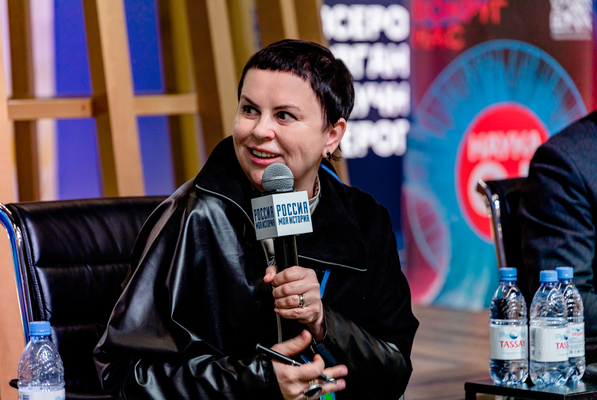
On April 12, Elena Eremenko, Vice President of the Vyzov Foundation for the Development of Scientific and Cultural Relations, took part in the All-Russian Forum of Organizers of Popular Science Events. She spoke at the "State, Business, and Promotion of Science: How and Why" session.Elena Eremenko noted that despite the fact that the Vyzov Foundation is a non-government organization, it works for the benefit of our country and helps achieve the goals set out in the Russia’s Scientific and Technological Development Strategy. One of them is engaging talented youth in science.The Vyzov Foundation is co-founder of the VYZOV National Prize for Future Technologies. The first awards ceremony was held in December 2023."We are young, but we have already achieved a lot. We have awarded the laureates, and we are also trying to make them popularizers of their respective areas. We want them to talk about what they are doing and inspire others to do science," Elena Yeremenko said.This year, the VYZOV Prize has introduced the new international category titled Discovery – it welcomes all scientists from all countries, regardless of their citizenship and nationality. This highlights the principle that science knows no borders.Elena Eremenko noted that the Vyzov Foundation is searching for unconventional approaches, including talking about science through culture. This became the key concept of the photo exhibition "Physics and Lyrics" that was opened during the World Youth Festival in Sochi in March. It became the pilot project of the new multi-platform наукаплюскультура.рф.The Vyzov Foundation is currently active in various areas, namely cooperating with the SCIENCE 0+ festival."We are trying to highlight the achievements of the Russian science through culture. So naturally a lot of our events correlate with the SCIENCE 0+ festival. This autumn, we are planning to launch several joint projects, and we are very happy with this cooperation," said Elena Eremenko.
13 April 2024
The total prize fund of the VYZOV Prize is 50 million rubles, 10 million in each of the five categories.The call for applications for VYZOV National Prize in Future Technologies is ongoing. The goal of the Prize is to make scientists and their discoveries a symbol of success in modern-day Russia and create conditions for the practical implementation of future technologies.In 2024, you can apply for the VYZOV Prize in the following five categories:- Future – for a scientific achievement that has influenced the dynamics of the development of future technologies (awarded to scientists below the age of 35 at the time of submitting the application);- Scientist of the Year – for cumulative personal contribution and changing the landscape of science and technologies;- Engineering Solution – for an important invention or creation of a new technology;- Breakthrough – for a scientific research that helps solve an important scientific or technological challenge;- Discovery – international category for a significant discovery that has affected the development of science and technologies.The Discovery category was established in 2024. It is open to all scientists, regardless of their citizenship and country of residence. This category demonstrates that Russia is open to dialogue in the field of scientific and technological cooperation, and proves that science knows no borders.You can submit an application at the official website of the VYZOV National Prize for Future Technologies at премиявызов.рфApplications can be submitted through May 20, 2024.The VYZOV National Prize for Future Technologies is timed to coincide with the Decade of Science and Technology in Russia announced in 2022 and aims to recognize breakthrough ideas and inventions that change the landscape of modern science and the lives of all people. The Prize was founded by the Vyzov Foundation for the Development of Scientific and Cultural Relations together with Gazprombank. The Prize's partners are Rosatom State Atomiс Energy Corporation and Roscongress Foundation with the support of the Government of Moscow.
12 April 2024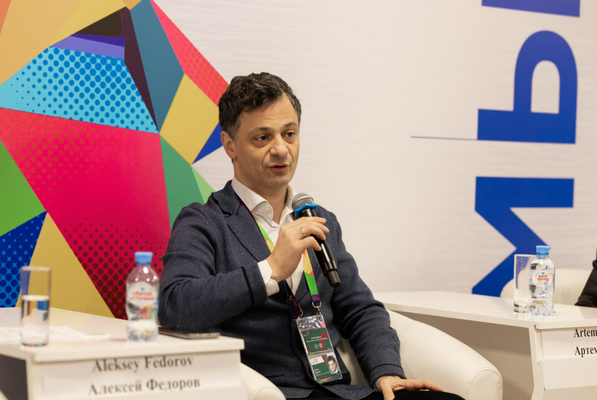
Artem Oganov, Chairman of the Scientific Committee of the VYZOV Prize, has addressed an important issue of human dignity in his Telegram channel. Unfortunately, Artem is not the only scientist who has faced discrimination. However, it is important that he brought the issue to the attention of general public and triggered an extensive discussion. We feel compelled to endorse Artem Oganov and his stance – when we face xenophobia, it is important to preserve our dignity.
09 April 2024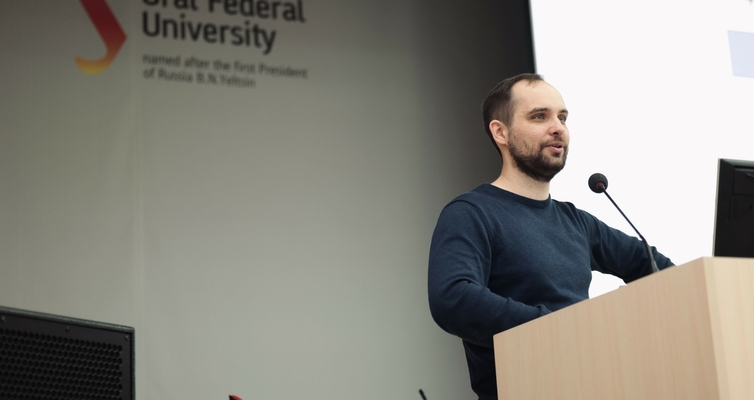
From March 30 to April 5, the Ural Federal University hosted Quantum Week by Rosatom — Quantum Technologies. Ilya Semerikov, researcher at the Lebedev Physical Institute of the Russian Academy of Sciences, deputy head of a research group of the Russian Quantum Center, winner of the VYZOV Prize, gave a lecture at the event. Ilya Semerikov told UrFU students how quantum computing will change the near future and what expertise is required from university graduates. Quantum Weeks is an ecosystem project of Rosatom — Quantum Technologies (JV Kvant LLC) to increase involvement of schoolchildren, students, teachers, university professors and researchers, representatives of regional authorities, development institutions and businesses in the current agenda of quantum technologies. Ural Federal University has become a key partner of Rosatom's Quantum Week in Yekaterinburg. Other partners include the Information Center for Atomic Energy (Yekaterinburg), the Russian Quantum Center, and the Association of Organizers of Student Olympiads "I am a Professional". The topic of the lecture generated great interest from the audience. Attendees had a chance to learn about all the opportunities presented by quantum computers, how young research teams are creating advanced technologies, and how to become member of such teams. In December 2023, Ilya Semerikov won the VYZOV Prize for creating a trapped-ion quantum processor based on qudites, multilevel quantum systems, and demonstration of quantum algorithms. The VYZOV National Prize for Future Technologies is timed to coincide with the Decade of Science and Technology announced in 2022, and is designed to acknowledge breakthrough ideas and inventions that are changing the landscape of modern science and the lives of all people. The Prize sponsor is the VYZOV Foundation for the Development of Scientific and Cultural Relations together with Gazprombank with support of the Government of Moscow. Rosatom State Atomiс Energy Corporation is the general partner of the Prize. On March 3, the call for applications for the VYZOV Prize was launched, it will run until May 20. The fund of the 2024 VYZOV Prize is 50 million rubles in total, 10 million rubles in each of the five categories. You can apply for the VYZOV National Prize for Future Technologies on the award's website.
04 April 2024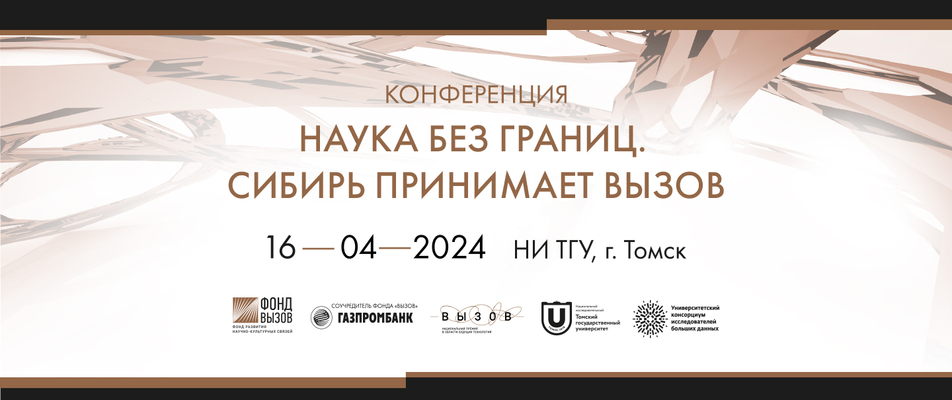
On April 16, Tomsk State University will host a conference "Science without Borders. Siberia Accepts the Challenge". It is poised to become the major event of the year for the scientific community of the Siberian Federal District and serve as an incentive for establishing clear motivation and aspirations among young scientists, researchers and developers to engage in science and technology in order tackle the paramount challenges for the development of our country and its society. The key topic of the event will be the VYZOV National Prize for Future Technologies as the current measure of support and popularization of scientific research and the contribution of scientists in the creation of future technologies. At the conference, participants will discuss measures to prevent the isolation of Russian science and to preserve international dialogue, the need to establish new contacts and make adjustments to the map of scientific cooperation. They will also discuss existing strategies in science and ways to improve them in close cooperation with the economic sector in order to ensure technological leadership of Russian pilot projects, support fundamental scientific discoveries, develop international scientific cooperation to solve global problems and create a model of protected space and trust in the scientific community. The conference will become a platform for sharing the experience and information regarding the achievements and prospects of the Russian science. The participants of the event will have an opportunity to attend visionary lectures by leading Russian scientists and business representatives.The event will feature: – Dmitry Zauers, Deputy Chairman of the Board of Gazprombank;– Aleksey Fedorov, Head of Quantum Information Technologies research team at the Russian Quantum Center, Director of the Institute of Physics and Quantum Engineering at MISIS University, Deputy Chairman of the Scientific Committee of the VYZOV Prize;– Ilya Semerikov, Candidate of Physical and Mathematical Sciences, researcher at the Lebedev Physical Institute of the Russian Academy of Sciences, VYZOV Prize winner in Future category. REGISTER FOR THE EVENT The event is timed to coincide with the Decade of Science and Technology announced in 2022 by the President of the Russian Federation. The mission of the Vyzov Foundation is to create an expert community in the sphere of future technologies, turn scientists into opinion leaders, popularize science and technological advancements, and to support sustainable international scientific dialogue. The conference is organized by the Vyzov Foundation for the Development of Scientific and Cultural Relations together with the Tomsk State University with support of the University Consortium of Big Data Researchers.
04 April 2024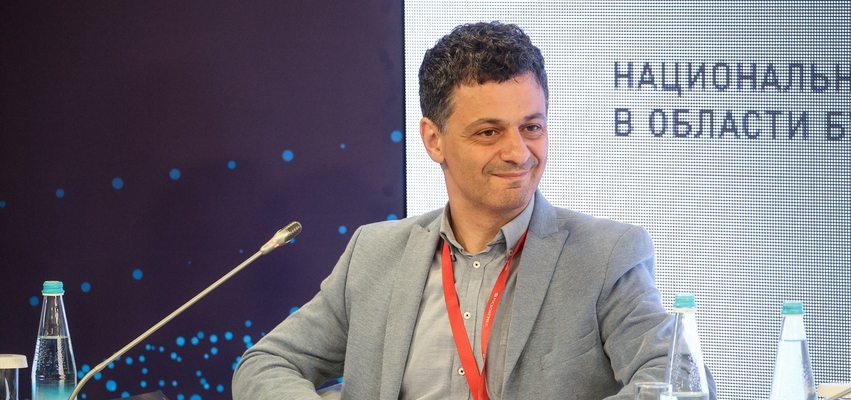
Artem Oganov, professor of the Russian Academy of Sciences, Doctor of Physical and Mathematical Sciences, full professor at Skoltech, and Chairman of the Scientific Committee of the VYZOV Prize, became member of the International Core Academy of Sciences and Humanities. This scientific organization was established with the aim of supporting research and assisting the global academic community. It includes representatives of various countries and sciences across the world. The Academy brings together scientists from all over the globe. One of its members is astrophysicist Aleksei Starobinsky. The Academy aims to foster international research in various fields of knowledge. "Acknowledgement is important to any person, including scientists," said Artem Oganov. "Naturally, our self-esteem and opportunities increase when our activities gain recognition. Acknowledgement is the source of inspiration." He also noted that the election to a major academy of sciences is one of the important means of recognition in the scientific community as well as prizes. Artem Oganov is Chairman of the VYZOV Prize Scientific Committee. The VYZOV National Prize for Future Technologies is timed to coincide with the Decade of Science and Technology announced in 2022, and is designed to acknowledge breakthrough ideas and inventions that are changing the landscape of modern science and the lives of all people. The Prize sponsor is the VYZOV Foundation for the Development of Scientific and Cultural Relations together with Gazprombank with support of the Government of Moscow. Rosatom State Atomiс Energy Corporation is the general partner of the Prize. On March 3, the call for applications for the VYZOV National Prize for Future Technologies was launched. The Prize's mission is to encourage new generations to pursue science and technology in Russia. This year, the Prize includes the new international Discovery category that welcomes scientists from all over the world, including Russians who live and work abroad. Application period runs until May 20. The prize fund of the 2024 VYZOV Prize is 50 million rubles in total, 10 million rubles in each of the five categories.
01 April 2024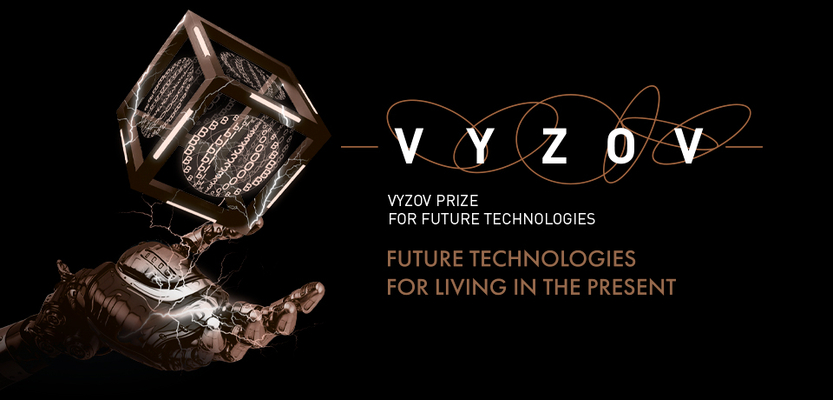
On March 3, the call for applications for the VYZOV National Prize for Future Technologies was launched during the press conference held in the press center of the 2024 World Youth Festival. The Prize's mission is to encourage new generations to pursue science and technology in Russia."Our goal is to turn scientific discoveries and scientists into symbols of success in modern-day Russia. Scientific awards are designed to reward the best scientists for their boldest ideas that can radically change the modern society and business environment. Our prize is unique because we promote our laureates as opinion leaders and public figures as well as rewarding them. We believe that it is important for them to be acknowledged in the professional community and to become high-profile and recognized individuals," noted Leonid Shlyakhover, President of VYZOV Foundation for the Development of Scientific and Cultural Relations. In 2024, the Prize goes global with the establishment of the new Discovery category that welcomes scientists from all over the world, both foreign citizens and Russians who live and work abroad. The emergence of the new international category demonstrates that Russia is open to a dialogue in the sphere of scientific and technological cooperation, and serves as a proof that science knows no borders. The traditional categories remain in place, including Future for scientific achievement that has changed the development of future technologies (awarded to scientists under 35 years of age); Scientist of the Year for cumulative personal contribution that has transformed the landscape of science and technologies; Engineering Solution for an invention that helped advance a certain technology; and Breakthrough for scientific research that paved the way for the creation of new technologies. "Our Prize is open to the entire world, and any scientist can apply for it, regardless of their citizenship or country of residence. Science needs tools for objective assessment of the level of scientific efforts, and the scientific committee of the VYZOV Prize guarantees impartiality of such assessment," said Artem Oganov, Chairman of the VYZOV Prize Scientific Committee. Aleksey Fedorov, Deputy Chairman of the VYZOV Prize Scientific Committee, noted the increasing interest in the Prize and said that he expects a significant uptick in the number of applications this year: "Last year, we received 218 applications. We expect a significant increase in the number of applications in 2024. We are already witnessing the growing interest among scientists and engineers in our Prize."Pavlos Lagoudakis, Laureate of the 2023 VYZOV Prize, explained how the Prize impacted his scientific career and brought him new opportunities for professional growth and development: "The VYZOV Prize has given me unprecedented publicity, interest from the media and the scientific community. This helped not only to draw attention to what I do, but also to share with a large number of people a very important idea that we need international dialogue in the scientific field because science has no borders."The prize fund of the 2024 VYZOV National Prize for Future Technologies is 50 million rubles in total, 10 million rubles in each of the five categories. Dmitry Zauers, Deputy Chairman of the Board of Gazprombank, emphasized the reason why it is important for businesses to support fundamental scientific discoveries: "The VYZOV Prize is an example of a completely new relationship between big science and big business. Such interaction is often based on quick result and quick benefit. We, however, see our mission in supporting fundamental science, in finding right now the future technologies that will become part of our daily lives in the next one or two decades. In December, we managed to start a dialogue by bringing together representatives of business and scientific communities in one place for the awards ceremony. This year, we are raising the bar and reaching a new level by going global. We understand that international cooperation in the field of science and business has always been the foundation for great achievements for all mankind. We hope that VYZOV will manage to become the bridge for a thorough dialogue with scientists and businessmen from different countries: together we will be able to achieve technological breakthroughs."Ekaterina Solntseva, Director for Digitalization in ROSATOM, believes that VYZOV has valuable potential for popularizing scientific research and contribution of scientists in creating future technologies. "The current scientific agenda is largely determined by breakthrough achievements at the intersection of scientific disciplines. They will lay the foundation of the technological landscape for the 2030-2040s. Our task is to inform the public about the advances of scientists in the most important interdisciplinary areas. The VYZOV Prize aims to show the society a new generation of scientists who are the heroes dedicated to their work," she said.The VYZOV National Prize for Future Technologies is timed to coincide with the Decade of Science and Technology in Russia and is designed to acknowledge breakthrough ideas and inventions that are changing the landscape of modern science and the lives of all people. The Prize sponsor is the VYZOV Foundation for the Development of Scientific and Cultural Relations together with Gazprombank with support of the Government of Moscow. Rosatom State Atomiс Energy Corporation is the general partner of the Prize.
03 March 2024
On March 3, a panel discussion "Scientific Awards: Recognition and Support for Scientists" was held within the framework of the business program of the World Youth Festival. The discussion was attended by leading scientists, recipients of awards in science and technology, and organizers of prizes such as the UNESCO-Russia Mendeleev International Prize, the Lobachevsky Prize, the Sber Science Award, and the VYZOV National Prize for Future Technologies.Scientific awards now play the key role in supporting scientists and popularizing their discoveries as well as in fostering international scientific dialogue and scientific diplomacy. This was the conclusion reached by the participants of the "Scientific Awards: Recognizing Scientists and Supporting Breakthrough Areas" discussion held at the World Youth Festival on March 3.During the panel discussion, recipients of scientific prizes spoke about their personal experience of receiving awards, how it affected their career paths as well as further research and work in the chosen field. The organizers of Russian awards also explained how foreign citizens can take part in contests.The discussion was moderated by Aleksey Fedorov, member of the Coordination Council for Youth Affairs in Science and Education under the Presidential Council for Science and Education. Participants of the discussion were Artem Oganov, Professor of the Russian Academy of Sciences, Head of the Material Discovery Laboratory at the Skolkovo Institute of Science and Technology; Yulia Gorbunova, Full Member of the Russian Academy of Sciences, Vice President of the Mendeleev Russian Chemical Society, Dean of Fundamental Physical and Chemical Engineering Department at Moscow State University; Pavlos Lagudakis, Vice President for Photonics, Head of the Laboratory of Hybrid Photonics at the Skolkovo Institute of Science and Technology (Skoltech), winner of the VYZOV National Prize for Future Technologies; Albert Efimov, Vice President at Sberbank, Department Head at the National University of Science and Technology MISIS; and Leonid Shlyakhover, President of the Vyzov Foundation for the Development of Scientific and Cultural Relations.Photo: Photobank of Vyzov Foundation"Scientific awards are now more than just a way to reward the achievements of outstanding scientists and engineers, they are also an important tool for international scientific dialogue. In this context, active involvement of businesses in the establishment of scientific awards is very important," said Aleksey Fedorov, head of a research group at the Russian Quantum Center, Director of the Institute of Physics and Quantum Engineering at NUST MISIS, member of the Coordination Council for Youth Affairs in Science and Education under the Presidential Council for Science and Education. Great examples of scientific awards created by members of business community are Sber Science Award and the VYZOV National Prize for Future Technologies, co-founded by Gazprombank and first held in December 2023. "Scientific awards are a landmark for scientists, scientific community, and businesses. The value of the award is directly proportional to the scientific level and objectivity of those who award it. The Scientific Committee of the VYZOV Prize is made up of the leading scientists, and our committee guarantees objectivity and impartiality when reviewing all applications," said Artem Oganov, Professor of the Russian Academy of Sciences, Head of the Material Discovery Laboratory at the Skolkovo Institute of Science and Technology. "We do not just award the prize, we continue to engage with the laureates by bringing them into the spotlight, turning them into media personalities and leaders of public opinion," noted Leonid Shlyakhover, President of the Vyzov Foundation for the Development of Scientific and Cultural Relations. Each award plays an important role in supporting leading researchers, making scientific discoveries more accessible to the general public and more attractive to businesses. At the same time, the key task remains to enable international scientific dialogue and support scientific cooperation. "I am convinced that scientific awards can become an example of effective international cooperation and open constructive dialogue," said Pavlos Lagudakis, Vice President for Photonics, Head of the Laboratory of Hybrid Photonics at the Skolkovo Institute of Science and Technology (Skoltech), winner of the VYZOV National Prize for Future Technologies. For the business community, awards are an opportunity to invest in knowledge. This view is shared by Gazprombank, key partner and co-founder of the VYZOV Prize. Sberbank also takes this into account when awarding its scientific prize: "Today, in order to be competitive, we rely on the state-of-the-art technologies such as artificial intelligence, blockchain, quantum computing, robotics, and many others. However, the most advanced solutions are based on fundamental science. The Sber Science Award helps us build a bridge of interaction between the academic community and our engineers and researchers. This definitely contributes to the development of science in Russia," commented Albert Efimov, Vice President and Director for Research and Innovation at Sberbank, Department Head at the National University of Science and Technology MISIS. "The UNESCO-Russia Mendeleev International Prize in the Basic Sciences is one of the main outcomes of the International Year of the Periodic Table of Chemical Elements celebrated in 2019 by the United Nations. The first four laureates of the prize are internationally recognized scientists who may one day become Nobel Prize winners: Members of the Russian Academy of Science Yuri Oganessian and Irina Beletskaya, as well as Professor Vincenzo Balzani from Italy and Professor Klaus Alexander Müllen from Germany. This is a tribute to the memory of the great scientist, Dmitry Mendeleev, and it endorses the established reputation of this recently created award. We expect to launch new international projects using this prize as an 'umbrella'," said Yulia Gorbunova, Full Member of the Russian Academy of Sciences, Vice President of the Mendeleev Russian Chemical Society, Dean of Fundamental Physical and Chemical Engineering Department at Moscow State University. At the end of the discussion, members of the scientific community concluded that scientific awards play an important role in making advanced scientific research more accessible to the general public, as well as in accelerating the monetization of scientific knowledge. Scientific awards are essential for supporting scientists and promoting their achievements. They raise the status of science as occupation and provide motivation to young scientists, demonstrating the demand for science and technology. Along with state prizes, private awards from the leading tech companies are also emerging, which expands the range of opportunities. The session was held with the support of the Coordination Council for Youth Affairs in Science and Education under the Presidential Council for Science and Education.
03 March 2024
The Awards Ceremony for the Znanie Prize laureates was held at the Russia International Exhibition and Forum on February 26. Artem Oganov, Chairman of the Scientific Committee of the VYZOV Prize, Head of Computational Materials Discovery Laboratory at Skoltech, Professor of the Russian Academy of Sciences, won the award in two categories: "For Overall Contribution to Education" and "For Contribution to Education in Science and Technologies". Znanie Prize is the country’s main educational award, established by the Russian Society "Znanie" in 2021 to recognize the achievements of educators, lecturers, authors, bloggers, science popularizers and other educators, as well as to honor educational projects and enterprises in various fields."Ultimately, the linchpin for the country’s future and the succession of its development lies in ensuring that young people possess steadfast life principles. It is imperative that they wholeheartedly embrace our traditional values, draw inspiration from the best masterpieces of Russian and global culture and literature, as well as the achievements made in science and education. And of course, they should know the history of their country and the names of genuine heroes and creators," said President of Russia Vladimir Putin in his video address to the participants of the Znanie Society Awards ceremony.More than 18,000 applications were submitted for the award. The laureates were selected by the honorary jury as well as by popular vote in which over 120,000 people cast their votes. The 2023 Prize went to 15 educators, 10 projects, and 1 company. Artem Oganov received his award from Sergei Kiriyenko, First Deputy Chief of Staff of the Presidential Executive Office of the Russian Federation, and Dmitry Chernyshenko, Deputy Prime Minister of the Russian Federation."I am very pleased to become laureate in two categories of the Znanie Society award at once: "For Overall Contribution to Education" and "For Contribution to Education in Science and Technologies". I think that prizes are very important, but in my opinion, scientific and educational activities themselves are even more important than the awards for them. However, when your achievements are recognized, it serves as a certain reference point that shows whether you are following the right path of development and where you have room for improvement. It empowers and motivates to move forward," Artem Oganov said.Artem Oganov has published over 300 research papers and is one of Russia's most cited scientists. He regularly gives public lectures often accompanied by experiments. His book Chemistry with Artem Oganov received the 2023 For Loyalty to Science Award and was sold out within a year. Artem Oganov's educational efforts have been recognized by multiple awards, and he also actively participates in identifying talented scientists who have contributed to the development of future technologies by serving as the Chairman of the Scientific Committee of the VYZOV Prize.The VYZOV National Prize for Future Technologies is timed to coincide with the Decade of Science and Technology in Russia and is designed to acknowledge breakthrough ideas and inventions that are changing the landscape of modern science and the lives of all people. The Prize is sponsored by the VYZOV Foundation for the Development of Scientific and Cultural Relations together with Gazprombank with support of the Government of Moscow.
28 February 2024
On February 5, Russian President Vladimir Putin presented state awards to full members, corresponding members and employees of the Russian Academy of Sciences (RAS). Alexander Gabibov, Full Member of RAS, member of the Scientific Committee of the VYZOV Prize, was one of the awardees.Alexander Gabibov is one of the leading experts in the field of biochemistry and immunology, the founder, ideologist and long-time director of the Laboratory of Biocatalysis, Shemyakin & Ovchinnikov Institute of Bioorganic Chemistry.He discovered the natural catalytic activity of antibodies and developed ways to use it in medical research. Among his other achievements, Alexander Gabibov authored and co-authored study courses "Immunology and Fundamentals of Virology", "Molecular Mechanisms of Immune Regulation", "Cellular Biology and Immunology", "Fundamentals of Molecular and Cellular Biology and Immunology". Prof. Gabibov's expertise is recognized by the leading scientific communities.Alexander Gabibov published more than 250 research papers and serves as editor-in-chief of journals Reports of the Russian Academy of Sciences. Life Sciences, Acta Naturae, and others. He is former Chairman of the Expert Council on International Grants of the Russian Foundation for Basic Research.In 2020, he initiated the development and production of Russian COVID-19 tests kits at the Institute of Bioorganic Chemistry of the Russian Academy of Sciences.Alexander Gabibov was awarded the Order of Friendship "for his great contribution to the advancement of Russian science, long and fruitful career, and in connection with the 300th anniversary of the Russian Academy of Sciences."
09 February 2024
Quantum technologies are becoming increasingly popular among the researchers as well as people generally interested in new technologies. What is the difference between quantum computers and traditional ones, how can atoms be cooled down using a laser, how to increase the size of an atom a thousand-fold, and how to make them "talk" only to each other? Ilya Semerikov, winner of the VYZOV Prize, will cover these and other exciting facts in his lecture titled "Wonders in Quantum Technologies".About the speaker:Ilya Semerikov is Candidate of Sciences in Physics and Mathematics, researcher at the Lebedev Physical Institute of the Russian Academy of Sciences, deputy head of a research team at the Russian Quantum Center. He won the VYZOV Prize for creating a trapped-ion quantum processor based on qudites, multilevel quantum systems, and for demonstration of quantum algorithms. The lecture will take place on February 11, at 13:00 within the framework of the Loud Voice of Russian Science festival at the Nature Center in Zaryadye Park.We are looking forward to seeing you at 1/6 Varvarka St., Moscow.Admission is free with prior registration: https://zaryadyepark.timepad.ru/event/2766160/The VYZOV National Prize for Future Technologies is timed to coincide with the Decade of Science and Technology in Russia announced in 2022 and aims to honor breakthrough ideas and inventions that change the landscape of modern science and the lives of all people. The Prize was founded by the Vyzov Foundation for the Development of Scientific and Cultural Relations and Gazprombank with the support of the Government of Moscow. General partner of the Prize is Rosatom State Atomiс Energy Corporation.
09 February 2024
Channel One Russia aired a story dedicated to the Russian Science Day featuring Hamlet Khodzhibagiyan, Candidate of Physics and Mathematics, Deputy Director of Laboratory of High Energy Physics at the Joint Institute for Nuclear Research, Laureate of the VYZOV Prize.In the video, Hamlet Khodzhibagiyan shared the details of his work that won him the VYZOV Prize in Engineering Solution category. He has developed a technology for creating magnets from a high-temperature superconductor that can be used in charged particle accelerators and in energy storage. Hamlet Khodzhibagiyan achieved this by using a material that functions at the liquid nitrogen temperature instead of ultralow temperatures of liquid helium. This makes the process more efficient as well as cost-effective.Journalists also spoke to researchers from Plekhanov Russian University of Economics who have developed a protein bandage that accelerates wound healing without leaving scars, and scientists from Moscow Institute of Physics and Technology who work on quantum processors.Video is accessible via link.
08 February 2024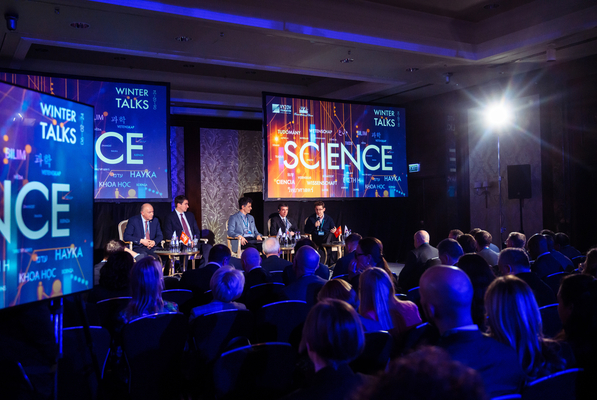
Scientists gathered at the Baltschug Kempinski Hotel to discuss the issues of scientific cooperation and establishing relationships of trust in the international scientific community. The event began with opening remarks from Elena Eremenko, Vice President of the VYZOV Foundation: "Representatives of more than 25 countries have gathered in this hall today. This gives us hope that our motto "Science. Dialogue. Trust" has resonated with our friends and partners, both new and long-term. I sincerely thank everyone present for their trust in the VYZOV Foundation and for fostering the scientific dialogue." The participants and guests of the event were welcomed by Mikhail Shvydkoy, Special Representative of the President of the Russian Federation for International Cultural Cooperation, and Dmitry Zauers, Deputy Chairman of Gazprombank's Board (Gazprombank JSC is co-sponsor of the VYZOV Foundation). Physicist Ana Maria Cetto Kramis from the National Autonomous University of Mexico addressed the attendees through a recorded video message. She is a former council member of the Pugwash Conferences, and in 2003-2010 she served as IAEA Deputy Director General and Head of the Department of Technical Cooperation. Both of these organizations have won the Nobel Peace Prize.Speech by Dmitry Zauers, Deputy Chairman of the Board of Gazprombank. Source: photobank of VYZOV FoundationThe event featured three discussion panels: Science moderated by Artem Oganov, Chairman of the VYZOV Prize Scientific Committee; Dialogue moderated by Elena Eremenko, Vice President of the VYZOV Foundation; and Trust moderated by Ruslan Yunusov, co-founder of the Russian Quantum Center. The first panel focused on matters of international cooperation in tackling global challenges. The participants had a discussion regarding the borders in science and whether it makes sense to distinguish national and international science. The panel was attended by Denis Sekirinsky, Deputy Minister of Science and Higher Education of the Russian Federation; Sergey Kilin, Full Member of the National Academy of Sciences of Belarus; Rudolf Valenta, MD, Medical University of Vienna; and Aleksey Fedorov, Head of Quantum Information Technologies research team at the Russian Quantum Center.The second panel was dedicated to maintaining international dialogue for sustainable development. Andrey Fursenko, Aide to the President of the Russian Federation, and Mikhail Kovalchuk, President of Kurchatov Institute National Research Centre, shared their thoughts on this topic as well as Thomas Greminger, Director of the Geneva Centre for Security Policy, who joined the conversation online. The pivotal issue of the discussion was the meaningful conversation between scientists and the importance of properly structured communication. Dialogue discussion panel. Source: photobank of VYZOV Foundation Participants of Trust panel included Grigory Trubnikov, Director of the Joint Institute for Nuclear Research; Ekaterina Solntseva, Director for Digitalization at the State Atomic Energy Corporation ROSATOM; and Archpriest Pavel Velikanov. The panelists deliberated on the model of protected space and trust in the scientific community that was recognized as one of the most crucial components of successful cooperation. One of the main conclusions was that trust can be preserved even when people have contrasting points of view. Another important thought was that international relations, openness to cooperation, and common future cause can plant the seeds of trust between scientists from different countries. Trust discussion panel. Source: photobank of VYZOV FoundationThe event featured the reports from Pavlos Lagoudakis, a scientist from the Skolkovo Institute of Science and Technology (Skoltech), winner of the 2023 VYZOV Prize, and Irek Suleymanov, International Cooperation Advisor to the Director of the Joint Institute for Nuclear Research. Leonid Shlyakhover, President of the VYZOV Foundation, concluded the meeting by extending gratitude to all the participants and speaking about the purpose of the event: "Today we tried to bring together the three words that we believe are important: science, dialogue, and trust. It is up to you to judge the results, but it was the first step. I hope it was a success. In any case, I am convinced that we will continue holding these meetings. We gather a vast expert community, your opinion is important to us, we hear you and listen to you." Last December, Moscow hosted another major event of the Foundation, the VYZOV Awards Ceremony. The Scientific Committee selected four winners in the following categories: Pavlos Lagoudakis won the Prize in Breakthrough category, Ilya Semerikov became winner in the Future category, Hamlet Khojibagiyan received the award in the Engineering Solution category, and Raul Gainetdinov was named Scientist of the Year. The Prize received the total of 218 applications, and the prize fund in 2023 amounted to 40 million rubles.
07 February 2024
On January 31, the National Media Group (NMG) announced the creation of a division that will focus on producing documentary content (DOC) for TV, online services and platforms. The expert team includes Artem Oganov, Chairman of the Scientific Committee of the VYZOV National Prize for Future Technologies, alongside other renowned scientists and documentary makers. The concept of NMG DOC projects is based on exclusive approach to chosen topics as well as profound historical and expert background. Projects will involve movie stars, including director, actor and producer Fyodor Bondarchuk, actors Vadim Demchog, Alexey Nilov, Mikhail Gorevoy, and others. The involvement of famous actors, the synergy of feature and documentary cinematography will help draw the attention of the audience to most intricate scientific subject matters. The new division of the National Media Group will be headed by Yulia Zasko, laureate of the Russian Federation Government Prize in the field of mass media. By the end of 2024, the NMG DOC team plans to release 100 original documentaries. The first projects in the series will include films about Emperor Alexander III, chemist Dmitry Mendeleev, navigator Christopher Columbus, and other prominent personalities. Moreover, the filming of the Russian version of the global TV hit How The Universe Works will begin this year.
01 February 2024
Channel One (Russia). Morning TV program “Good Morning”. Fragment of the show dated 21.12.2023
21 December 2023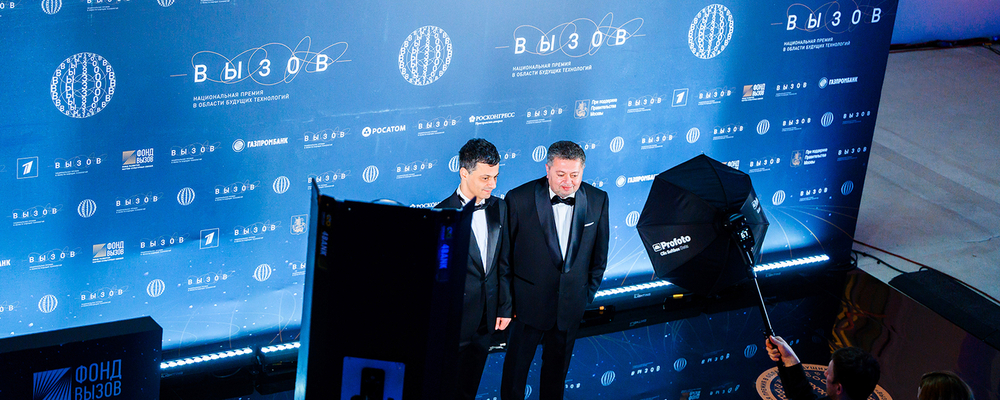
On December 19, the VYZOV Prize for Future Technologies awards ceremony took place in Moscow. The Prize's Scientific Committee chaired by Artem Oganov, Doctor in Physics and Mathematics, reviewed 218 application from Russian researchers and chose the winners in the following four categories: Future (for scientific achievement that has impacted the dynamics of development of future technologies), Engineering Solution (for an invention that helped significantly advance a certain technology), Breakthrough (for scientific research that enabled the creation of future technologies), and Scientist of the Year (for personal contribution to the creation of future technologies and changing the scientific landscape). The winner in each category received 10 million rubles, broadcast of the awards ceremony is available at the Prize's official website.The Prize in the Future category was awarded to Ilya Semerikov, Candidate of Physics and Mathematics working at the Russian Quantum Center and Lebedev Physical Institute, for creating a trapped-ion quantum computer. The winner in Engineering Solution category is Hamlet Khodzhibagiyan, from the Joint Institute for Nuclear Research, for developing and producing magnets based on high-temperature superconductors. In Breakthrough category, the Prize was awarded to Pavlos Lagoudakis (Skoltech) for his works in polariton physics and the development of a polariton-based transistor. Raul Gainetdinov, Candidate of Medical Sciences working at St Petersburg University, one of the world's leading experts on dopamine receptors and trace amines, was named Scientist of the Year. His research can help create new drugs for curing depression and other diseases.Hamlet Khodzhibagiyan, Candidate of Physics and Mathematics, Deputy Director of Laboratory of High Energy Physics at the Joint Institute for Nuclear Research (JINR), won the Prize in Engineering Solution category. He is known as one of the creators of Nuclotron, JINR's main synchrotron. He received the award for developing magnets based on high-temperature superconductors for powerful energy storage devices that enable research in the new physics. Mr. Khodzhibagiyan's solution opens up new opportunities and helps drastically reduce energy consumption compared with the existing systems.
21 December 2023
The Prize in the Future category was awarded to Ilya Semerikov, head of the Scalable Ion Quantum Computing research team at the Russian Quantum Center. The winner in Engineering Solution category is Hamlet Khodzhibagiyan, Deputy Director of Laboratory of High Energy Physics at the Joint Institute for Nuclear Research, and winner in Breakthrough category is Pavlos Lagoudakis, Head of the Laboratory of Hybrid Photonics at Skoltech. Raul Gainetdinov, Director of the Institute of Translational Biomedicine at St Petersburg University, was named Scientist of the Year. Each of the four laureates received the money prize of 10 million rubles.The Prize's Scientific Committee led by Artem Oganov, Doctor of Physics and Mathematics and professor at Skoltech, reviewed 218 applications, taking into account both fundamental research and works at the juncture of various sciences.According to the Prize's founders, its goal is to celebrate breakthrough ideas and inventions that change the landscape of modern science and the lives of all people.
21 December 2023
Outstanding Russian scientists Dr. Ilya Semerikov, Dr. Gamlet Hodzhibagiyan, Prof. Pavlos Lagoudakis and Dr. Raul Gainetdinov won the first VYZOV National Award in Future Technology. Each of the laureates received 10 million rubles for scientific achievements that have potential to affect lives of millions of people in the next decade. The President of the Russian Federation Vladimir Putin addressed the greetings to the participants, organizers and guests of the ceremony. The President of Russia stressed: "I am convinced that the VYZOV Prize will become traditional, receive recognition from the public and also from our foreign friends and partners, will popularize science, increase the authority of creative work and research".Nomination “Vision” (awarded to young scientists under the age of 35) goes to Dr. Ilya Semerikov, PhD, from Lebedev Physical Institute of Russian Academy of Sciences in Moscow, for creating a trapped-ion quantum processor based on multilevel systems – qudits, and for a demonstration of quantum algorithms.Nomination “Engineering Solution” is awarded to Dr. Gamlet Hodzhibagiyan, PhD, from the Joint Institute for Nuclear Research (JINR) in Dubna, for developing a technology for producing magnets based on high-temperature superconductors for charged particle accelerators and energy accumulation.Nomination “Breakthrough” (awarded for solving a major scientific or technological problem) is given to Prof. Pavlos Lagoudakis, PhD, from Skolkovo Institute of Science and Technology in Moscow, for advanced research in polariton-based computing platforms and for the development of an optical transistor.Nomination “Scientist of the year” is awarded to Dr. Raul Gainetdinov, MD, PhD, from St. Petersburg State University, for his discoveries in the area of dopamine system and trace amine-associated receptors, which enabled new approaches for pharmacological treatments of brain diseases. "It was very difficult for us to choose the winners, because among the 218 applications were many very strong ones. Today we announced the names of the laureates of the VYZOV Prize — great scientists whose works bring science to a new level and will change people's lives for the better," said Artem Oganov, Chairman of the Scientific Committee of the VYZOV National Award in Future Technology.The awards were presented to the laureates by famous Russian actors Viktor Verzhbitsky, Igor Mirkurbanov, Alexandra Rebenok and Konstantin Khabensky, as well as representatives of leading Russian companies and scientific and technological organizations: Natalia Popova, First Deputy Director General of the non-governmental Institute for Development Innopraktika, Ruslan Yunusov, co-founder of the Russian Quantum Center, Director General of the State Atomic Energy Corporation Rosatom Alexey Likhachev and Dmitry Zauers, Deputy Chairman of the Board of Gazprombank."The whole history and future of the nuclear industry is a story of breakthroughs: personal, intellectual, technological. The nuclear industry has opened up the possibility of using the most powerful forces of nature that lurk inside atomic nuclei, inside matter. And today, scientists are already working on future technologies that will define a new reality. Our Homeland is truly aimed at becoming a source of new knowledge that will benefit all mankind," said Alexey Likhachev, Director General of the State Atomic Energy Corporation Rosatom. "Science and technology should primarily serve human needs. The developments of the laureates of the VYZOV Prize are really capable of solving important problems, whether it is the treatment of serious diseases, the development of energy-saving technologies or the creation of new machines for calculating extremely complex tasks. For our part, we will support innovators whose ideas and discoveries lead us into the future," said Dmitry Zauers, Deputy Chairman of the Board of Gazprombank."The project was initially based on scientists and engineers — we wanted to raise the demand for these key professions, give a powerful impetus and the necessary tools for the development of original solutions. This is a large-scale project that includes a number of initiatives and events — earlier this year, the Forum of Future Technologies was already held, with the participation of the President of Russia," said Ruslan Yunusov, co-founder of the Russian Quantum Center. "To transform future technologies into present solutions, the synergy of the state, scientific and business communities is essential - our task was to create a platform necessary for this kind of synergy. Together with our partners we will make our best efforts to discover new heroes of science and make them known worldwide with the help of the VYZOV Award," said Leonid Shlyakhover, President of the Vyzov Foundation. The principle of interdisciplinarity inherent in the works of the laureates was reflected in the immersive Award ceremony directed by the artistic director of the The Moscow Drama Theater on Malaya Bronnaya, Konstantin Bogomolov. The synergy of various music genres was embodied in exclusive duets of pop singers and world opera stars - Dima Bilan and Aida Garifullina, Polina Gagarina and Ildar Abdrazakov. Igor Vernik, actor of the Chekhov Moscow Art Theater, hosted the ceremony. It is planned that in 2024, with the support of the Ministry of Foreign Affairs of the Russian Federation the VYZOV Prize will become international: scientists working in the field of future technologies around the world will be invited to participate.The VYZOV National Award in Future Technology is a part of the Decade of Science and Technology in Russia and designed to recognize fundamental breakthroughs, ideas, and inventions that are changing the landscape of modern science and the lives of every single person. The Prize aspires to encourage the new generation to pursue science and technology. The founder of the VYZOV Prize is the Foundation for the Development of Scientific and Cultural Relations “Vyzov” together with Gazprombank with the support of the Government of Moscow and the State Atomic Energy Corporation Rosatom. The media partner is Channel One (Russia).
20 December 2023
Awarding those who turn science fiction into reality. The awards ceremony took place at the Moscow Manege. Four categories and four laureates whose achievements became breakthroughs. Prize fund is 40 million rubles. One of the winners is Raul Gainetdinov, Director of the Institute of Translational Biomedicine at St Petersburg University, who developed a brand new treatment for brain disorders. "We have existing medications, but they have terrible side effects and are gradually losing efficiency. We believe that we have found a new drug based on principles that produce no side effects. It means that they can be used to treat other diseases, therefore they have an extensive prospective market," said Raul Gainetdinov. You can watch the VYZOV National Prize Awards Ceremony on Sunday on Channel One, broadcast will begin right after the 12.00 news.
20 December 2023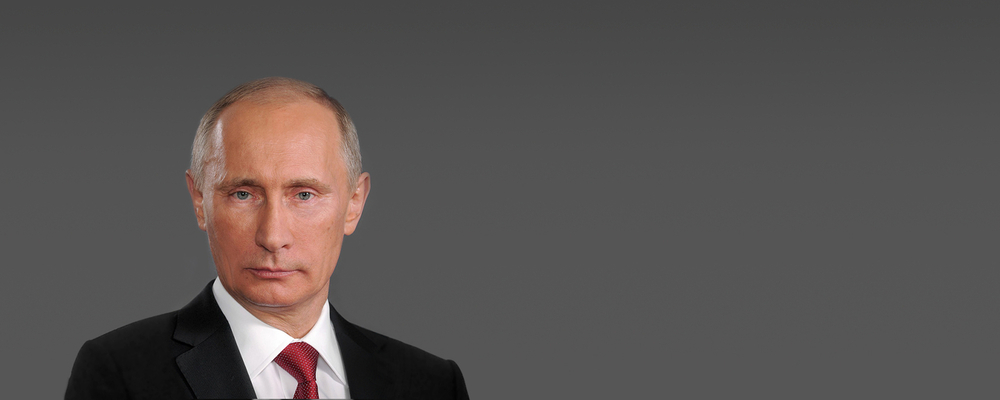
On December 19, the Moscow Manege hosted the first Awards Ceremony of the VYZOV National Prize for Future Technologies. Its laureates are outstanding scientists who have achieved breakthrough results in the field of future technologies. Russian President Vladimir Putin sent his greetings to the participants, organizers, and guests of the ceremony."Today we honour the first laureates of this award: talented, passionate, endowed with huge creative potential, daring enthusiasts and innovators. Their outstanding achievements became a real breakthrough in the priority areas of national science and engineering, a vivid example of selfless service to their chosen cause," said Vladimir Putin.Russia's President emphasized that "in recent times, in the context of global changes, large-scale renewal of all sectors of the economy, agriculture, the social sphere, infrastructure and public administration, it is extremely important that promising discoveries and developments of Russian scientists, researchers and designers are implemented in practice as soon as possible, boosting our technological sovereignty, ensuring state security, and improving people’s quality of life."Vladimir Putin also congratulated the laureates of the Prize and wished them success and accomplishment of their plans.In July 2023, the first discussions regarding the establishing the VYZOV Prize for Future Technologies took place at the Future Technologies Forum organized by Roscongress Foundation. The idea of the Prize was pitched to the President of the Russian Federation Vladimir Putin at a non-public meeting with scientists held during the Forum. Following the event, the President directed to establish an award for outstanding scientific discoveries in the field of future technologies (presidential decree PR-1743 dated September 3, 2023).The VYZOV National Prize for Future Technologies is timed to coincide with the Decade of Science and Technology in Russia announced in 2022 and aims to honor breakthrough ideas and inventions that change the landscape of the modern science and the lives of all people. The Prize's mission is to motivate the younger generation to engage in science and technologies in our country. The Prize was founded by the Vyzov Foundation for the Development of Scientific and Cultural Relations and Gazprombank with the support of the Government of Moscow. General partner of the Prize is Rosatom State Atomiс Energy Corporation, general media partner is Channel One.In 2024, the Prize is expected to go global with the support of the Ministry of Foreign Affairs of the Russian Federation as it will be awarded, among others, to foreign scientists. Scientists from all over the world working in the field of future technologies are welcome to apply for the Prize.
19 December 2023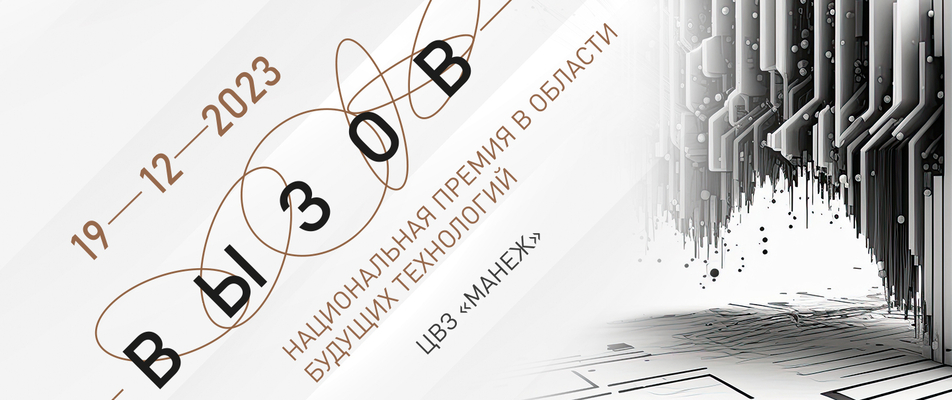
On December 19, the Moscow Manege will host the first awards ceremony of the VYZOV National Prize for Future Technologies. The whole country will learn the names of Russian scientists whose research can revolutionize the global science and technologies. Winners in each of the four categories will receive the money prize of 10 million rubles.The Prize will be awarded to scientists who have achieved breakthrough results in the field of future technologies, knowledge-intensive projects that have significant potential to change the future. The Scientific Committee of the Prize selected winners based on both fundamental research and works at the junction of various sciences.Interdisciplinary approach, characteristic of the works of the laureates, will be reflected in the immersive awards ceremony directed by Konstantin Bogomolov, art director of the Moscow Drama Theater on Malaya Bronnaya street. The synergy of various music genres will play out in unique duos of pop singers and globally renowned opera stars. The event will feature performances by Dima Bilan and Aida Garifullina, Polina Gagarina and Ildar Abdrazakov. The ceremony will be hosted by Igor Vernik, People's Artist of Russia, actor of the Chekhov Moscow Art Theatre.The Prize will be awarded in four categories:Future — for a scientific achievement that has affected the development of future technologies (awarded to scientists below the age of 35).Scientist of the Year — for personal contribution to the creation of future technologies and changing the landscape of science.Engineering Solution — for an invention that led to a significant advancement of a certain technology.Breakthrough — for a scientific discovery that enabled the creation of future technologies.The VYZOV National Prize for Future Technologies is timed to coincide with the Decade of Science and Technology in Russia announced in 2022 and aims to honor breakthrough ideas and inventions that change the landscape of the modern science and the lives of all people. The Prize's mission is to motivate the younger generation to engage in science and technologies in our country. The Prize was founded by the Vyzov Foundation for the Development of Scientific and Cultural Relations and Gazprombank with the support of the Government of Moscow. General partner of the Prize is Rosatom State Atomiс Energy Corporation, general media partner is Channel One.
13 December 2023
Aleksey Fedorov, Deputy Chairman of the Vyzov Award Scientific Committee, Head of the Physics and Quantum Engineering Institute of the National University of Science and Technology MISIS, and Head of the research group at the Russian Quantum Center, answered questions about the Award at the III Young Scientists Congress in Sochi.– Aleksey, you are one of the leading experts in Russia in the field of quantum technologies, which are now at the forefront of global science. I am sure that the congress guests are waiting for your presentation on the latest achievements. Last year, your lecture was one of the forum highlights. What are you going to tell us about today?– I will be participating in several sessions, including the one dedicated to the latest quantum technology achievements. Of course, we will discuss the latest news in this field, including the progress of quantum technologies in Russia. At the same time, I believe it's crucial to discuss more general questions regarding the development of science in our country. In particular, we will be discussing the Vyzov Award established this year. Why was it created, and what are its specifics? In a way, it combines two types of awards. It is given out not for purely fundamental achievements that reveal new properties of our world and may be implemented in fifty years or so, if at all. And not for products that already exist on the market and could be implemented tomorrow. This award focuses on science-intensive projects that are quite realistic to implement within the next ten years. And these are not just promising projects – it's crucial for us to highlight that they have the potential to drastically improve human life. One of the main award objectives is to minimize the time it takes to implement a purely scientific project. As we know, the economy doesn't show much demand for scientific results, and it is the Achilles’ heel of all science. Science-intensive business is considered risky: it requires considerable investments and gives no guarantee that they will pay off in the short term. The whole world is thinking about how we can fill the gap between the development and implementation of a science project. The Award Scientific Committee, where I am Deputy Chairman, believes that Vyzov should help attract the attention of business to science. The monetary prize of ten million rubles, in particular, plays into it. It is a prize comparable to the most prestigious awards in Russia. Plus, the experts who select the winners are the top experts in their fields. Their names are a seal of approval. They guarantee that the selected projects are world-class and have serious prospects for successful implementation. In a nutshell, receiving the award should not be the final goal of a project but an opportunity to grow it further. There will be many business representatives at the forum, and I hope to draw their attention to the award and hear their opinions. By the way, the winners will be announced on December 19.
08 December 2023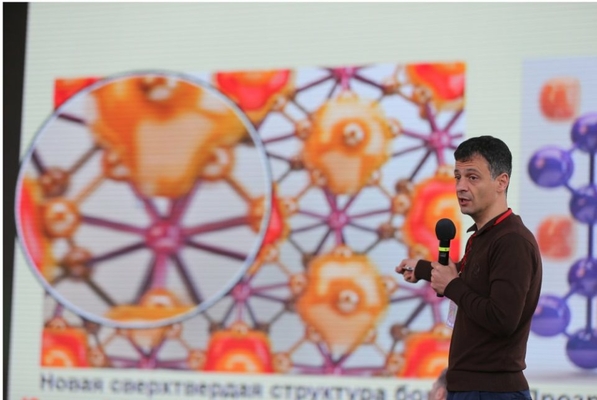
The VYZOV National Award in Future Technology has been established in Russia. The monetary prize is ten million rubles. Why do people call it an alternative to the Nobel Prize? Can the mathematician Grigori Perelman receive it? Will the mistakes of Silicon Valley be avoided? Why has the number of applications surprised even the experts? We have talked about it to Artem Oganov, Chairman of the Award Scientific Committee, Doctor of Physics and Mathematics, and Professor at The Skolkovo Institute of Science and Technology. – Artem, major awards are often compared to the illustrious Nobel Prize. For example, receiving the Fields Medal is considered the same as getting the Nobel Prize in Mathematics, and the Global Energy Prize is colloquially called the Energy Nobel Prize. Will VYZOV become the technological Nobel Prize? – We shouldn’t really talk about it that way. Our award is not secondary. It is not a second Nobel Prize but an entirely new and intrinsically valuable one. And it is based on completely different principles. For example, the Nobel Prize is awarded for achievements in specific science branches like physics, chemistry, and so on, while VYZOV can be awarded for cross-disciplinary projects and engineering solutions. There is another distinction. You can be nominated for the Nobel Prize by a handful of selected scientists and organizations. With VYZOV, you can nominate yourself. The Nobel Prize is often given for discoveries made long ago – the record waiting time is 56 years. By the time the award is given, the laureate is often already retired. But only those who are actively working can receive the VYZOV Award. A retired scientist will not be able to get it, but he still has a chance for the Nobel Prize. The Nobel Prize, as well as our State Science Prizes, are awarded for the already obtained results, while VYZOV is given out for future technology. – It sounds a little strange. What does that mean? – Well, of course, the VYZOV Award can also be given out for discoveries that have already been made. But we want the time between the discovery and the award ceremony to be as short as possible. This award is supposed to emphasize the importance of the winning projects to help speed up their implementation. The economy doesn't show much demand for scientific results, and it is the Achilles’ heel of all global science. Science-intensive business is considered risky: it requires considerable investments and gives no guarantee that they will pay off in the short term. Ninety percent of all Silicon Valley startups die right on the vine. The number of applications we have received proves that most people underestimate the power of Russian science. So, the VYZOV Award should be able to guide businesses and show them what science projects are worth investing in. Turning a scientific result into a functioning technology is not a quick process, and a ten-year timeframe is something to aim for. At the beginning of this period, usually, very few people believe that a certain technology will actually be able to change the world, and the VYZOV Award is supposed to point out such promising technologies. – Let's say I'm a businessman who doesn't understand anything in science. Why should I believe you? You are not responsible for your winning projects, are you? You have just said that over ninety percent of startups fail … – Russian business now exists in a completely new environment. The we- can-buy-everything-overseas principle no longer works. We have to create solutions ourselves. Our experts, the country's most reputable experts in their respective fields, put their names as a seal of approval and guarantee that a certain project is world-class and has serious prospects for successful implementation. The winners themselves are guidelines for businesses looking to minimize investment risks. – Figuratively speaking, receiving the award should not be the final goal for a project but an opportunity to grow it further. – That's exactly right. But we look at future technology as broadly as possible. Winners can be authors not only of applied works but also of fundamental ones. For example, Grigori Perelman who proved the famous Poincaré theorem. – Artem, I’m sure many people will find your words outlandish. What kind of business would invest their hard-earned money into math, which is only understandable to Perelman-types? I can’t even imagine such thing... – Let me try to explain. We want to support the coolest science projects and the coolest technologies. Yes, the VYZOV Award focuses mainly on future technology, and we want to make it possible to put scientific discoveries into practice as quickly as possible. Yes, Perelman's work doesn't promise immediate or even foreseeable practical results. But what if some investor sees Perelman on the winner list and decides to pay attention to his outstanding work? What if, even though the invested money will not be returned, this investor still supports the project? We must consider such an opportunity. My experience shows that even the most abstract scientific results do eventually come to practical fruition. – So, you form the landscape of our science and let businesses choose where to invest? – That’s right. And this approach did not appear out of the blue. It emerged when our committee began going through the applications. Frankly speaking, we were shocked. We knew that Russian science was strong. But seeing that it was that strong was a surprise. – Didn’t the crisis of the nineties have a long-lasting negative effect on our science? – It certainly did. That’s why most people tend to underestimate the power of Russian science. But look at the results – somehow, we are still creating unique hypersonic technologies and advanced vaccines. Russian science responds to all challenges amazingly quickly and efficiently. But who are the people behind these science projects? When we saw the applications, we were shocked by how many top scientists there were in Russia and what incredible work they do. Some of the names were entirely new to us. Several Scientific Committee members decided to go and see the presented developments with their own eyes. And they discovered both fascinating works and their authors. – So, you discovered Russian science like Columbus discovered America? – You can put it that way. However, there is one major flaw in our work. We have received 218 applications, but the award only has four categories. We had to choose just one of several amazing scientists in each of them. It is not easy emotionally – the strongest works that deserve all due credit had to be left out. – Are you planning to make the award international? If so, will there be scientists from unfriendly states among the laureates? – Next year, we will add an international category. We do not care about citizenship, political views, nationality, gender, etc. The award is given out only for scientific results. However, we aren't sure if scientists from unfriendly states will agree to accept the award. But that’s something we have no control over. On our part, we are open to the whole world. The VYZOV Award is organized by the Vyzov Foundation for the Development of Scientific and Cultural Relations in cooperation with Gazprombank, one of the largest financial institutions in Russia, and with support from the Moscow City Government. The general partner of the Award is the Rosatom State Corporation. In 2023, the Award Scientific Committee received 218 applications from 38 regions of Russia. The youngest applicant was only 20 years old, while the average candidate was between 35 and 40. A distinctive feature of the Award is the possibility of self-nomination. Award categories: Vision – for a scientific achievement that has influenced the development of future technologies (awarded to scientists under 35) Engineering Solution – for an invention that has significantly advanced a particular technology. Scientist of the Year – for personal contribution to creating future technologies and transforming the landscape of science Breakthrough – for scientific work providing solutions to important scientific or technological problems. The prize fund of the VYZOV National Award in Future Technology amounts to 40 million rubles – 10 million rubles in each of the four categories. The winners will be announced at the award ceremony on December 19 in the Manege Central Exhibition Hall. The ceremony was directed by Konstantin Bogomolov, Artistic Director of the Moscow Drama Theater on Malaya Bronnaya Street.
07 December 2023
The "Vyzov Accepted: An Alternative to the Nobel Prize and Prospects for Young Scientists" session was held at the III Young Scientists Congress in Sochi. The participants discussed ways of supporting science. The VYZOV National Award in Future Technology, established in 2023, was one of the proposed incentives. Photo: The III Young Scientists Congress Leonid Shlyakhover, President of the Vyzov Foundation for the Development of Scientific and Cultural Relations, moderated the session. Ekaterina Solntseva, Digitalization Director at the Russian Atomic Energy Corporation Rosatom, emphasized that the award is a completely new way of supporting science in Russia: Ekaterina Solntseva, Rosatom Digitalization Director Photo: The III Young Scientists Congress – It is time to create new international institutions to support scientists. And it makes sense that they appear in our country. We did a lot of things first. We were the first in space. We created the first satellite. We launched the first nuclear power plant. Today, we create a new incentive to support scientists – the VYZOV award. I want to point out that it is not an "alternative to the Nobel Prize", not a "local initiative", but a new international tool to support researchers working in breakthrough areas. Attempts to build borders in the scientific community are not in favor of global development. That is why Rosatom supports the initiative to make the next year's VYZOV an international award. And, by the way, when working with foreign audiences, we do not plan to translate the word VYZOV into other languages. It’s not just a challenge, it’s VYZOV. It should become a truly international concept – just as the word "sputnik" did in its time, symbolizing humanity’s leap to new technological heights. According to Artem Oganov, Chairman of the VYZOV Award Scientific Committee and Professor at the Skolkovo Institute of Science and Technology, the purpose of the award is to show who is a reference point, a role model for scientists and, at the same time, a vector for investment in modern Russian science. Artem Oganov, Chairman of the VYZOV Award Scientific Committee, Professor at the Skolkovo Institute of Science and Technology Photo: The III Young Scientists Congress – We aim to bring an element of prediction and foresight into our approach to selecting the winners. The VYZOV Award recognizes technological breakthroughs that are reasonably proven to work but not yet implemented. We focus on technologies that work but have not yet been able to come to every home, and these can be both fundamental and applied discoveries. The main thing when choosing the winners is to find discoveries that pave the way to the future, – he said. Aleksey Fedorov, Deputy Chairman of the VYZOV Award Scientific Committee and Head of the Quantum Information Technologies research group at the Russian Quantum Center explained that the selected award winners offer the scientific solutions that have the greatest potential for changing the world and for practical implementation in midterm. Aleksey Fedorov, Deputy Chairman of the VYZOV Award Scientific Committee, Head of the Quantum Information Technologies research group at the Russian Quantum Center Photo: The III Young Scientists Congress – We have chosen a ten-year timeframe to estimate the prospects of a project. Ten years ago, artificial intelligence was just entering the stage of rapid development. Now it’s already present in every device. So, it's possible to predict how a technology will transform within ten years. That's why we created the VYZOV Award for science-intensive technologies that can potentially improve our lives ten years from now. This Award is a seal of approval signaling that businesses should invest in these projects. It can become an impulse to put the idea into practice. Science flourishes when it has robust partners able to bring ideas to a new technological level. – he said . Alexey Paevsky, Curator of the Decade of Science and Technology project, spoke about two conditions necessary for the success of the VYZOV Award: its internationality and adherence to traditions. According to him, strong winners and strict principles will make it possible to preserve and maintain the high status of the Award for many years to come. Alexey Paevsky, Member of the the VYZOV Award Scientific Committee, Curator of the Decade of Science and Technology project Photo: The III Young Scientists Congress The session participants also discussed ways to motivate the new generation to pursue a career in science. According to Maxim Pratusevich, Principal of the Presidential Physics and Mathematics Lyceum No. 239, the award alone cannot motivate young people to do science. Young researchers will be attracted to science, only if it becomes fashionable, respectable, and rewarding. – he said. Maxim Nikitin, Head of the Nanobiotechnologies Laboratory at the Moscow Institute of Physics and Technology, and Head of the Nanobiomedicine branch at Sirius University, advised young scientists to start by solving fundamental problems and then add applied science tasks – this will let them get used to being "the first and the best in the world", and then allow them to help society solve urgent problems relying on the highest standards Photo: The III Young Scientists Congress The Young Scientists Congress is a key event of the Decade of Science and Technology in Russia, announced by Vladimir Putin in 2022. The Congress brings together representatives of leading scientific institutions from different regions of Russia, scientific and educational organizations, authorities, industrial partners, top scientists, and most importantly – young researchers, grant winners, students, and schoolchildren from Russia and other countries. Photo: The III Young Scientists Congress The Congress of Young Scientists is organized by the Roscongress Foundation, the Ministry of Science and Higher Education of the Russian Federation, and the Coordinating Council for Youth in Science and Education. The operator of the Decade of Science and Technology is the National Priorities Autonomous Non-profit Organization.
30 November 2023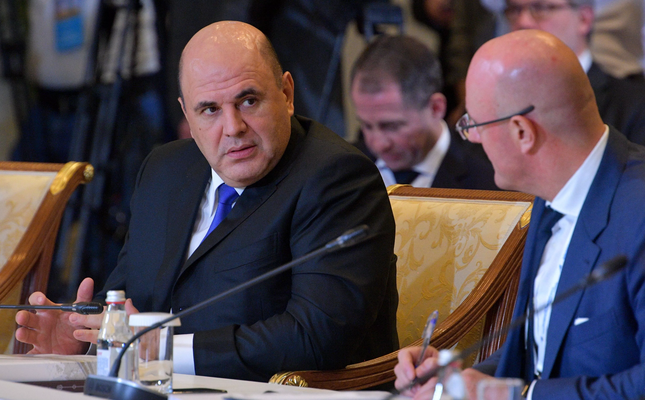
Prime Minister of the Russian Federation, Mikhail Mishustin, has authorized Deputy Prime Minister Dmitry Chernyshenko to volunteer in the Supervisory Board of the Foundation for the Development of Scientific and Cultural Relations. The corresponding document is published on the official website containing laws and regulations. The Vyzov Foundation for the Development of Scientific and Cultural Relations is the organizer of the VYZOV National Award in Future Technology.
29 November 2023
A press conference dedicated to the results of the application campaign and the upcoming award ceremony of the VYZOV National Award in Future Technology was held in the Manege Exhibition Hall. The participants – prominent scientists and industry experts – spoke about the significance of the award for the Russian scientific community and shared further plans. In 2023, 218 applications were submitted for the award, but only four will win. The event was attended by Deputy Chairman of the Gazprombank Board, Dmitry Zauers; Digitalization Director at the Russian Atomic Energy Corporation Rosatom, Ekaterina Solntseva; Chairman of the VYZOV Award Scientific Committee, Doctor of Physics and Mathematics and Professor at the Skolkovo Institute of Science and Technology, Artem Oganov; Head of the Quantum Information Technologies research group at the Russian Quantum Center, Aleksey Fedorov; President of the Vyzov Foundation for the Development of Scientific and Cultural Relations, Leonid Shlyakhover. Co-founder of the Russian Quantum Center, Ruslan Yunusov, moderated the press conference.The VYZOV National Award in Future Technology is currently one of the biggest events organized for the Decade of Science and Technology, announced in 2022 in Russia. VYZOV is designed to recognize breakthrough ideas and inventions that are changing the landscape of modern science and people's lives. The mission of the Award is to inspire the new generation to pursue science and technology as a career. The Award is organized by the Vyzov Foundation for the Development of Scientific and Cultural Relations in cooperation with Gazprombank, one of the largest financial institutions in Russia, and with support from the Moscow City Government. The general partner of the Award is the Rosatom State Corporation. Artem Oganov, Chairman of the VYZOV Award Scientific Committee, spoke about the criteria for selecting the winners. – The world is now standing on the cusp of several scientific revolutions. One is connected to artificial intelligence, another to quantum technologies, and yet another to new biomedical technologies. Materials science is also developing at a mind-blowing speed. The main criterion for choosing the winners of the Award is their impact on the world. Imagine we have traveled twenty years into the future and are now looking at the names of the applicants – who of them will be thankful to the most, who has changed the world the most? We consider not only technological discoveries that change human life for the better but also solutions for fundamental problems, even those solutions that don’t have any direct practical application yet and still help us understand the world we live in. – he said.A distinctive feature of the Award is the possibility of self-nomination. According to Artem Oganov, it was also possible for scientists to nominate one another. At the same time, the self-nomination mechanism allowed to simplify the application process and save time. – It was a resoundingly successful experiment: 90% of all applications are self-nominations from the worthiest scientists, – he said.In 2023, 218 applications from 38 regions of Russia were submitted for the Award. The largest number of applications came from scientists from Moscow and the Moscow Region, St. Petersburg, the Republic of Tatarstan, the Krasnodar Territory, the Novosibirsk, Sverdlovsk and Saratov Regions. The youngest applicant was only 20 years old, while the average candidate was between 35 and 40. Applications were sent from state science centers, large engineering companies, and state corporations. Dmitry Zauers, Deputy Chairman of the Gazprombank Board, emphasized how important it is for businesses to support the Award. – Gazprombank has always worked to develop Russian science and technology. In the early 2000s, we supported large science-intensive enterprises, and now they form the foundation of our country's technological sovereignty. Another example is quantum technology. In the beginning, we were supporting a humble research group engaged in fundamental science, and now our country is one of the leaders in this field. The VYZOV Award confirms Gazprombank's belief that science projects should get the financial aid they need, especially at the early stages. Our task is to provide a metaphorical elevator that takes such projects from the idea floor to the product floor. Therefore, we and our partners are planning to create a kind of incubator or seed accelerator for scientific ideas that can soon be commercialized and utilized by everyone. We also consider creating an endowment fund: corporations should unite and create transparent financing tools. It is crucial to start with a qualitative selection of ideas and then build an implementation infrastructure: from venture funds to classical project bank financing. Today, our goal is to create technological leaders in new industries. – said Dmitry Zauers, Deputy Chairman of the Gazprombank Board.In 2024, with support from the Russian Ministry of Foreign Affairs, the Award will become international: foreign scientists developing future technology will be invited to participate alongside the Russian ones. According to Ekaterina Solntseva, Digitalization Director at the Russian Atomic Energy Corporation Rosatom, the Award will show that the government is open to international scientific and technological cooperation. Solntseva believes that making the Award international will also help boost Russia's image as a good country for scientists to work in. – Rosatom supports the VYZOV Award not because it has to but because it genuinely wants to. The State Corporation works hard to develop new technologies that will define our lives in the near future. And today, it is critical to support those who are shaping this future. Of course, the Award can and must become international – there is no other way! And it is very suitable that such an award is launched in Russia. In a way, our national tradition is to be the first and the best at things we do. The first nuclear power plant, the first satellite, the first man in space – all Russian! And, by the way, when working with foreign audiences, we do not plan to translate the word VYZOV into other languages. It is not just a challenge, it is VYZOV. It should become a truly international concept – just as the word sputnik did in its time, symbolizing humanity’s leap to new technological heights. Many international institutions have lost their status since attempts to exclude anyone from the global context inevitably deprive such institutions of global influence. It is time to discover alternative interaction formats, creating not just a local replacement for international awards but a fundamentally new instrument for global cooperation. I sincerely believe the new Award is Russia's claim to international fame! – she said. Leonid Shlyakhover, President of the Vyzov Foundation for the Development of Scientific and Cultural Relations, stressed the importance of the Foundation as an expert platform for future technologies, bringing together both science, society, and investors in search for technologies with great potential to become breakthrough products and ensure Russia's technological leadership. – I am incredibly grateful to my colleagues from Gazprombank and Rosatom for their visionary approach because financing such risky projects is a hard-to-overestimate charity. On the other hand, turning a promising discovery into a technology can become a super-business. Having examined the applications, I realize that it is entirely possible. Moreover, it is possible quite soon. I think the endowment fund and all the companies involved give us a chance for a truly bright future that is not that far away. – he saidKonstantin Bogomolov, Director of the VYZOV Award Ceremony and Artistic Director of the Moscow Drama Theater on Malaya Bronnaya Street, spoke about the upcoming event and its participants. – The idea of this Award Ceremony is to emphasize that these are the real stars of our time, of our country. These are the people we should talk about, whose photos we should print in magazines. These are the people we should interview, the people we should make films about. I think it’s very important that this ceremony is not only a starting point in the advanced development of science but also a turning point in the development of society and its attitude toward science. If society reevaluates its priorities and realizes that it is necessary to shine the brightest spotlight on these people, a lot will change in the intellectual sphere. – he said.Four winners of the Prize, Russian scientists who have achieved breakthrough results in future technology, were determined at the final meeting of the Scientific Committee in Moscow on November 6. The winners will be announced at the award ceremony on December 19 in the Manege Central Exhibition Hall. The prize fund of the VYZOV National Award in Future Technology amounts to 40 million rubles – 10 million rubles in each of the four categories: Vision – for a scientific achievement that has influenced the development of future technologies (awarded to scientists under 35); Scientist of the Year – for personal contribution to creating future technologies and transforming the landscape of science; Engineering Solution – for an invention that has significantly advanced a particular technology; Breakthrough – for scientific work paving the way to future technology.
28 November 2023
In 2023, 218 applications from 38 regions of Russia were submitted for the Award. The largest number of applications came from scientists from Moscow and the Moscow Region, St. Petersburg, the Republic of Tatarstan, the Krasnodar Territory, the Novosibirsk, Sverdlovsk and Saratov Regions. The youngest applicant was only 20 years old, while the average candidate was between 35 and 40. Applications were sent from state science centers, large engineering companies, and state corporations.
28 November 2023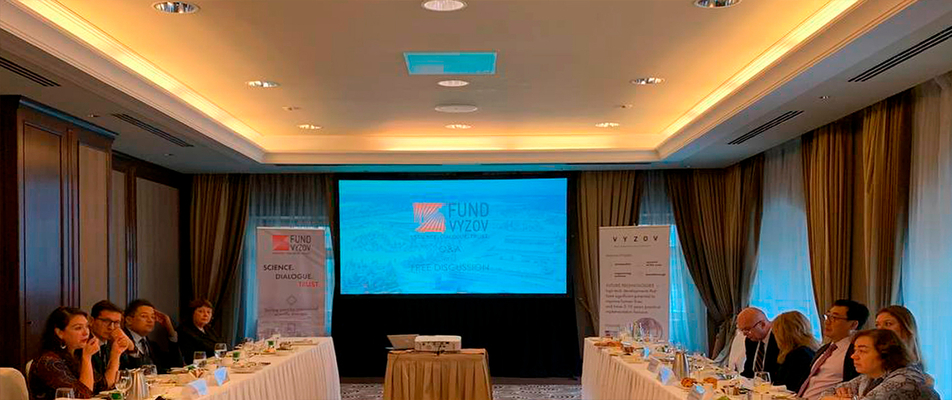
The Vyzov Foundation for the Development of Scientific and Cultural Relations has launched a series of Science Brunches called SCIENCE. DIALOGUE. TRUST. The first Science Brunch was dedicated to the work of the Vyzov Foundation for the Development of Scientific and Cultural Relations and the launch of the VYZOV National Award in Future Technology. The Brunch was attended by the representatives of the embassies of Brazil, Argentina, Mexico, and Egypt, representatives of the Korea Russia Science and Technology Cooperation Center (KORUSTEC), the Russian Center for Scientific Information (RCSI), the Russian Academy of Sciences (RAS), the International Centre for Innovations in Science, Technology and Education (ICSTEP), and other organizations involved in international science cooperation. The participants of the Science Brunch examined the possibility of the VYZZOV Award becoming international in 2024. They also talked about the goals and plans of the Foundation and discussed the importance of science diplomacy in the current geopolitical situation.The Vyzov Foundation for the Development of Scientific and Cultural Relations is a co-founder and organizer of the VYZOV National Award in Future Technology. The mission of the Foundation is to make scientific work honorable and prestigious and ensure that science and technology are considered one of the main values in society. The Foundation was established to revive the image of Russian science and scientists and create a framework for safe international science dialog and cooperation.
06 October 2023
The Award Scientific Committee will give out a ten-million-ruble prize to winners in each of the four categories: Vision, Engineering Solution, Scientist of the Year, and Breakthrough. The VYZOV National Award for Future Technology is organized by the Vyzov Foundation for the Development of Scientific and Cultural Relations and Gazprombank. The Moscow City Government is among the Award’s partners. Call for application ends September 14, 2023. Submit your application: премиявызов.рф Interview with Professor Artem Oganov, Chairman of the Award Scientific Committee.
06 September 2023
The new edition of the VYZOV National Award in Future Technology Regulations, dated July 18, 2023, has been published. Applicants can send in their submissions until September 14, 2023. The Scientific Committee will be compiling the longlist from September 15 to October 15, 2023. The shortlisted candidates and the winners will be determined from October 16 to December 18, 2023. The award ceremony will take place on December 19, 2023, in the Manege Central Exhibition Hall.
30 July 2023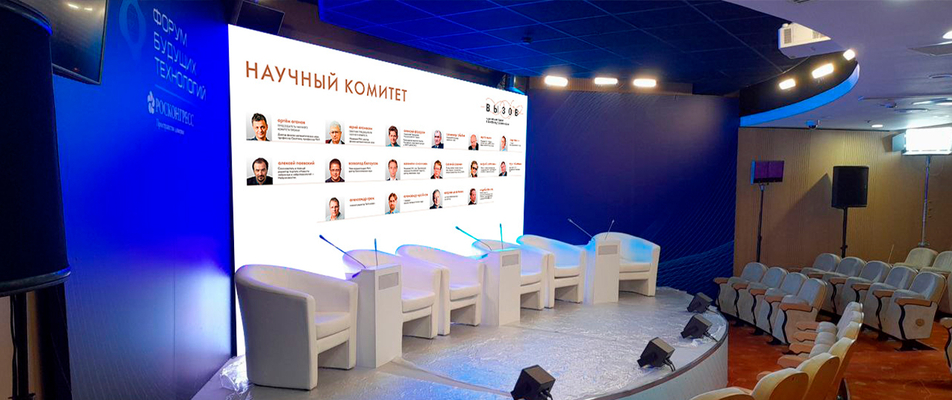
The first meeting of the Scientific Committee of the VYZOV National Award in Future Technology was held in Moscow. The meeting was attended by: Chairman of the VYZOV Award Scientific Committee, Professor of the Russian Academy of Sciences and the Skolkovo Institute of Science and Technology, Artem Oganov; Head of the Quantum Information Technologies research group at the Russian Quantum Center, Head of the Quantum Information Technologies Laboratory at the National University of Science and Technology MISIS, the youngest professor at the Moscow Institute of Physics and Technology, Aleksey Fedorov; Academician of the Russian Academy of Sciences, Director of the Shemyakin – Ovchinnikov Institute of Bioorganic Chemistry, Alexander Gabibov; Head of the research group at the Russian Quantum Center, Director of the research branch of the Theoretical Physics Laboratory at the National Center for Scientific Research, Professor at the University of Amsterdam, Georgy Shlyapnikov; Academician of the National Academy of Sciences of Belarus, Foreign Member of the Russian Academy of Sciences, Professor at Belarusian State University, Sergey Kilin; Corresponding Member of the Russian Academy of Sciences, Professor of the Russian Academy of Sciences, Honored Scientist of the Russian Federation, Deputy Director for Science and Research and Head of the Cardiology and Cardiovascular Surgery Department at Lomonosov Moscow State University Medical Research and Education Center, Simon Matskeplishvili, and other prominent Russian scientists. The Scientific Committee members were discussing the process of submitting and reviewing applications. The main topic on the agenda was the preparation of the Scientific Committee for the elimination round. According to the Award Regulations, all submitted applications must go through the elimination round, after which the Scientific Committee considers the longlist. The Scientific Committee has stated that the VYZOV National Award strives to identify and support the most important discoveries and projects of Russian scientists, promote their work, create incentives for the scientific community, and popularize science in the general public. Applicants can send in their submissions until September 14, 2023. According to Artem Oganov, it will take 30 minutes to apply.
27 July 2023
The award is designed to recognize fundamental breakthroughs, ideas, and inventions that change the landscape of modern science and the life of every single person. It was established by the Vyzov Foundation for the Development of Scientific and Cultural Relations in cooperation with Gazprombank, one of the largest financial institutions in Russia, and with support from the Moscow Government. The award is one of the biggest events organized for the Decade of Science and Technology in Russia. The award is meant to be annual and will be given to Russian scientists, engineers, and inventors in physics, life sciences, materials sciences, mathematics, and computer sciences. The Scientific Committee will consider the works created in the last ten years and proven to have a significant potential to improve people's lives within three to ten years. A monetary prize of ten million rubles (without additional encumbrances) will be awarded to each of the winners in the Vision, Scientist of the Year, Engineering Solution, and Breakthrough categories, which cover the entire range of future technologies. The call for applications has already started and will last until September 14, 2023. The Scientific Committee will be compiling the longlist from September 15 to October 15, 2023. The shortlisted candidates and the winners will be determined from October 16 to December 18, 2023. The award ceremony will take place on December 19, 2023, in the Manege Central Exhibition Hall. – Public recognition is of utmost importance both for the development of a scientist's career and for the technological progress of all humanity. Unique technological discoveries gradually bring us closer to coveted heights, opening new horizons before us. Let’s cast a nostalgic glance back to our recent Soviet past – the early sixties: Gagarin is the first human in space, “Looks like physics is in honor", the famous opening line of Boris Slutsky’s poem Physicists and Lyricists, reflects the general public’s opinion on science, everyone's favorite movie characters are four-eyed nerds, scientists of world renown host popular TV shows. Their challenge to the soon-to-be-over era was, “Being smart is in vogue!” But is the public status and authority of the scientists significant enough in today's world? It is time for us to reflect. Our challenge to the established paradigm of the national scientific and socio-cultural field is the VYZOV Annual National Award in Future Technology. – said the President of the Vyzov Foundation for the Development of Scientific and Cultural Relations, Leonid Shlyakhover..
24 July 2023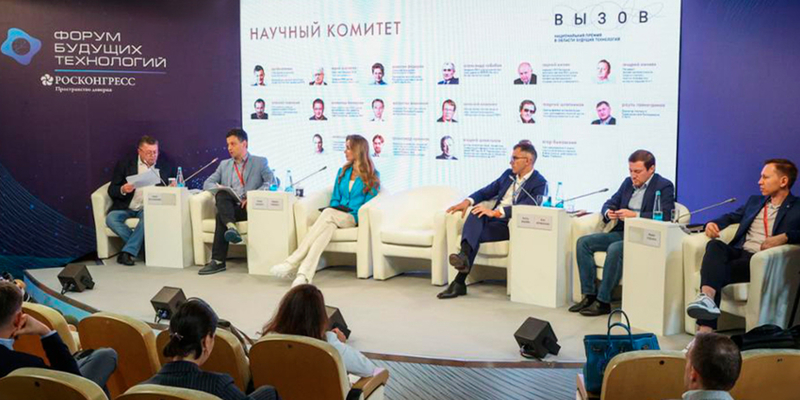
The call for applications for the VYZOV annual national award was announced at The Future Technologies Forum. The award is designed to recognize fundamental breakthroughs, ideas, and inventions that change the landscape of modern science and the life of every single person. Applications will be accepted until September 14, and the results will be announced in Moscow on December 19. The award and a ten-million-ruble prize will be presented to the developers of promising technologies in several categories: Scientist of the Year, Engineering Solution, Vision, and Breakthrough. Gazprombank, one of the largest financial institutions in Russia, became one of the originators and co-founders of the award. – The monetary prize is absolutely not the main point of this award. The main point is to help scientists enhance their contribution to the economy, inspire them, and involve them in the system of innovation and investment. We are ready to provide a fairly broad range of investment and support solutions because we are a traditional bank that supports science and technology for charitable and investment reasons. We have large divisions that consider investment projects and finance them, so we at Gazprombank are ready to provide assistance that will take both small ideas and major infrastructure projects to an entirely new level. Moreover, our industrial partners will gladly consider investing in projects related to their respective industries. – said Dmitry Zauers, Deputy Chairman of the Gazprombank Board. Addressing the Future Technologies Forum, Vladimir Putin also spoke about supporting science and scientists. The President emphasized that many people would like to work in Russia and participate in exciting and meaningful research projects. He stressed that the state is responsible for supporting young scientists in every possible way. – The goal of the award is to honor the most deserving ones, those who have worked hard and obtained the desired results so that others would find inspiration to try as hard and grind away at their own research.. Inspiration is one of the most important things in life – you need to know what you live for, you need to have a drive, you need to have a goal, a dream. And we try to make this dream a reality. We do it honestly and transparently – our committee has stringent rules that exclude all lobbying and hidden agendas. – said Artem Oganov, Chairman of the VYZOV Award Scientific Committee, Doctor of Physics and Mathematics, Professor at the Skolkovo Institute of Science and Technology, and Professor of the Russian Academy of Sciences.
19 July 2023
The annual VYZOV National Award in Future Technology has been established at The Future Technologies Forum, announced the press service of Gazprombank, one of the largest Russian financial institutions, which co-founded the Award. Applications will be accepted until September 14, and the results will be announced in December. The Award is currently one of the biggest events organized for the Decade of Science and Technology in Russia. The award is designed to recognize fundamental breakthroughs, ideas, and inventions that change the landscape of modern science and people's lives. The award and a ten-million-ruble prize will be presented to the developers of promising technologies in several categories: Scientist of the Year, Engineering Solution, Vision, and Breakthrough. Dmitry Zauers, Deputy Chairman of the Gazprombank Board. Source: Roscongress Photobank – The monetary prize is absolutely not the main point of this award. The main point is to help scientists enhance their contribution to the economy, inspire them, and involve them in the system of innovation and investment. We are ready to provide a fairly broad range of investment and support solutions because we are a traditional bank that supports science and technology for charitable and investment reasons. We have large divisions that consider investment projects and finance them, so we at Gazprombank are ready to provide assistance that will take both small ideas and major infrastructure projects to an entirely new level. Moreover, our industrial partners will gladly consider investing in projects related to their respective industries. – said Dmitry Zauers, Deputy Chairman of the Gazprombank Board. President of the Vyzov Foundation for the Development of Scientific and Cultural Relations (Award Founder), Leonid Shlyakhover emphasized that public recognition is of utmost importance both for the development of a scientist's career and for the technological progress of all humanity. He called the VYZOV National Award in Future Technology “a challenge to the established paradigm of the national scientific and socio-cultural field.” The first Future Technologies Forum was held in Moscow from July 9 to July 14. The event brought together scientists from the world's leading universities and research centers, experts, and business representatives working on creating and implementing solutions based on quantum technologies. Russian President Vladimir Putin participated in the plenary session held the day before.
14 July 2023PHOTO GALLERY
The Gallery features photos from the VYZOV Prize for Future Technologies.

Prize sponsors
Prize partners
FAQ
-
How to APPLY for the VYZOV PRIZE?
You can be nominated by any scientist as well as by the scientific committee of your organization. Self-nomination is also allowed. In our experience, self-nomination is the most popular option. It takes very little time to complete the nomination form, about 20 minutes. We don't want scholars to spend a lot of time on paperwork!
-
CAN I APPLY IF I'M NOT 18 YEARS OLD?
Unfortunately, no, according to the rules, the VYZOV Prize is open to adults of legal capacity.
-
CAN SCIENTIFIC TEAMS APPLY FOR THE PRIZE?
Yes, according to the VYZOV Prize regulations, in the categories “Engineering solution”, “Breakthrough”, “Future”, “Discovery”, you can submit a collective application from a research team of no more than three people. The Author of the project will be 1 person who has made the greatest contribution to the project, and in addition to the Author of the project, it will be possible to specify up to 2 Co-authors of the project who participated in the project. In case of winning the VYZOV Prize, 50% of the money prize is awarded personally to the Author of the project, 50% is divided among the co-authors of the project in equal proportions. The category “Scientist of the Year” is strictly individual.
-
WHAT IS THE MONEY PRIZE AMOUNT IF I WIN the VYZOV PRIZE?
Each money prize amounts to 12 million Russian rubles (before tax deduction), that equivalent to ca 130 thousand US dollars.
-
WHO CAN BECOME THE WINNER OF THE VYZOV PRIZE?
The VYZOV Prize has five categories, each with one laureate (but there can be up to two co-laureates - except for the “Scientist of the Year” category, which is awarded to one scientist). All laureates are legal adult scientists without age restrictions (except for the youth category “Future”). Only actively working scientists or engineers can become laureates. Only scientists predominantly working in Russia can receive awards in the categories “Scientist of the Year”, “Breakthrough”, “Engineering Solution”, and “Future”, while laureates in the “Discovery” category predominantly work in other countries.
-
IS IT POSSIBLE TO APPLY FOR THE VYZOV PRIZE WITH A FUNDAMENTAL SCIENTIFIC WORK?
Yes. Any work that changes the landscape of science and technology can be recognized with the VYZOV Prize. This spectrum includes all exact and natural sciences, from pure mathematics to physics, chemistry, biomedicine, astronomy, and engineering. Even the most abstract scientific work will eventually lead to the creation of new technologies.
-
What is the main criterion for evaluating scientific PROJECTS?
The main criterion is impact. We award those scientists and engineers whose work will maximally determine the future of science and technology.
-
HOW CAN I CHECK THE STATUS OF MY APPLICATION?
You can always check the status of your application in your personal account on the Prize's website.
-
WHAT STATUSES CAN MY APPLICATION HAVE IN THE PARTICIPANT'S PERSONAL ACCOUNT?
- APPLICATION SUBMITTED: the application has been successfully submitted and is awaiting review.
- APPLICATION UNDER REVIEW: the Prize organizers have seen the application and are processing it.
- APPLICATION REJECTED: The application did not meet the formal requirements during processing.
- APPLICATION IN THE COMPETITION: the application has passed screening and is participating in the Qualifying Stage of the Prize.
- COMPETITION COMPLETED: assigned to applicants after the official announcement of the competition results by the Prize Organizer.
- LAUREATE OF THE VYZOV PRIZE: assigned to winners after the official announcement of the competition results by the Prize Organizer.
The status of the application on the website (in the participant's personal account) can change. -
I’VE BEEN AWARDED IN THE “DISCOVERY” CATEGORY. HOW CAN I ATTEND THE VYZOV PRIZE CEREMONY?
The VYZOV Foundation will assist laureates in organizing a trip to Russia to receive their awards. We will cover your visa fee, travel expenses and accommodation.
-
WHAT IS THE PROCESS FORWARDING LAUREATES WITH MONEY PRIZE?
Awarding laureates with money prize (including those in the “Discovery” category) shall be done by issuing a personal banking card for each laureate (co-laureates in case of a collective application) and transferring the money prize to it (in rubles).
Мы используем файлы cookie. Ознакомиться с информацией



